The best turntables 2025 for all budgets, tested and selected by TechRadar experts
The best turntables and record players you can buy today
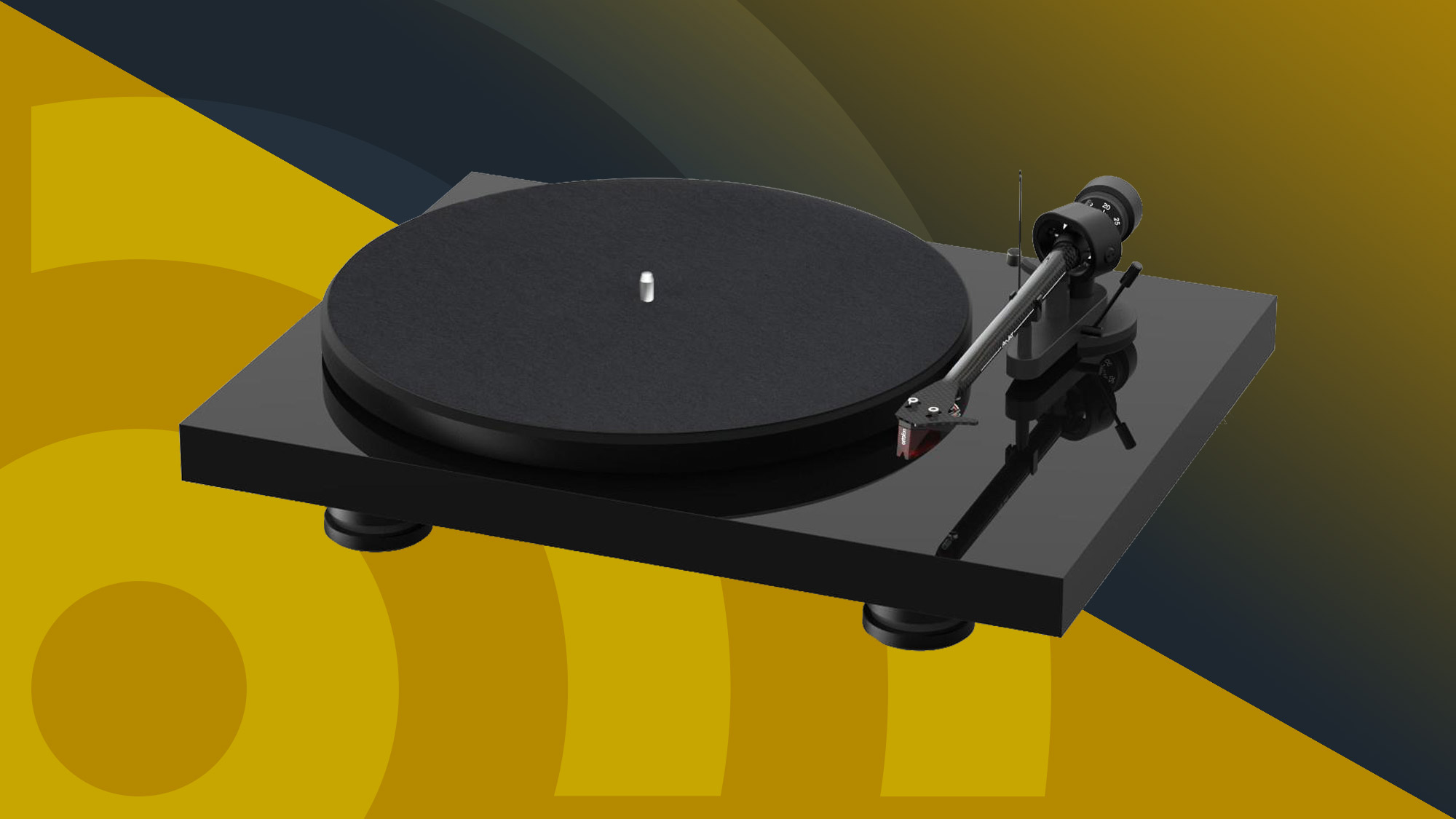
Our expert audio team has handpicked the best turntables and record players after extensive hands-on testing and years of deep industry insight. We’ve made sure there’s something here for every budget and experience level. Choosing the right setup is a big deal for music lovers and the right turntable can transform your vinyl experience, revealing stunning clarity and depth to your favorite records.
So, what actually sets a turntable apart from a record player? Record players usually come with built-in speakers and amplification, making them a convenient, all-in-one option. Turntables, on the other hand, are built with high-quality components – think tonearm, platter, and sometimes a built-in phono stage – giving you the freedom to build a custom setup with your own phono preamp, amp, and speakers. Whether you're new to vinyl or a seasoned audiophile, our expert recommendations will help you find the perfect fit. Need help getting started? Check out our guide about how to set up a turntable.
Many modern turntables also come with handy features like USB ports for digitizing your record collection and Bluetooth or Wi-Fi for wirelessly connecting to the best wireless speakers, the best Bluetooth speakers or the best headphones. Prefer a classic setup? There are great options for analog purists too.
And with all the fresh, limited-edition vinyl recently unleashed for Record Store Day 2025, local record shops are officially the coolest hangout again – like online shopping, but with actual eye contact.
The quick list
Want to cut to the bit where we tell you which turntables are the absolute best – whatever your budget? Have at this bevy of beauties. You can jump to a more detailed review of each product – or our nifty price comparison tool for the best deals.
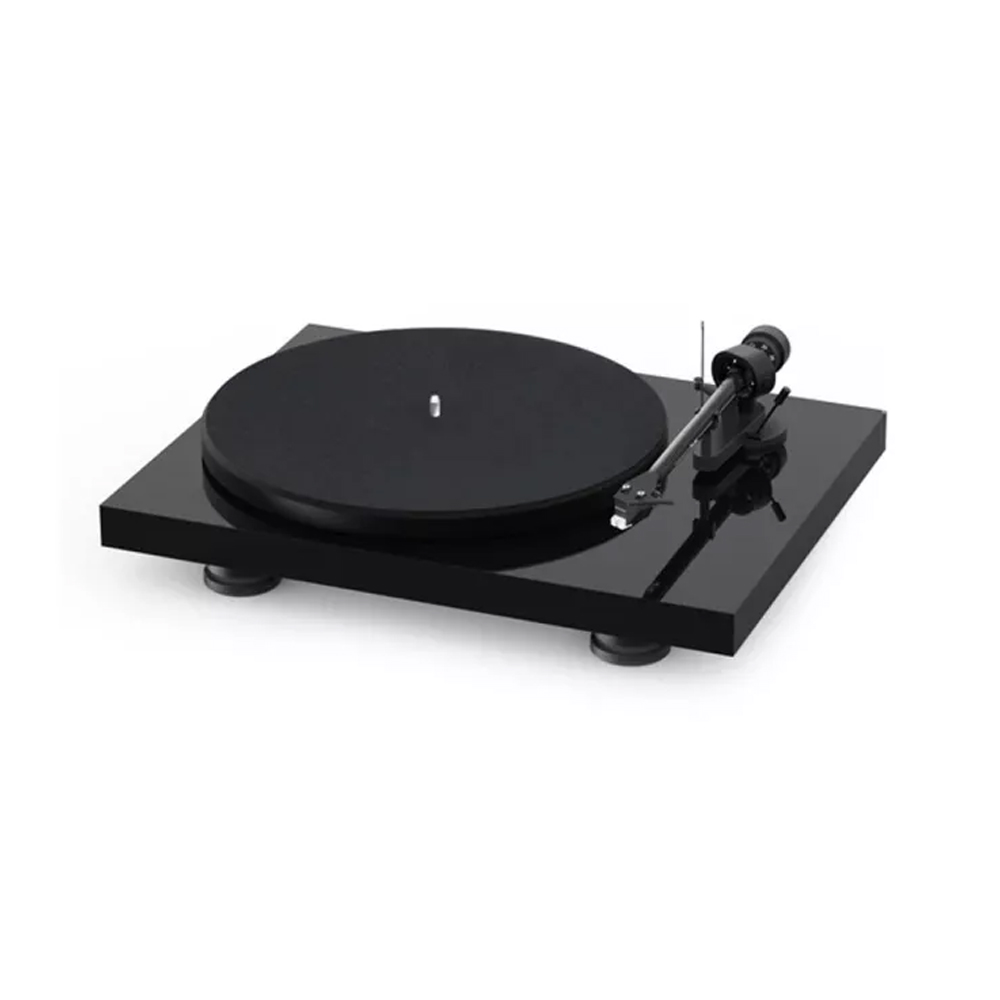
Best for most people
OK it's not exactly cheap, but the Debut Carbon Evo is the most refined, upgraded and enjoyable Pro-Ject model we've ever tested, which is why it's our shout for the best turntable most people could own.
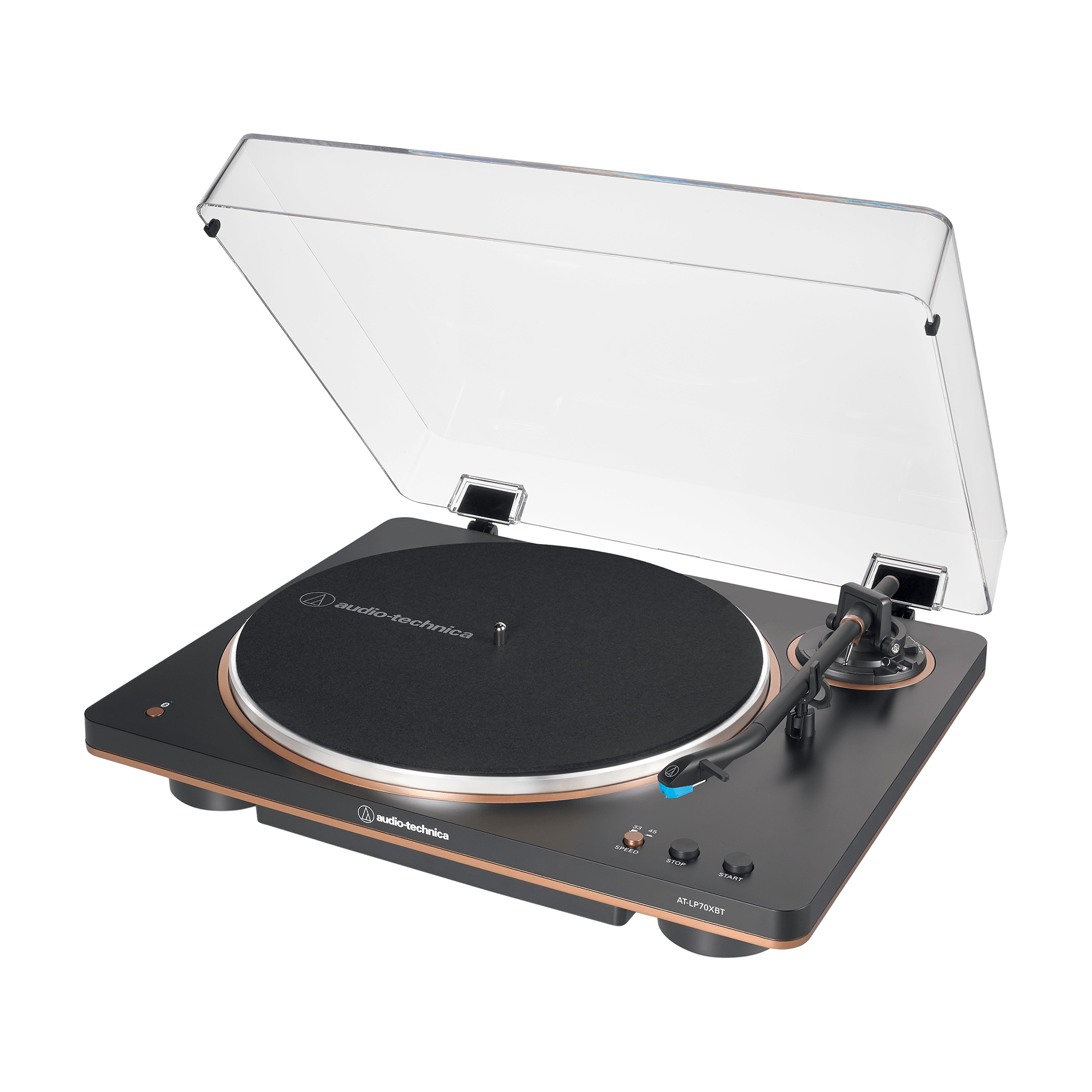
Best budget buy
An excellent budget turntable that has everything you need. Other options in this guide sound better, but for the price this is one of the top-performing turntables for beginners on the market right now.
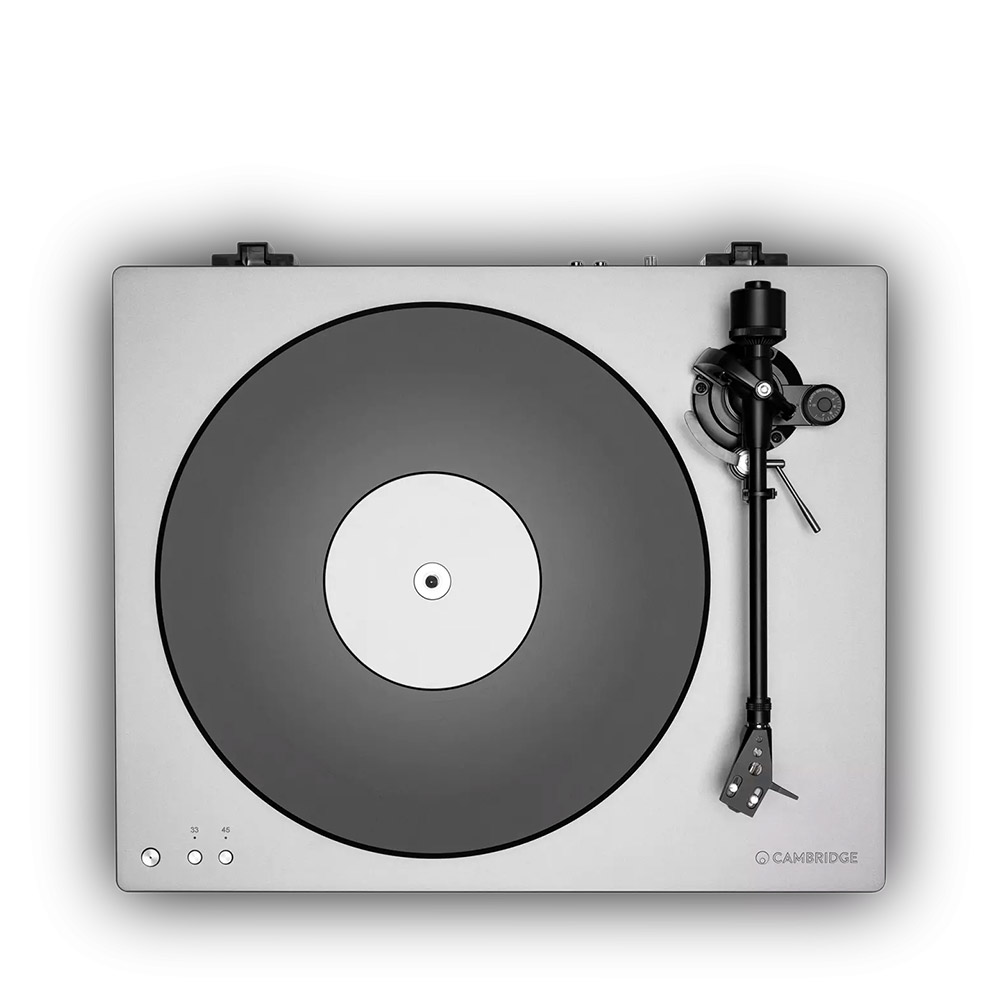
Best high-end performer
Cambridge's updated V2 Alva TT has a switchable integrated phono stage and a new tonearm. The price is higher, but the V2 retains the original’s bank-vault build quality, hi-res wireless streaming and air of profound solidity that made it one of the best decks around.
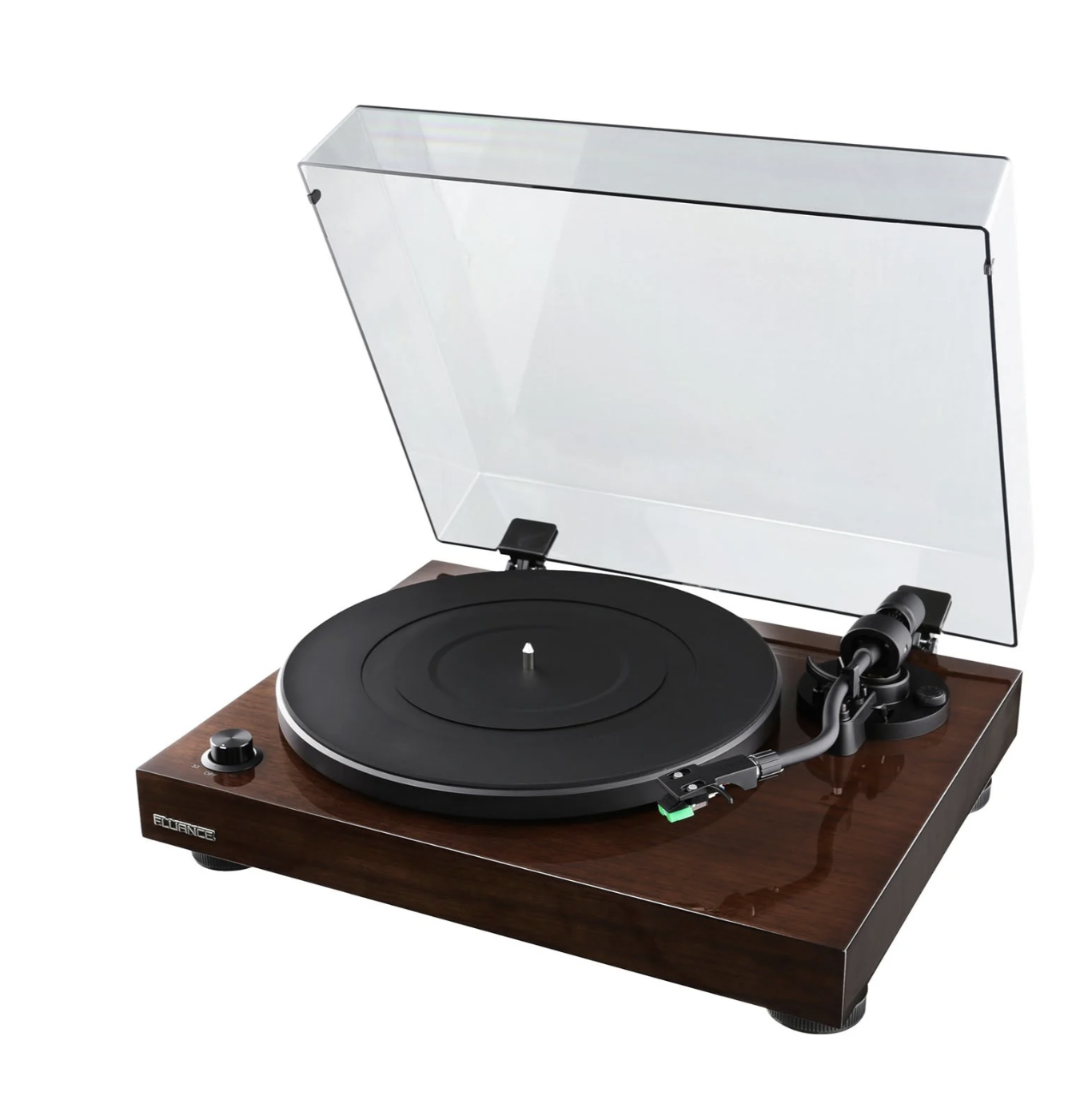
Best mid-priced
This classic and understated turntable from a trusted name in audio is a small step up from entry-level, but manages to blend easy setup, sound quality, room to grow and features with a palatable price tag.
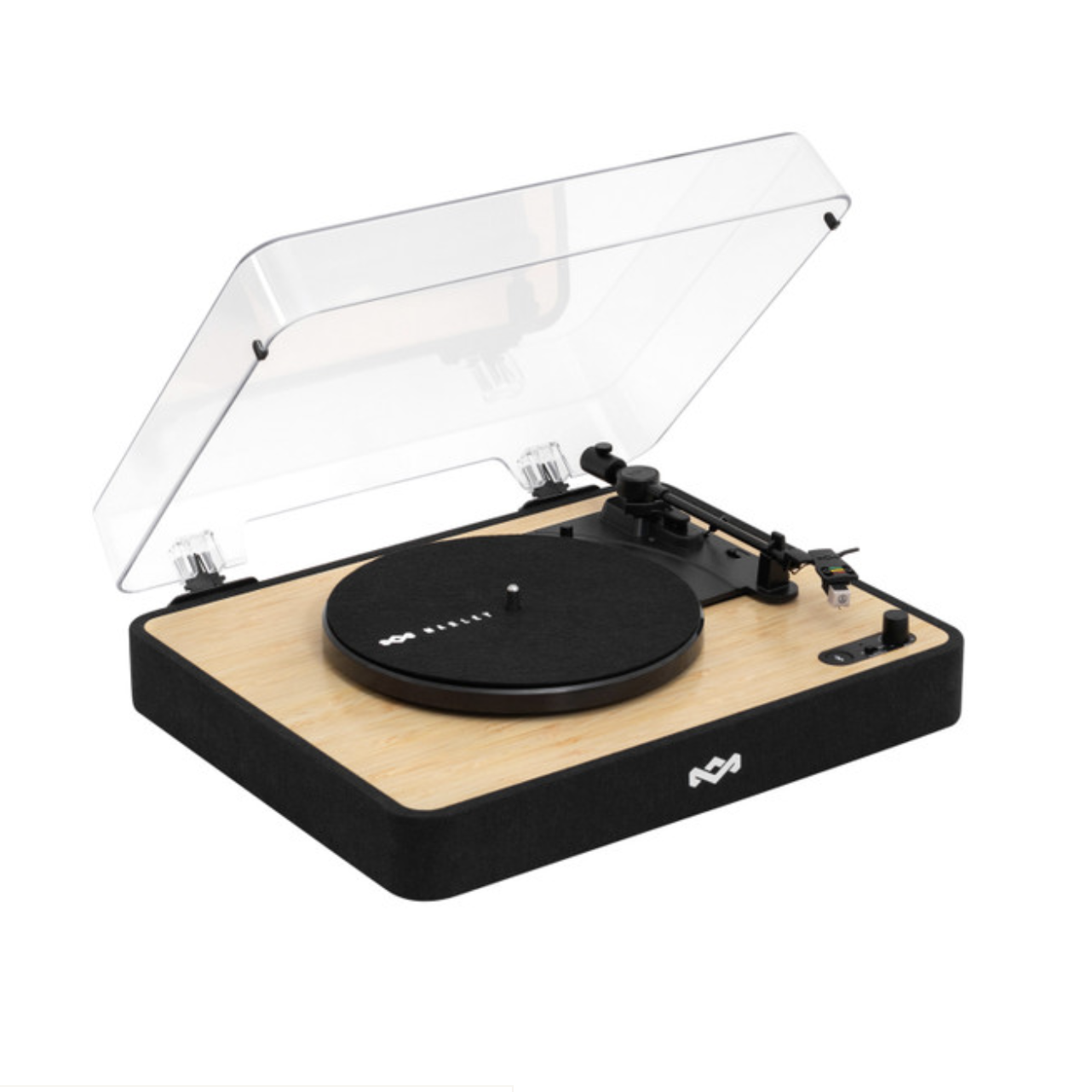
Best super budget beginner deck
With sustainable style by the bucketload, this Revolution is easily one of the best-value turntables we’ve tested. Easy setup and fuss-free operation make it foolproof, but the sound signature is surprisingly full.
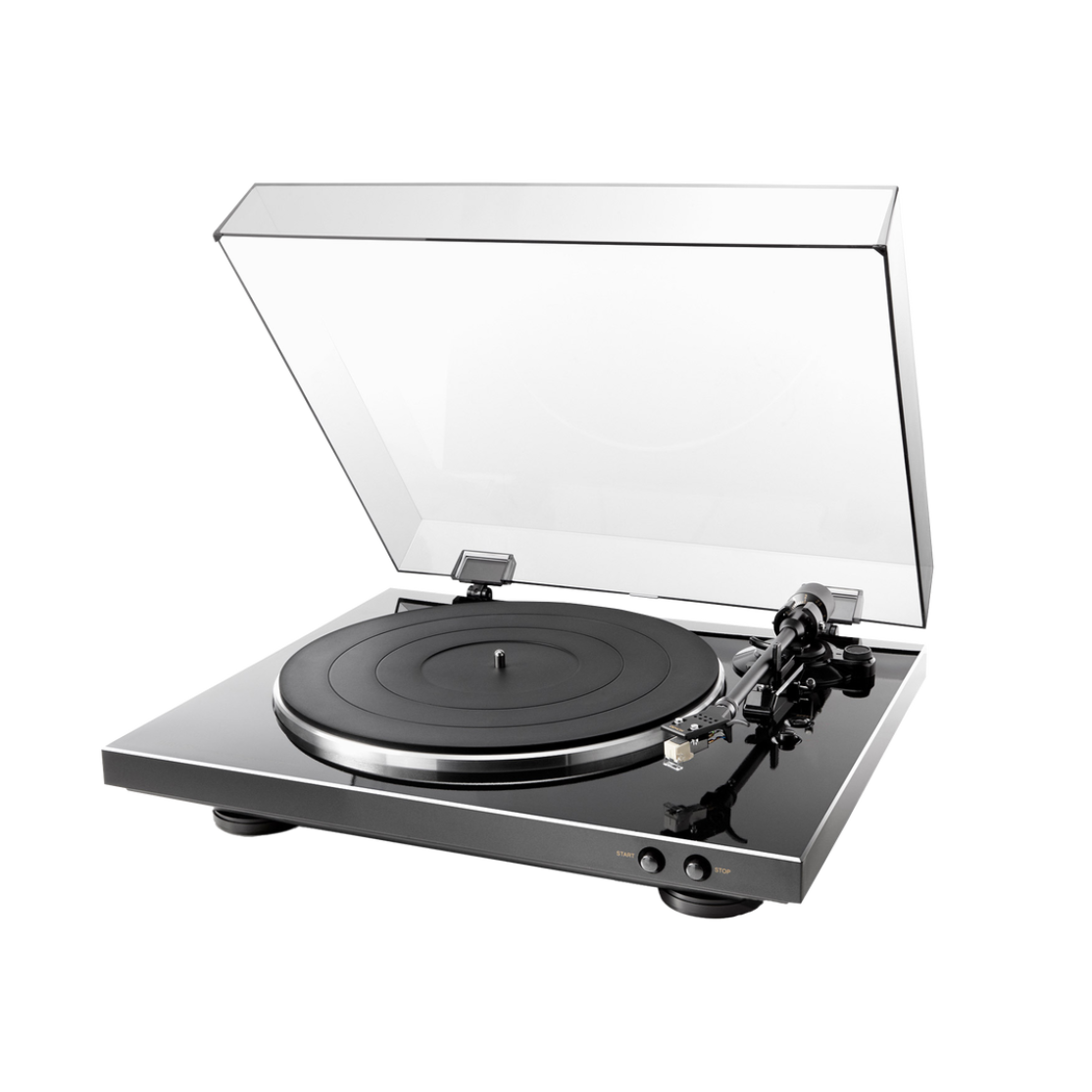
Best fully automatic
Starting your vinyl journey and don’t want a complicated setup? The Denon DP-300F is top shout. You’ll sacrifice a modicum of sound quality for convenience, but you can always upgrade the cartridge later to level up the audio.
Load the next products...
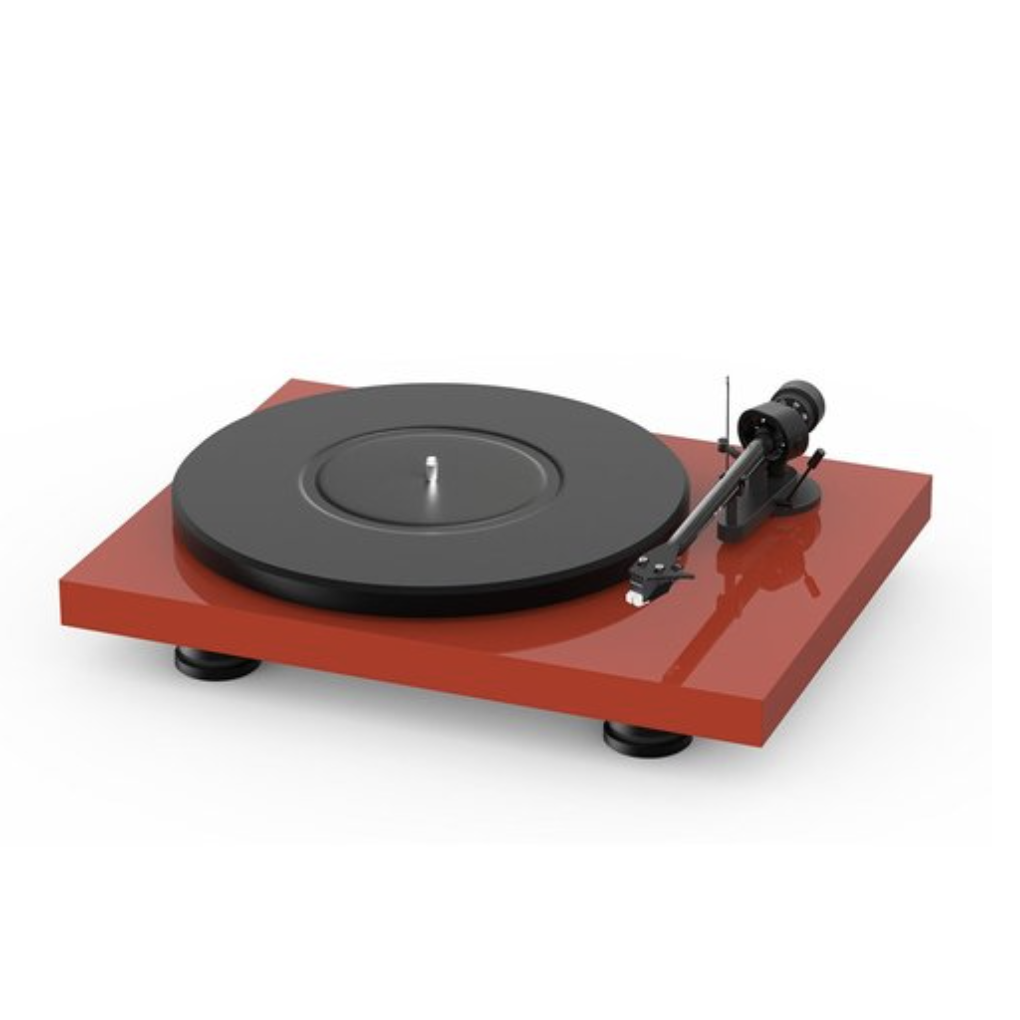
Best for beginners
For the price, you can't go wrong. This is the perfect starter turntable for audiophiles. It has a 2M Red cartridge, offers stellar damping and even lets you upgrade the parts over time.
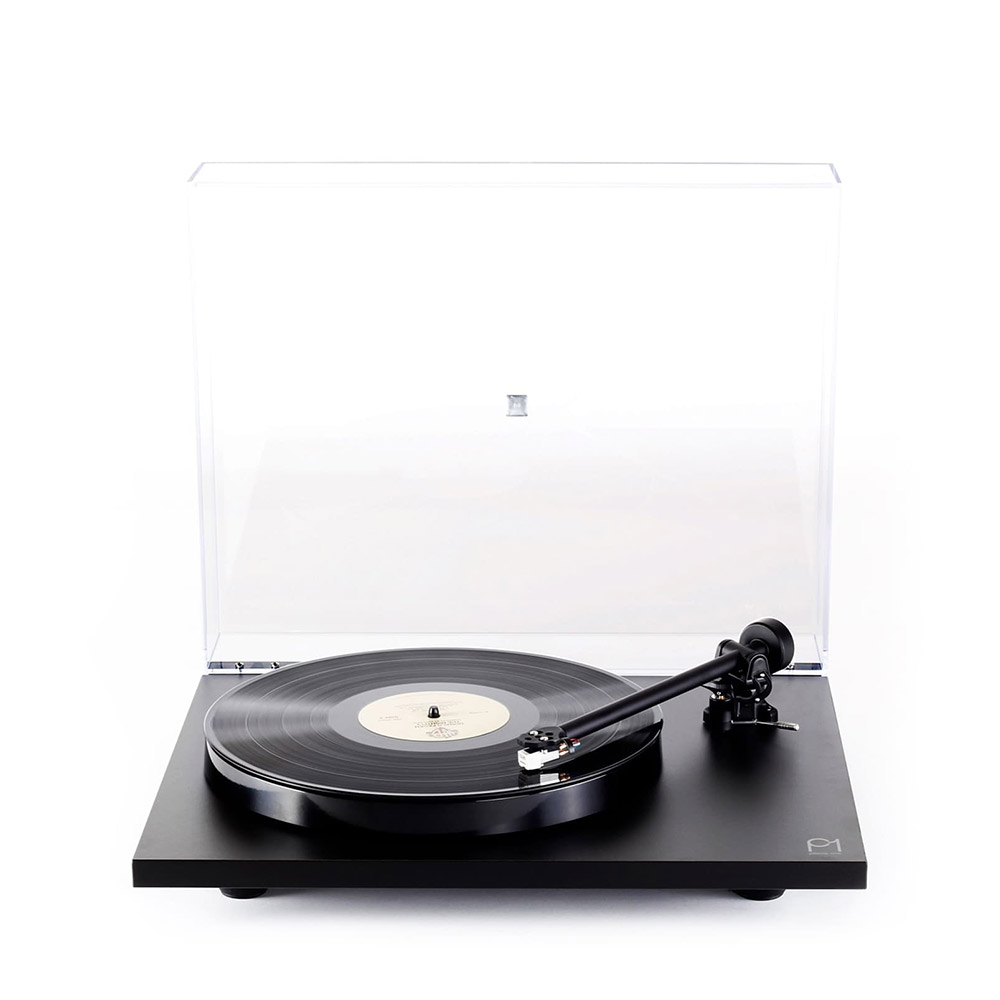
Best for turntable tinkerers
It's a Rega, and that comes with real pride in ownership, but it's also the best version yet of a truly classic entry-level record player… and one you can grow with, adjusting the tonearm, upgrading the cartridge and more.
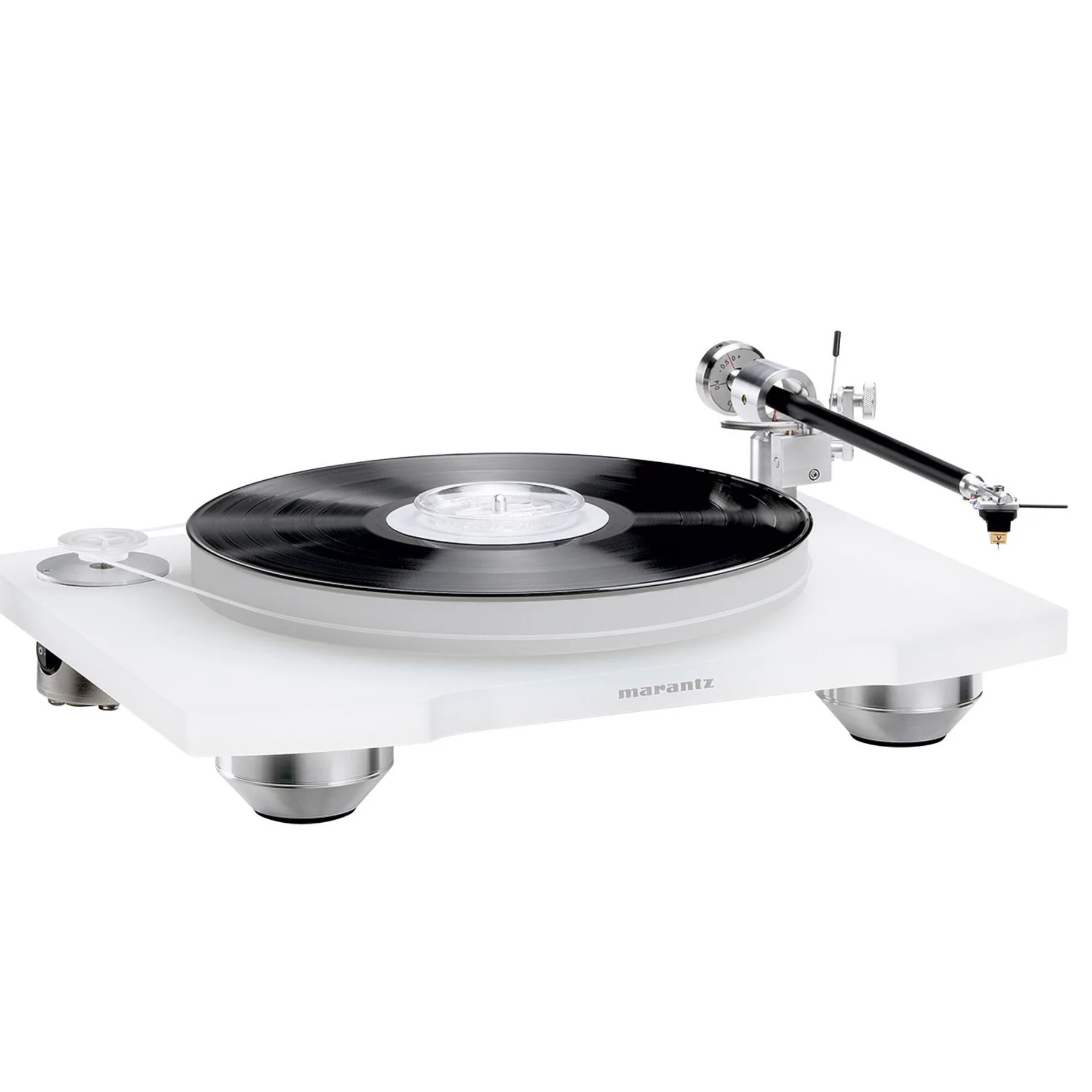
Best for pros
A gorgeous turntable that sounds incredible. The Clearaudio Virtuoso cartridge tracks beautifully, unearthing details you didn’t know were there. Getting serious with your vinyl collection? The TT-15S1 deserves an audition.
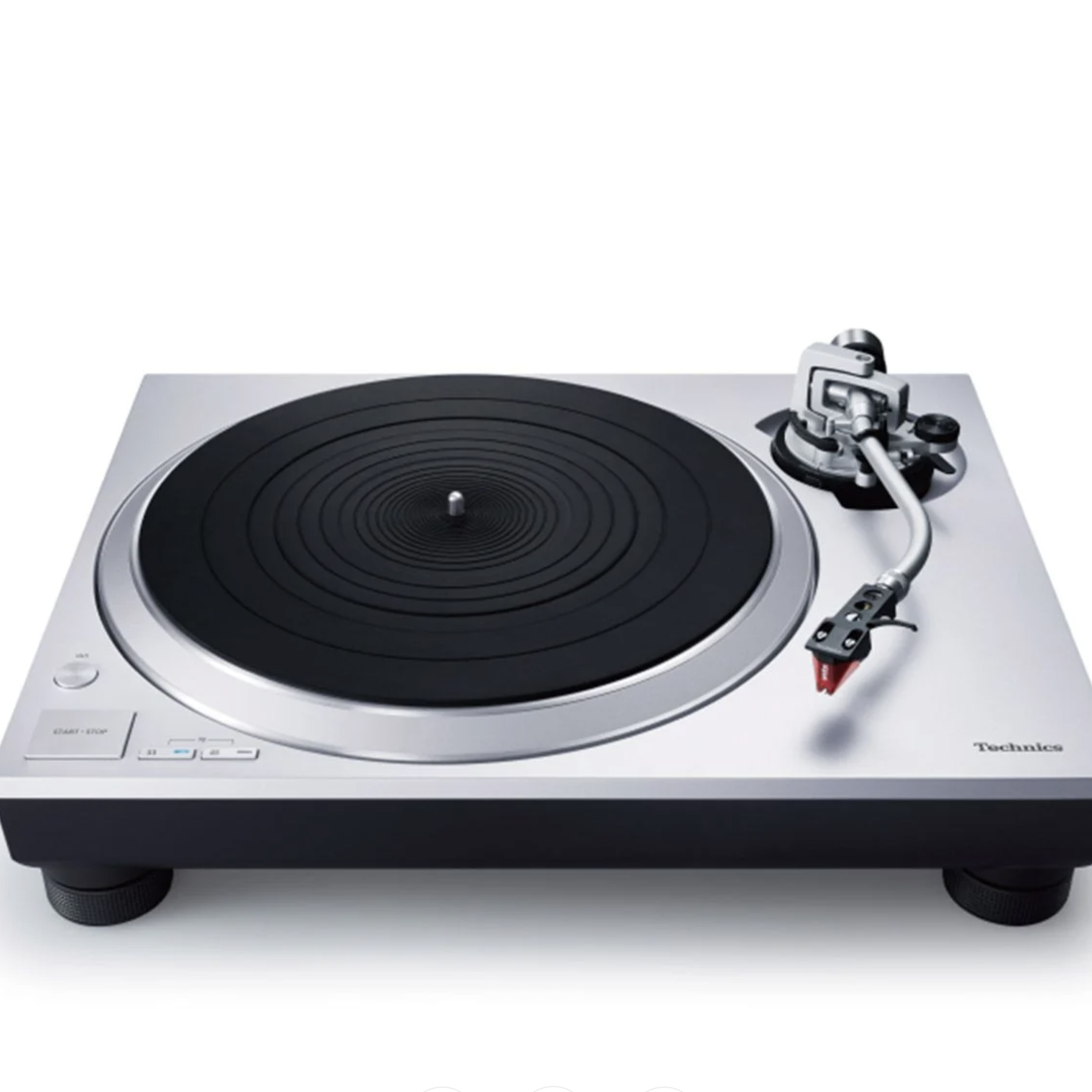
Best bullet-proof build
Technics was reborn in 2015, (parent company Panasonic closed it in 2010) but this is the first deck released since the relaunch that really reminds listeners of what they loved about the brand. Truly, this direct-drive deck feels unbreakable.
Read more below
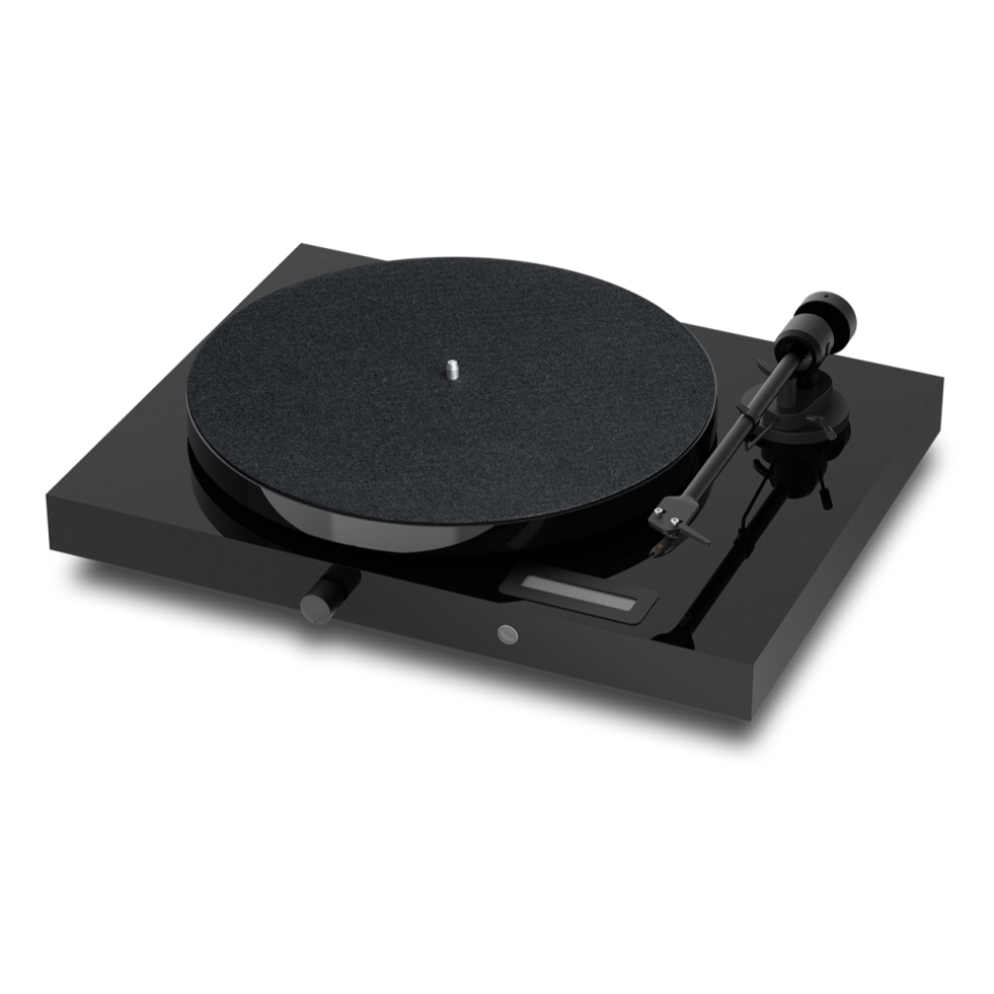
Best all-in-one
A great-sounding and well-priced turntable that has an amp, phono stage and Bluetooth receiver built-in – just add speakers! Great for those starting out who want top music quality.
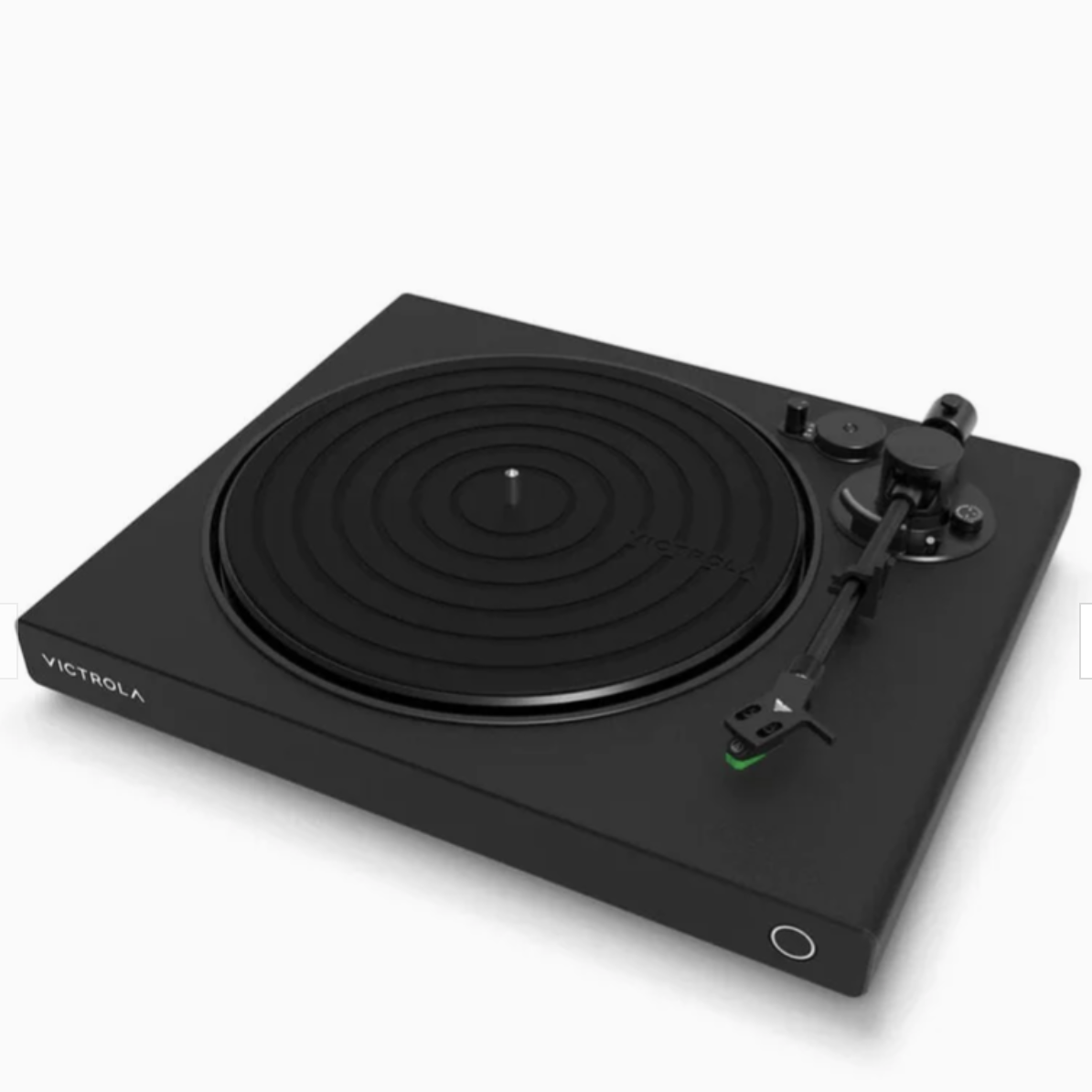
Best for Bluetooth integration
In a welcome break from most other Bluetooth-enabled turntables, this is a calibrate-able two-speed manual turntable, including counterweight and anti-skate mechanism to ensure both optimum playback and the safety of your vinyl. Most manual decks below $400 would stop here, but the Hi-Res Onyx includes… more.
Read more below
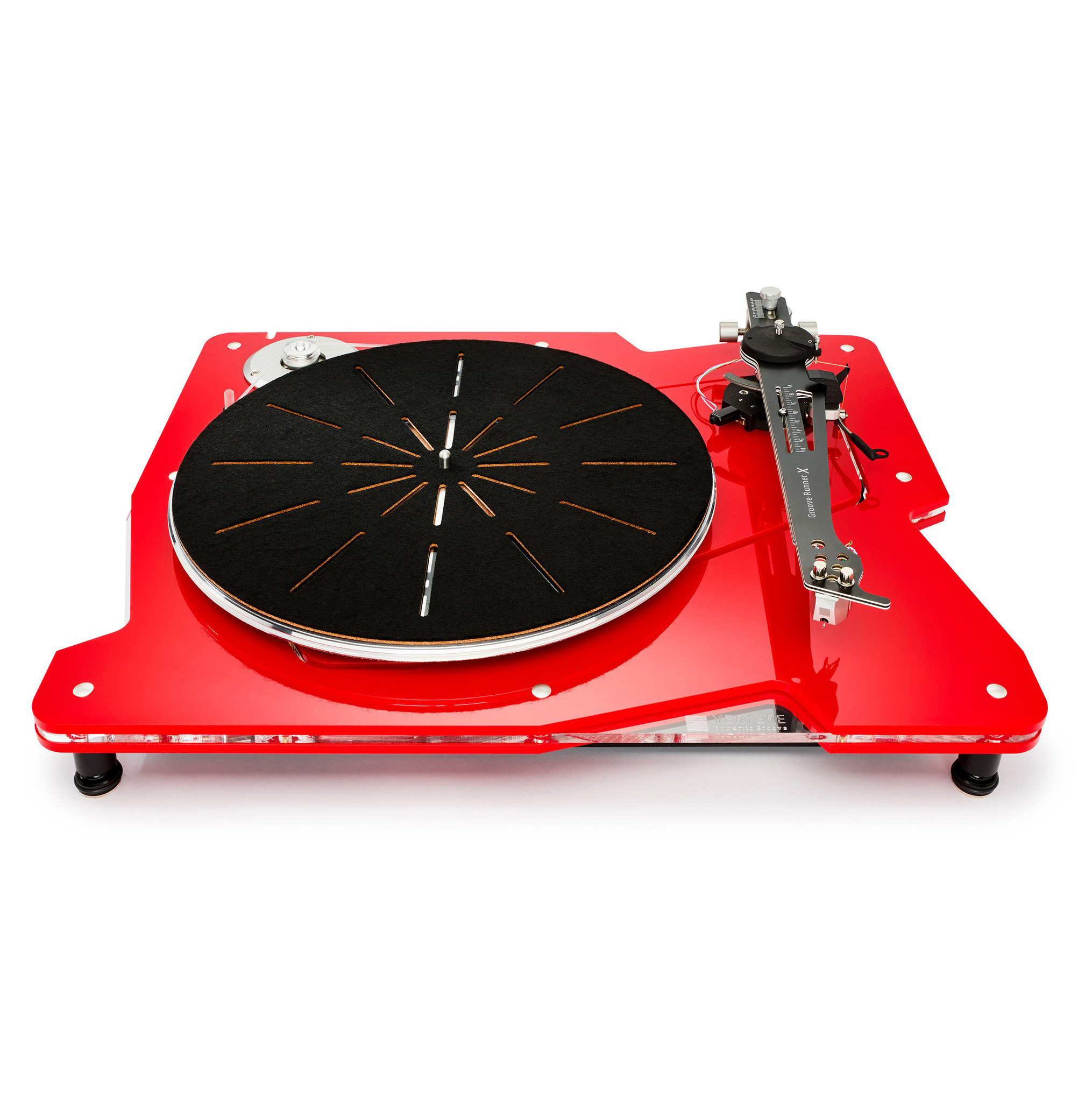
Best for design
A fantastically detailed turntable that delivers an engaging, unified sound. Not the most energetic choice out there, but it's so revealing you won't mind – and just look at that plinth. With its exhaustive spec list and high standard of finish, it's built for serious listening.
Read more below

I've reviewed over 150 audio products since becoming a tech journalist, ranging from super-budget earbuds to high-end Hi-Res Audio music players. Before joining TechRadar, I spent three years at What Hi-Fi? testing everything the world of audio had to offer; before that, I was a professional dancer. I'll always extol the virtues of listening (and dancing) to the best musical quality you can stretch to – and for more and more people, happily, that includes vinyl.
Recent updates
April 11, 2025
Refreshed the introduction and added a link to gives readers details about Record Store Day 2025. Added the Vertere DG X as our new 'best for design' pick, based on recent testing.
The best turntables of 2025
Why you can trust TechRadar
The best turntable overall
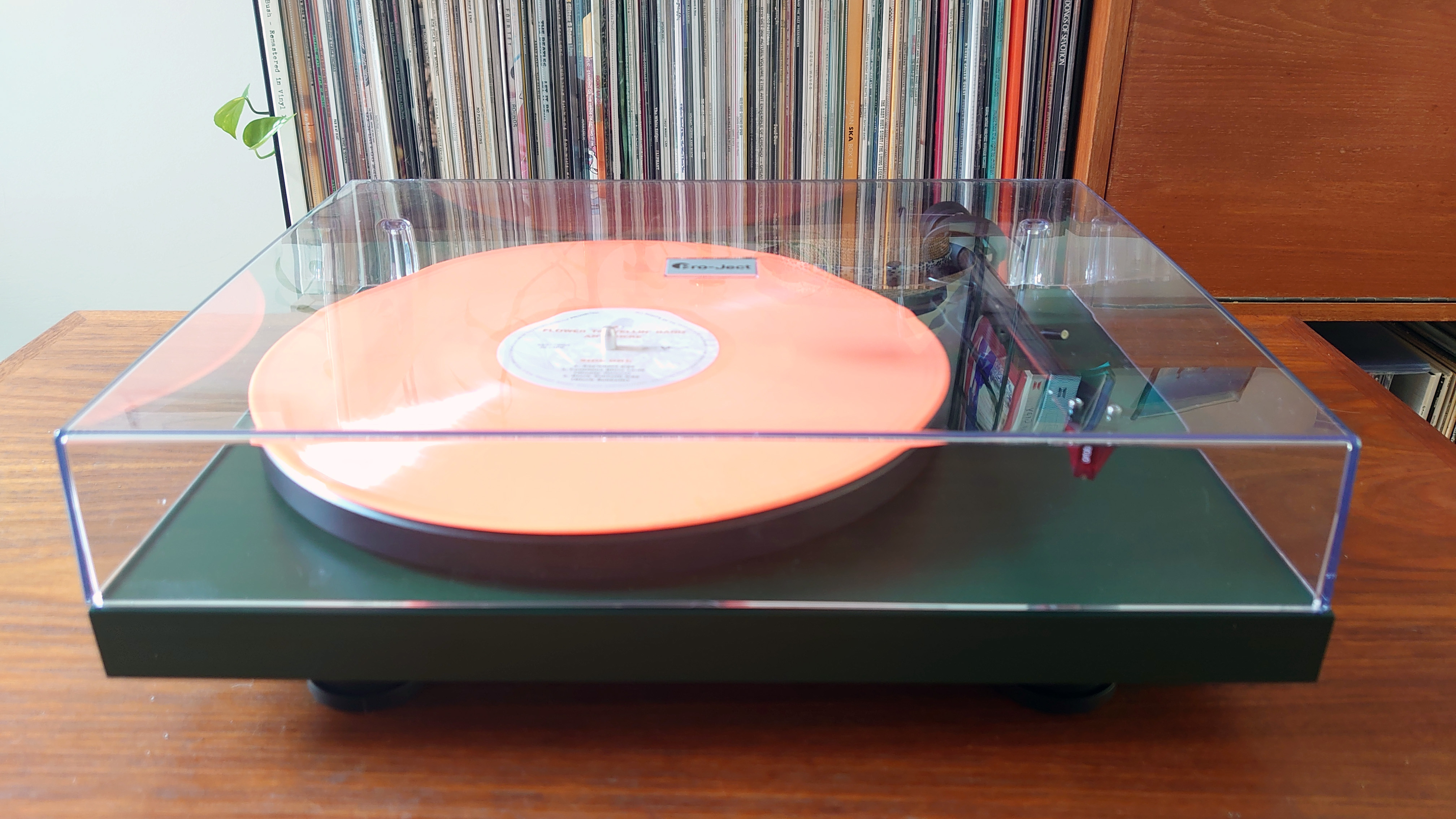
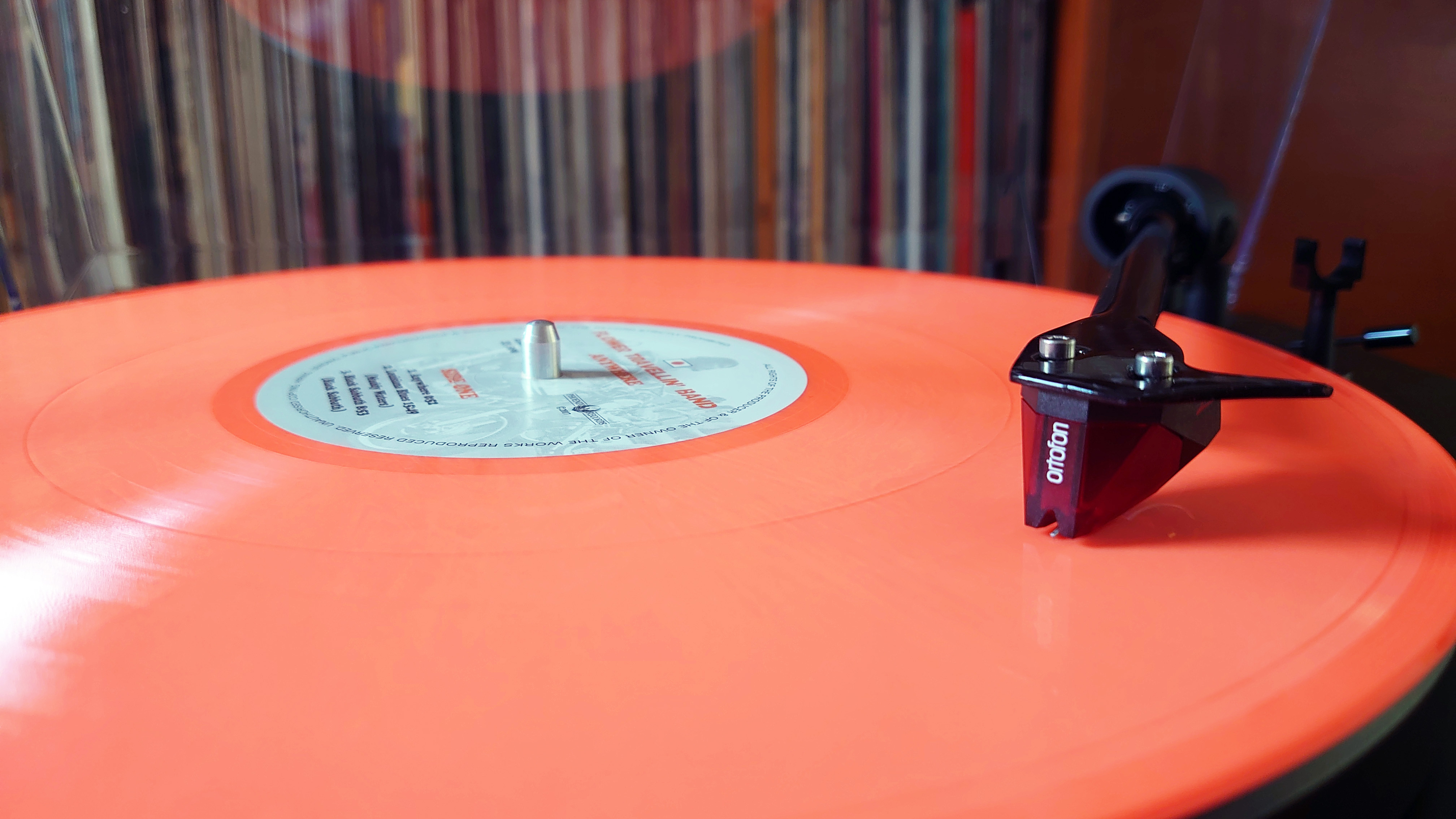
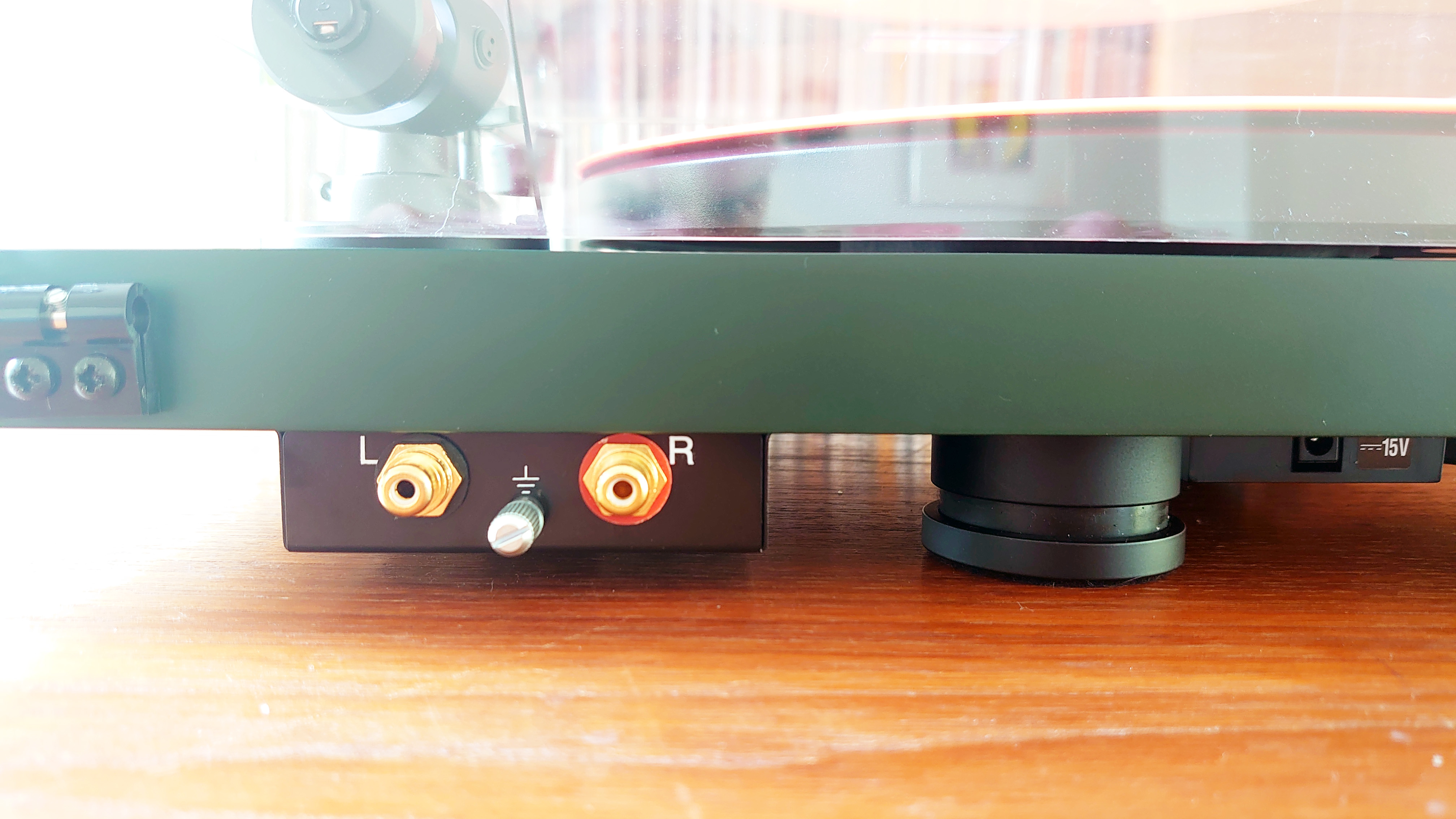
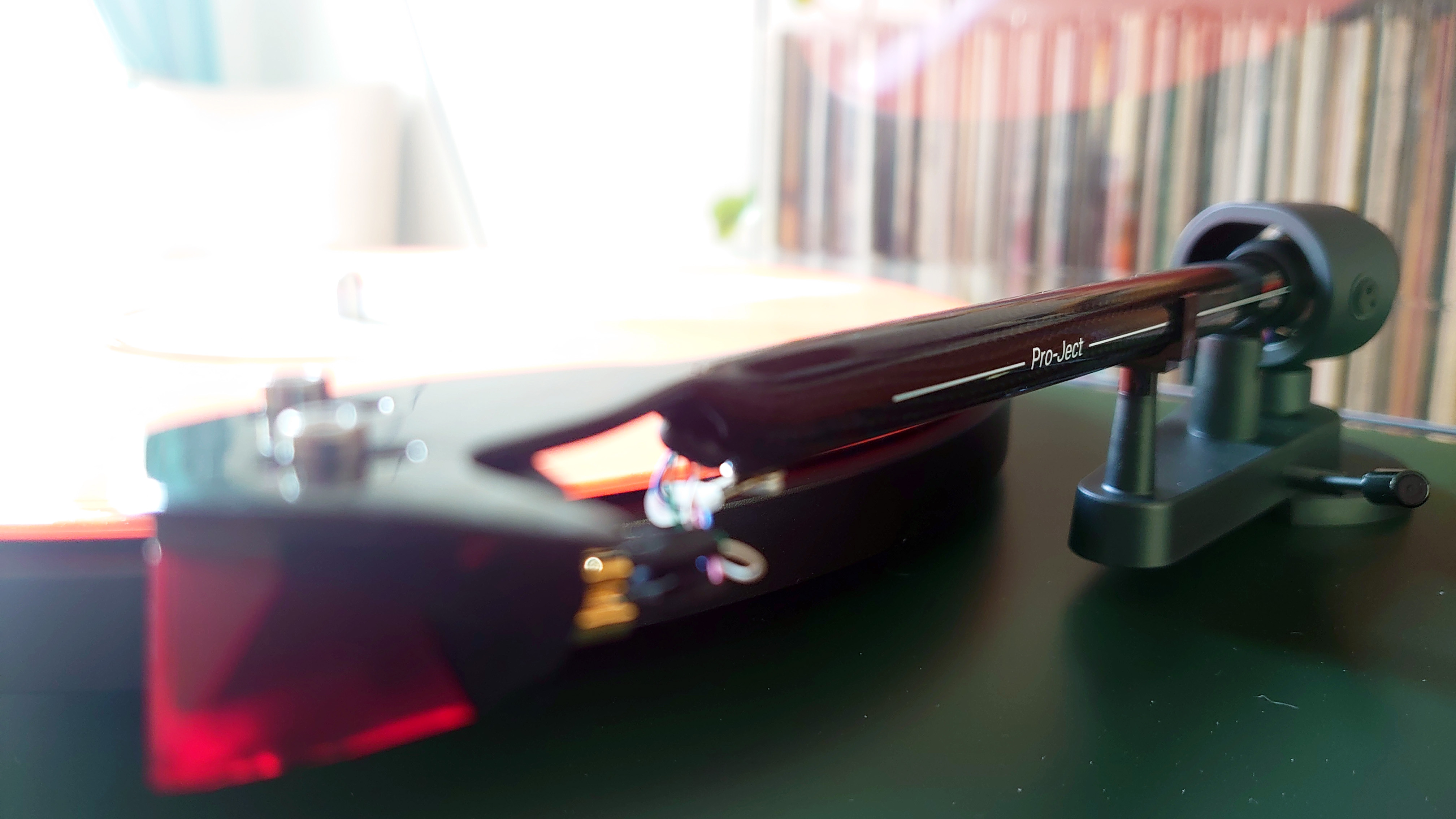
Specifications
Reasons to buy
Reasons to avoid
✅ You want to hear everything from your records: The Pro-Ject is a wildly detailed listen – even the barely there transient details are picked up on and handed over.
✅ You don’t want to get too hands-on: The new automatic speed control means no more lifting off the platter and moving the drive belt.
❌ You want the cleanest, clearest vinyl experience: The Pro-Ject’s not without competition – and the best rivals are a little less laid-back.
❌ You want some 21st-century touches: Lately we’ve seen a few turntables with Bluetooth, or USB outputs. This ain’t one of them.
If you want to enjoy the rich sound of vinyl without compromising on even a speck of of glorious audio information, the Pro-Ject Debut Carbon Evo is one of the best turntables for this – and that makes it one of the best decks on the planet right now. Also, the carbon fiber tonearm is pre-mounted with a very capable Ortofon (or Sumika) cartridge. A new motor design, some damped and adjustable feet, and automatic speed change contribute no end to the Debut Evo's improved performance and improved ergonomics over the previous Pro-Ject model.
Simply put, it sounds fantastic. It doesn’t matter what sort of music you like to listen to, the Debut Carbon Evo laps it up. Our testing process revealed a detailed and compelling deck that's able to focus on the minutiae even as it describes the complete picture. And it does so with conviction. The Debut Carbon Evo has all the warmth and weight that vinyl is famous for, but it refuses to get bogged down – it simply motors along in the most natural way imaginable.
Its steel platter is now heavier, thanks to a thermoplastic ring on its inside edge – this reduces operation noise – and there’s now a suggestion of convenience in the shape of a speed-change switch at the bottom of the plinth; previously you’d have to take off the platter and move the drive belt to change speeds, but now 33.3rpm can become 45rpm (or vice-versa) at a press. You can change the drive belt itself in order to play at 78rpm. Both belts are included in the package. The one-piece tonearm is made of carbon fiber, and comes fitted with a very capable Ortofon 2M Red cartridge (except in America, where it features a Sumiko Ranier cartridge instead). With a choice of nine finishes, including five very attractive new ‘satin’ options, there’s sure to be a Debut Carbon Evo to fit in with your interior decor choices.
The Debut Carbon Evo is the most refined, upgraded and enjoyable Pro-ject model we've ever tested, which is why it's our pick for the best turntable you can buy – but it’s also the most expensive. Don't let the price put you off if you can afford it, though.
Read our full Pro-Ject Debut Carbon Evo review
The best budget Bluetooth buy
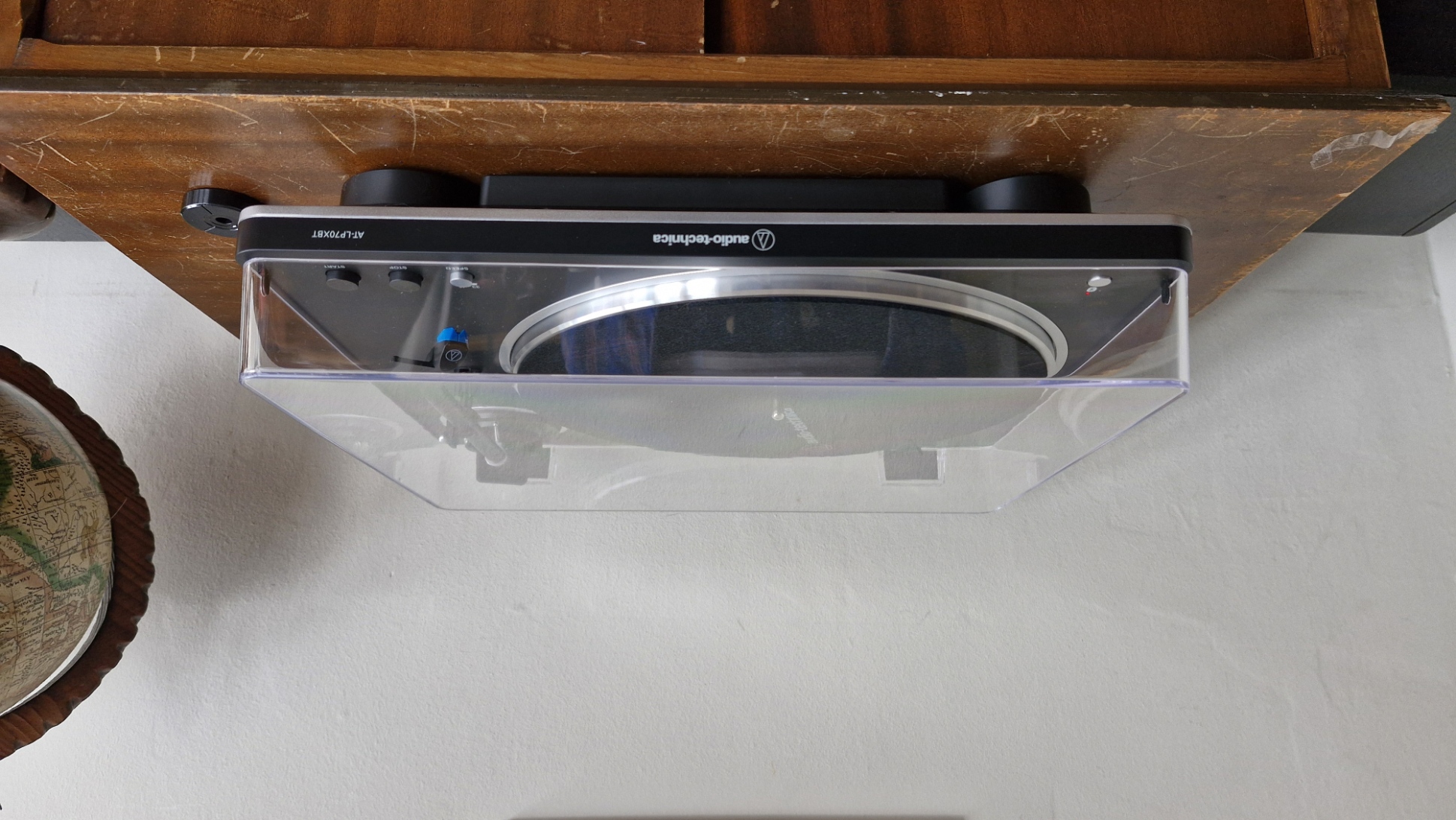
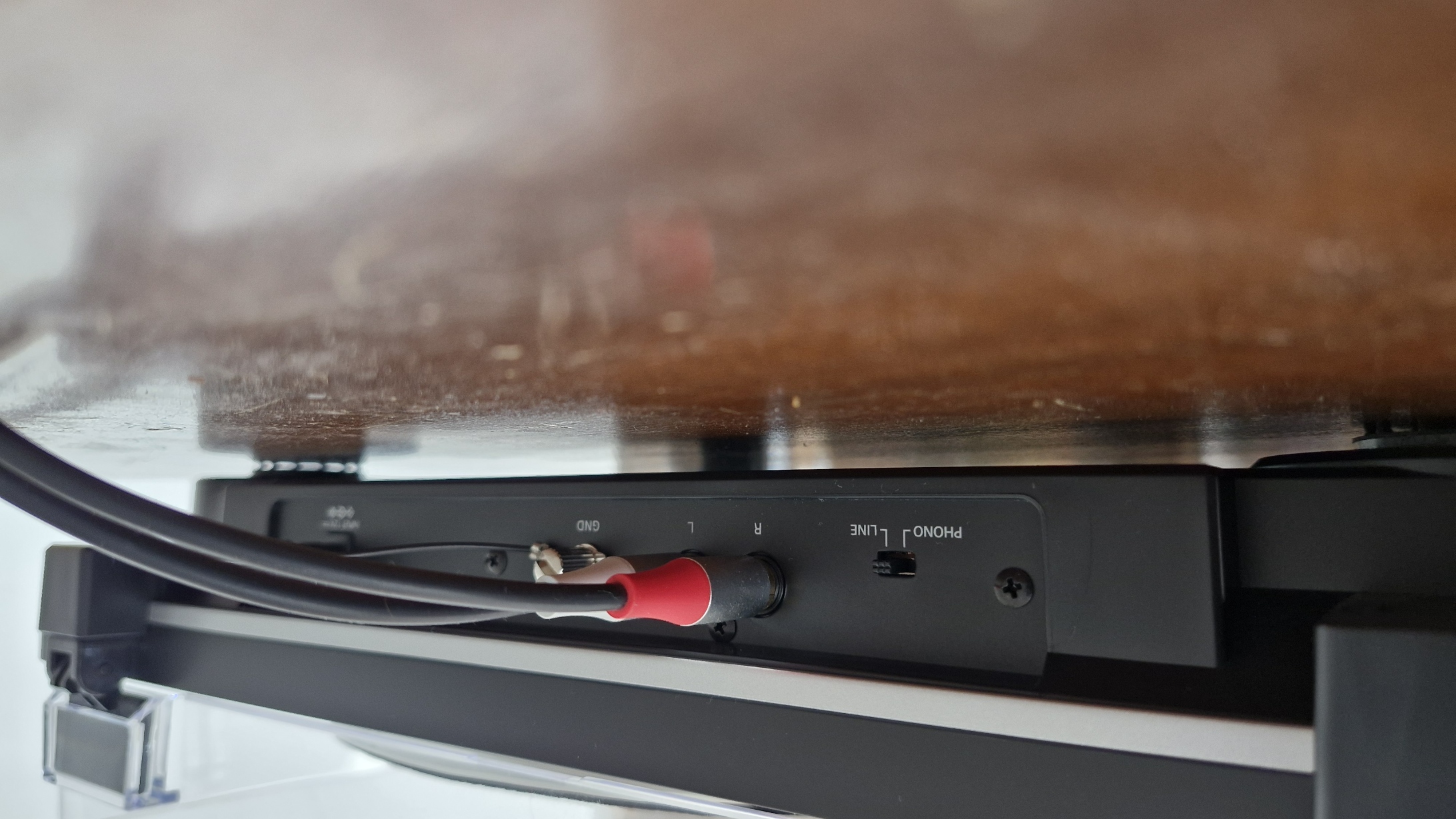
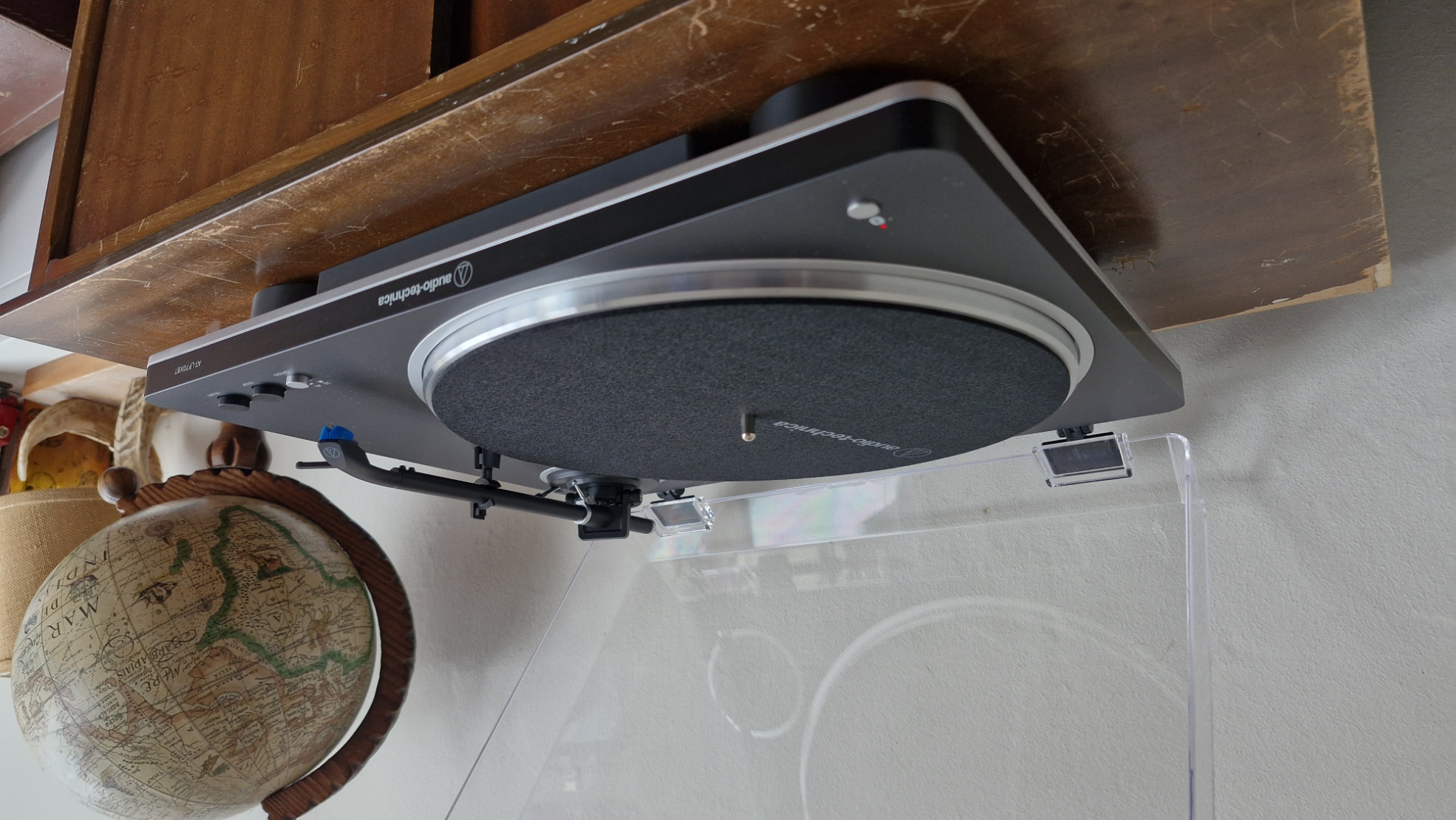
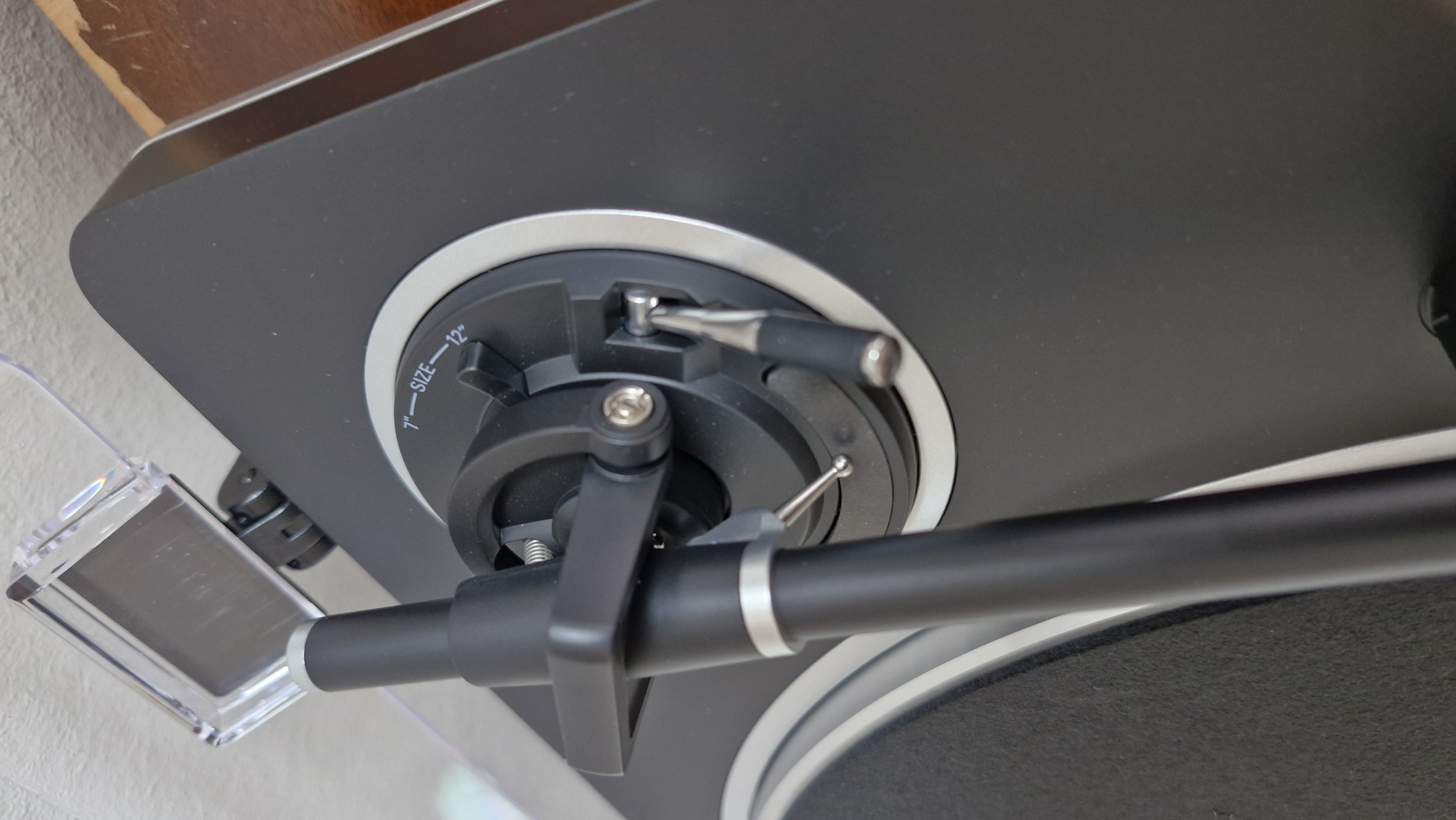
Specifications
Reasons to buy
Reasons to avoid
✅ You're a beginner: A plug-and-play device that's ideal for anyone getting started with vinyl.
✅ You want a simple set-up: There are a few things you need to do before you can get up and spinning, but it's all relatively simple.
❌ You may want to customize it one day: Yes, you can upgrade the stylus but otherwise your options are pretty limited.
❌ You want the ultimate audio experience: Sound is good here, but it's not perfect. For a more detailed, immersive experience, you'll need spend a little more.
The Audio-Technica AT-LP70XBT is our top budget choice. It replaces the Audio-Technica AT-LP60XBT that came before it, and is a little pricier, making it the top-end of budget. But in our books it's still the best affordable choice, especially for beginner vinyl enthusiasts who want to get up-and-running with little fuss.
Setting it up is easier than ever. This is a plug-and-play device that's been pre-calibrated, meaning you get easy playback. You can then listen either wired or wirelessly and there's seamless Bluetooth connectivity if that's what you choose. Although some cheaper players have underpowered motors, the AT-LP70XBT is belt-driven with a motor that's not only strong but quiet, too.
Don't expect the impeccable, premium sound of pricier options. But what you do get is an audio performance that outperforms many other budget options. In our review, we wrote: "It scores highly here for its impressive stability, surprising depth and otherwise clear voice." The pre-installed AT-VMN95C stylus is responsible for the smooth playback. But you're also able to switch the stylus out for another Audio-Technica needle, which is handy and mostly unheard of with budget turntables.
The design of the AT-LP70XBT is slinkier and more minimal than its predecessor, the AT-LP60XBT. With some features control buttons and switches hidden away. However, it does have both a fixed cartridge system and a fixed-weight tonearm, which is expected at this price. It's also lightweight with a plastic chassis, which is handy for moving about but does mean you'll need to be careful with it.
If you want an affordable and simple set-up, the Audio-Technica AT-LP70XBT is a great value choice that outperforms many other budget options. Its flourishes and improvements over the previous AT entry-level option make it a solid and enjoyable device, especially for anyone considering their first turntable.
Read our full Audio-Technica AT-LP70XBT review
The best high end performer
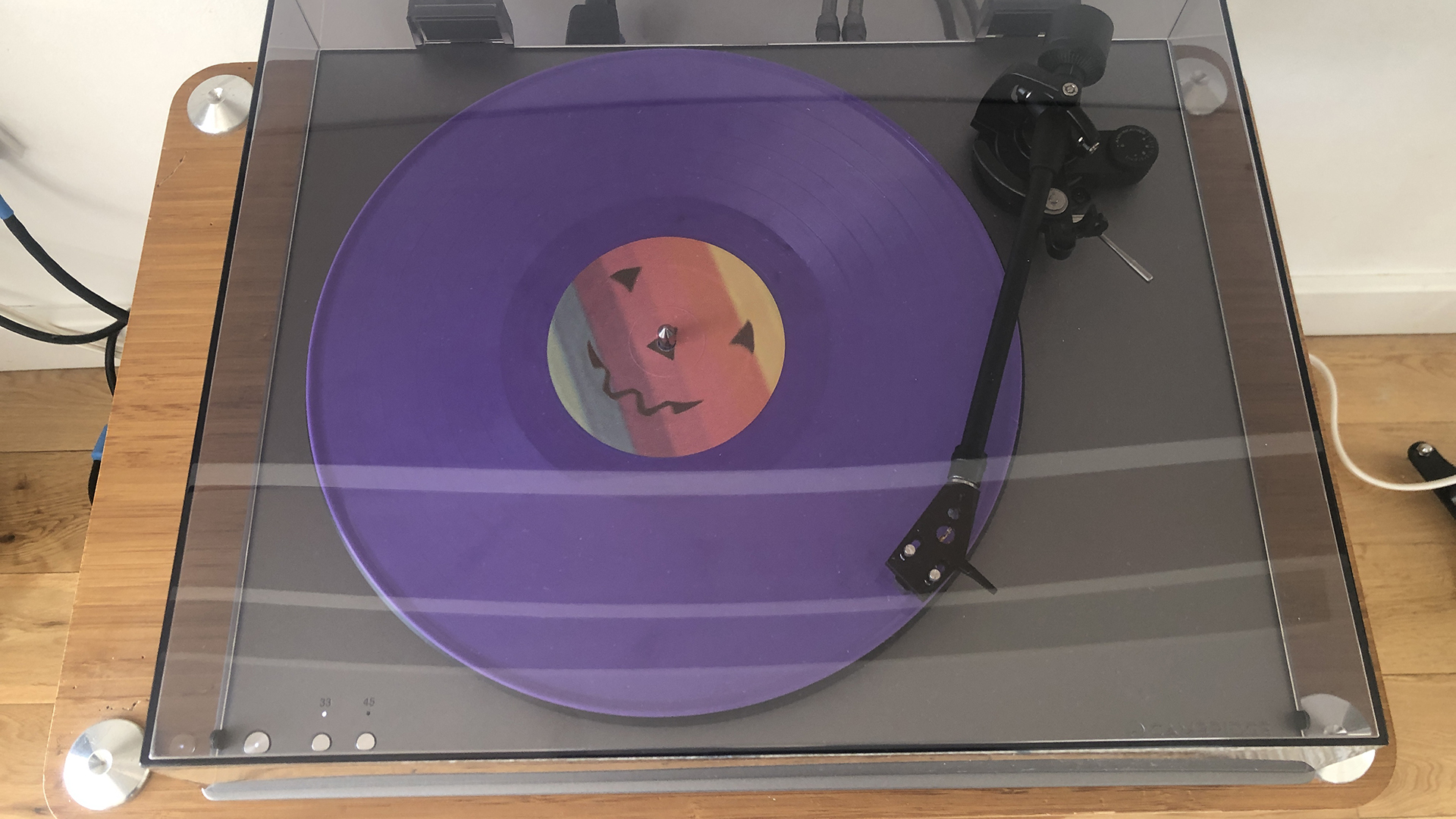
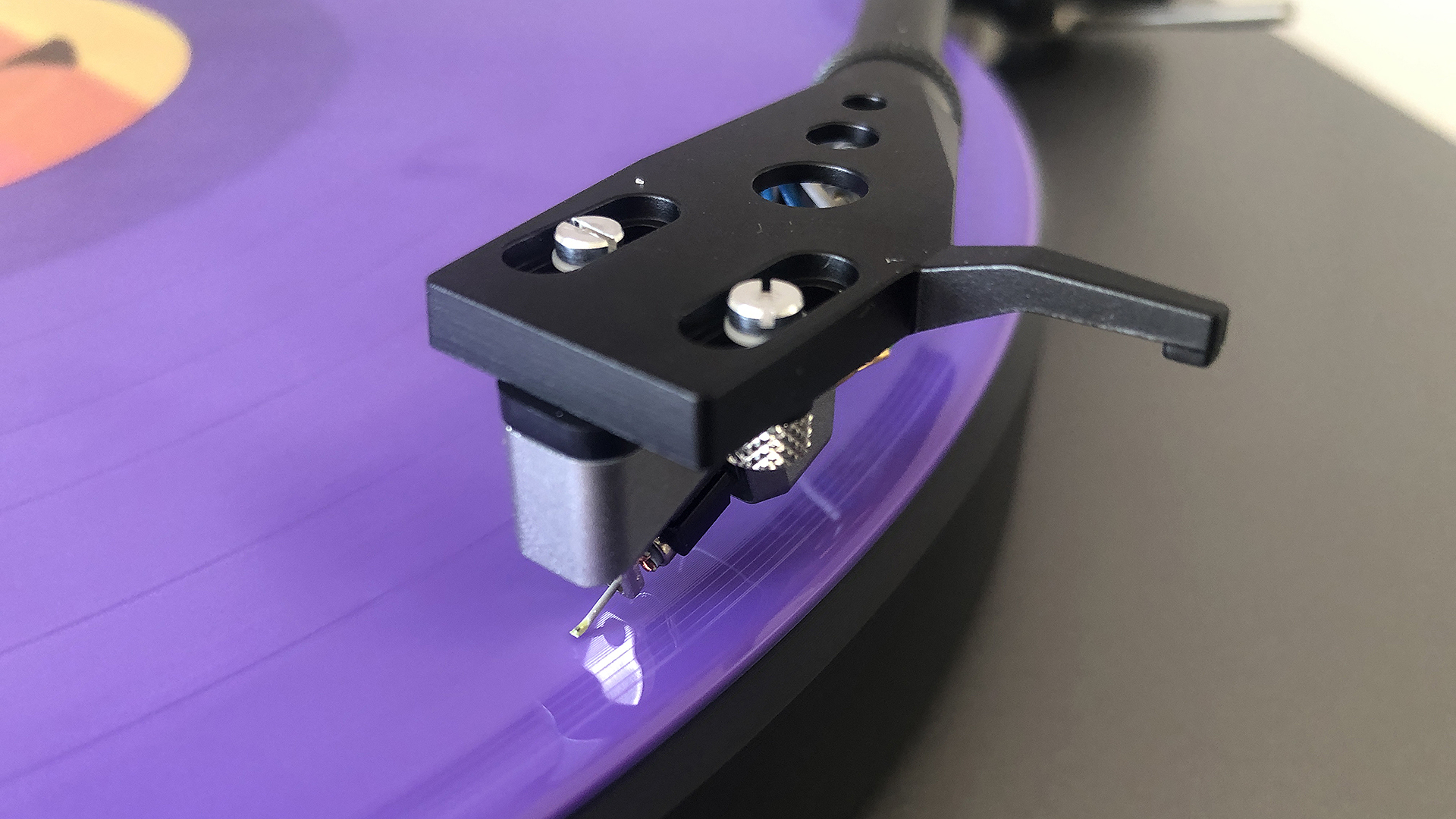
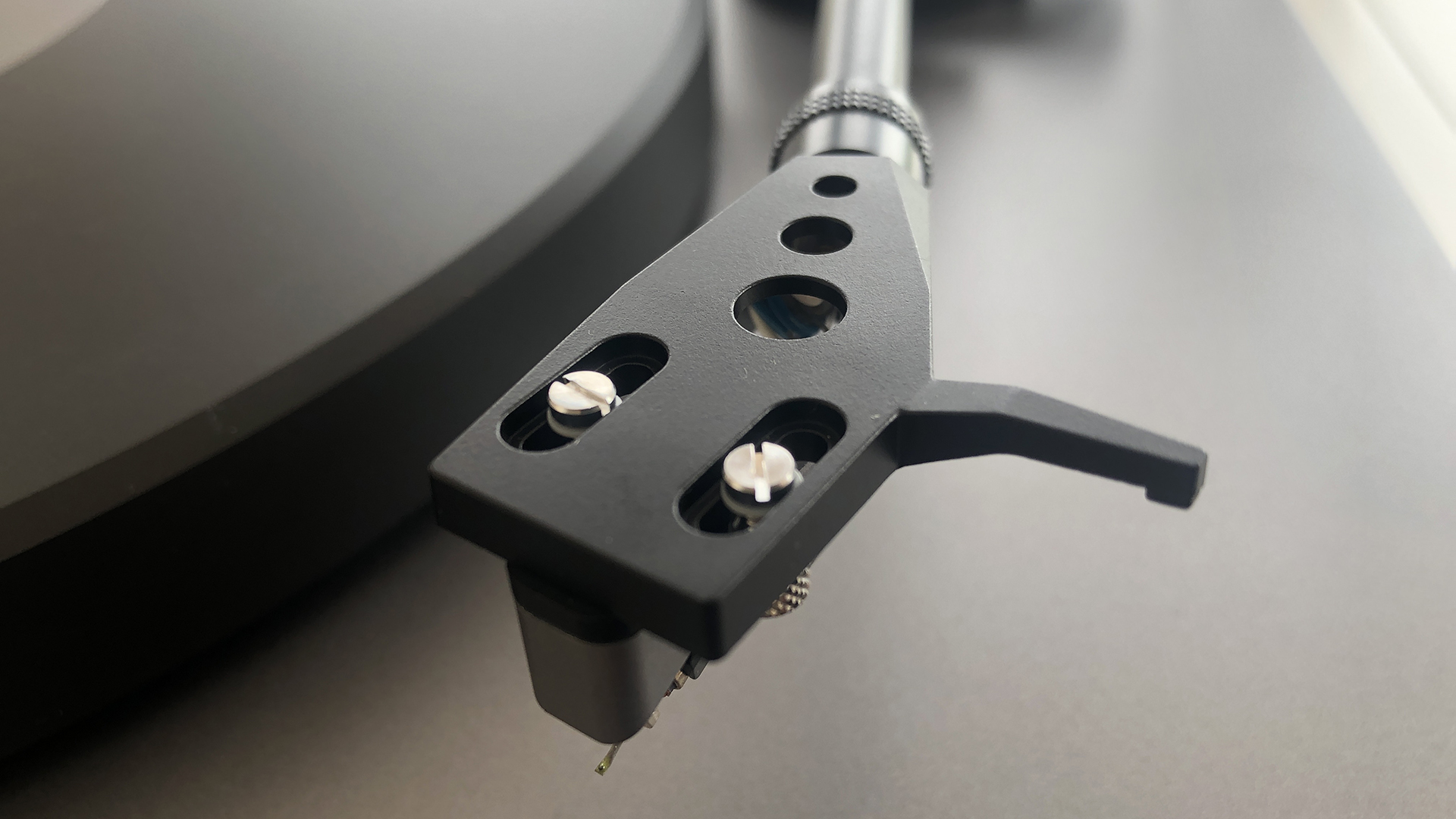
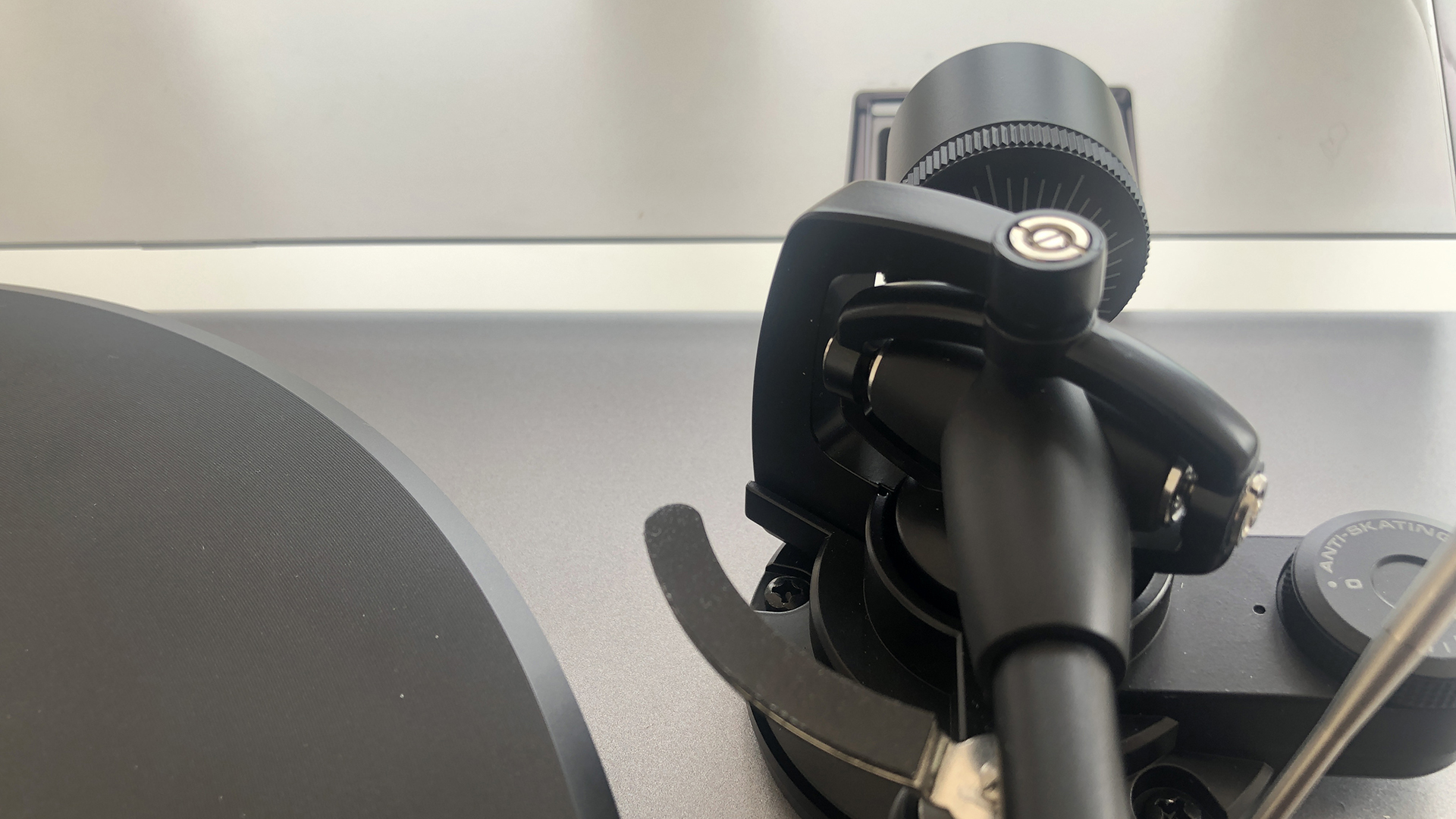
Specifications
Reasons to buy
Reasons to avoid
✅ You want your old format to have some modernity: Short of turning your records over for you, the Alva TT V2 makes things as simple as possible.
✅ You like a balanced and easy listen: ‘Easy’ in this instance is by no means a negative, and sounds great through various connection options.
❌ You’re expecting wireless to match wired: It sounds better hard-wired, no two ways about it. But that's always going to be the case.
❌ You enjoy the more visceral aspects of music: The Alva TT v2 isn’t the most forthright or dynamic turntable around for those who like lots of attack.
If you’re looking for a top-performing turntable, the Cambridge Audio Alva TT V2 is tough to beat. You get a built-in phono stage so it can be connected directly to an amp or active speakers, but it's switchable, so you can use your own high-end solution if you have one. It also includes Bluetooth for sending sound directly to headphones or a wireless speaker – and it's aptX HD Bluetooth, so you get more detail. The device’s tonearm features anti-skate as well as counter-weight adjustment and has a detachable headshell for ease of cartridge-replacement. It’s pre-fitted with a cartridge, of course – a high-output Cambridge Audio moving coil option.
Inevitably, we found that it does sound its best through some great wired components than even the best top-tier Bluetooth headphones. However, we did still get that rich, vinyl sound wirelessly, and with greater clarity and precision than from cheaper Bluetooth turntables. As we said in our review: "The Alva TT V2 is a deft, smooth and insightful listen, a little short of dynamic headroom but very long indeed on detail retrieval, tonal balance and generously engaging sound."
It might be the best in the list for high-performing audio and specs, but it isn’t the prettiest or most elegant model. This turntable's aesthetic could best be described as functional; it is designed to look like a turntable, albeit a nicely constructed one. A hefty chassis is topped by a tactile aluminium plinth – but the build quality is classy.
The Alva TT v2 isn’t the most forthright or dynamically agile deck around for those who like oodles of attack. But it is way more convenient than the norm, and it's also a turntable that’s able to hold its head high in pure performance terms, too. If you want a deck packed with clever and useful tech that delivers an easy listen most music lovers will find enjoyable, it’s a great value investment.
Read our full Cambridge Audio Alva TT V2 review
The best mid priced deck
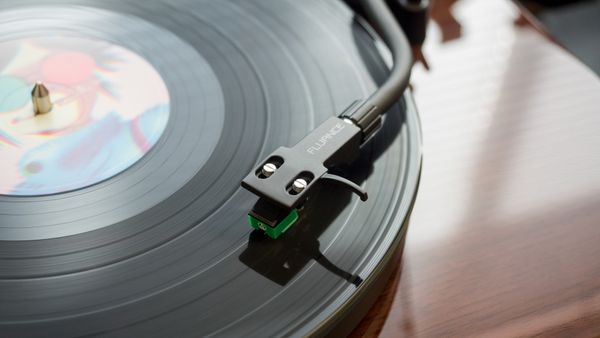
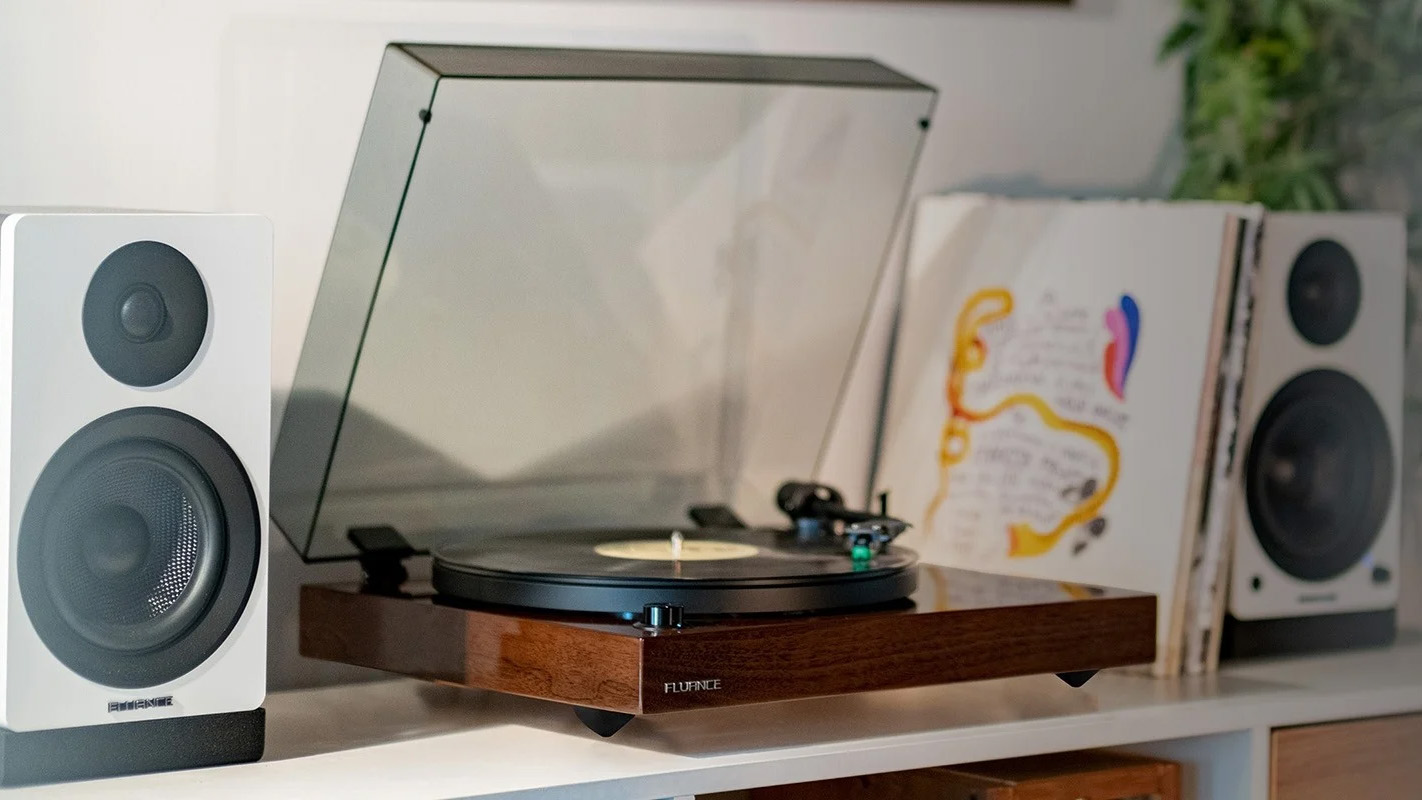
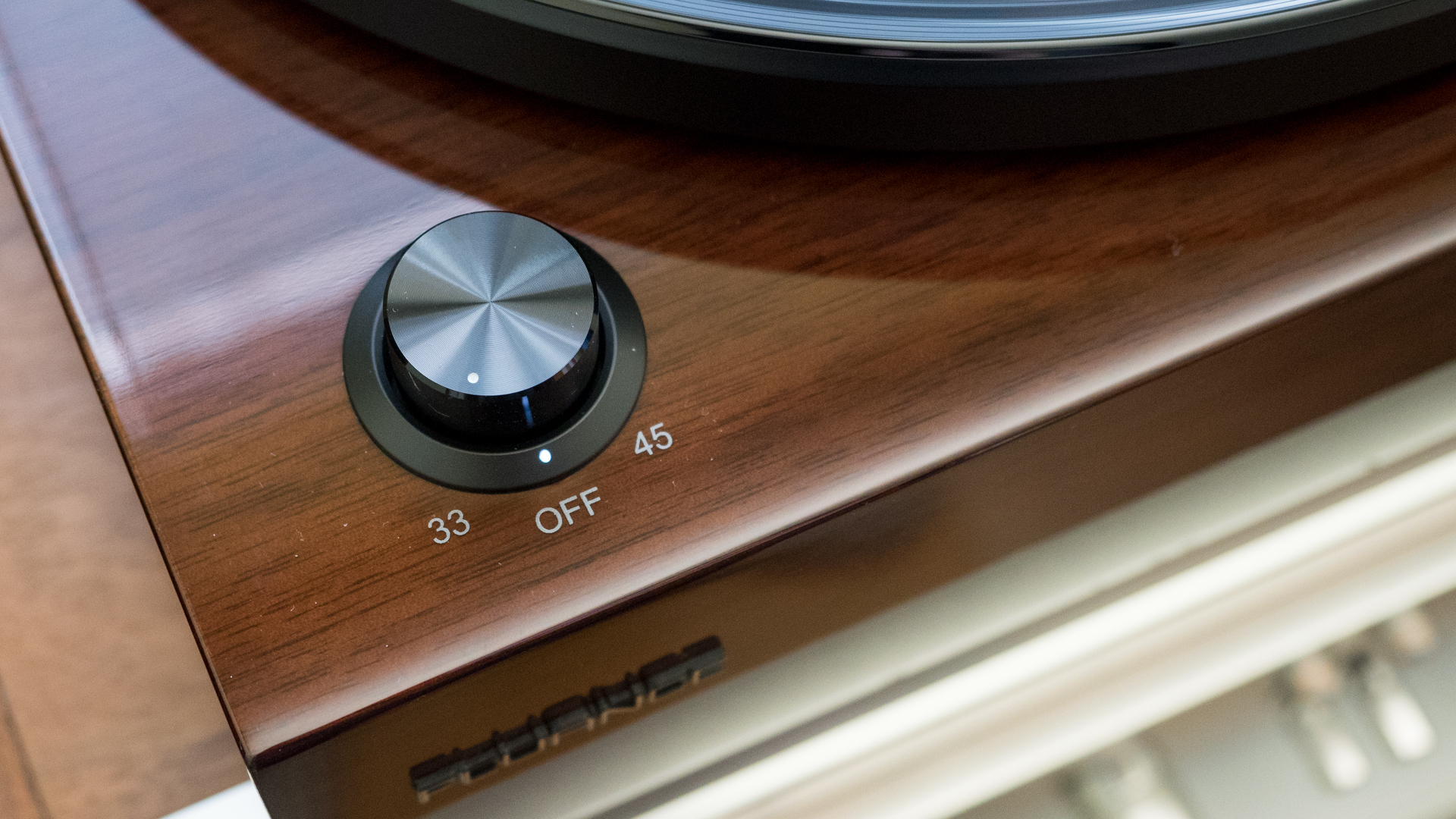
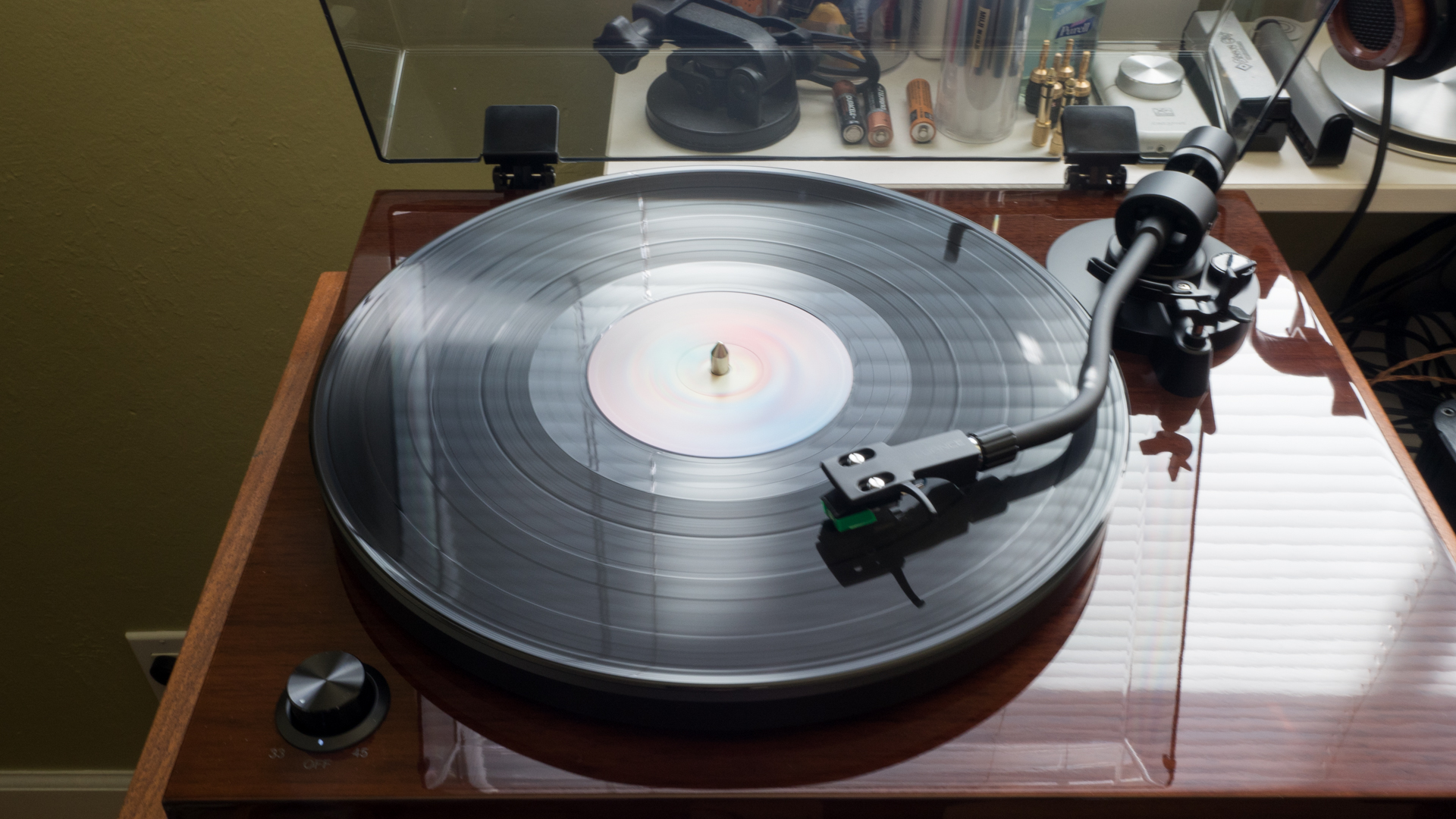
Specifications
Reasons to buy
Reasons to avoid
✅ You need easy setup and convenient features: Changing speeds is easy with a dedicated button – and it has an automatic start and stop.
✅ You want to get the best possible value: If you want a deck that just works, looks classy and can be upgraded later, put this on the list.
❌ You want consistent speed: We found there to be some hunting and pecking to keep a smooth playing speed.
❌ You want some 21st-century touches: The Fluance RT81 slightly lacks the detail of higher-end turntables.
The Fluance RT81 is an excellent beginner turntable. The reason? It's simple to set up and use for newbies, but as you'd expect, you can level up the cartridge to squeeze even more performance out of it later on. You don't need to worry about getting a separate phono preamp either, as there's one built in, but you can turn that off if you want to use a more powerful external preamp in the future.
We really enjoyed this turntable's sound during testing, but we did encounter a few issues. The Fluance RT81's promised “auto-off” feature turns the platter off to prevent excessive needle wear, which is good, but you still have to return the arm to its resting place yourself.
You’ll also have to manually queue records, which isn’t a deal breaker by any means but may put off anyone looking for a fully automatic player. If that's you, the Denon DP-300F (also in this guide) is a great choice for a fully automated vinyl experience.
Then again, if you want a more high-end performance from the get-go, take a look at the Pro-Ject Carbon Evo at the top of our guide. Then again, the Fluance remains a viable shout. As we wrote in our review: "If you want a turntable that just works, looks good, and can be upgraded later, the Fluance RT81 is the turntable for you."
Read our full Fluance RT81 review
The best super budget beginner deck
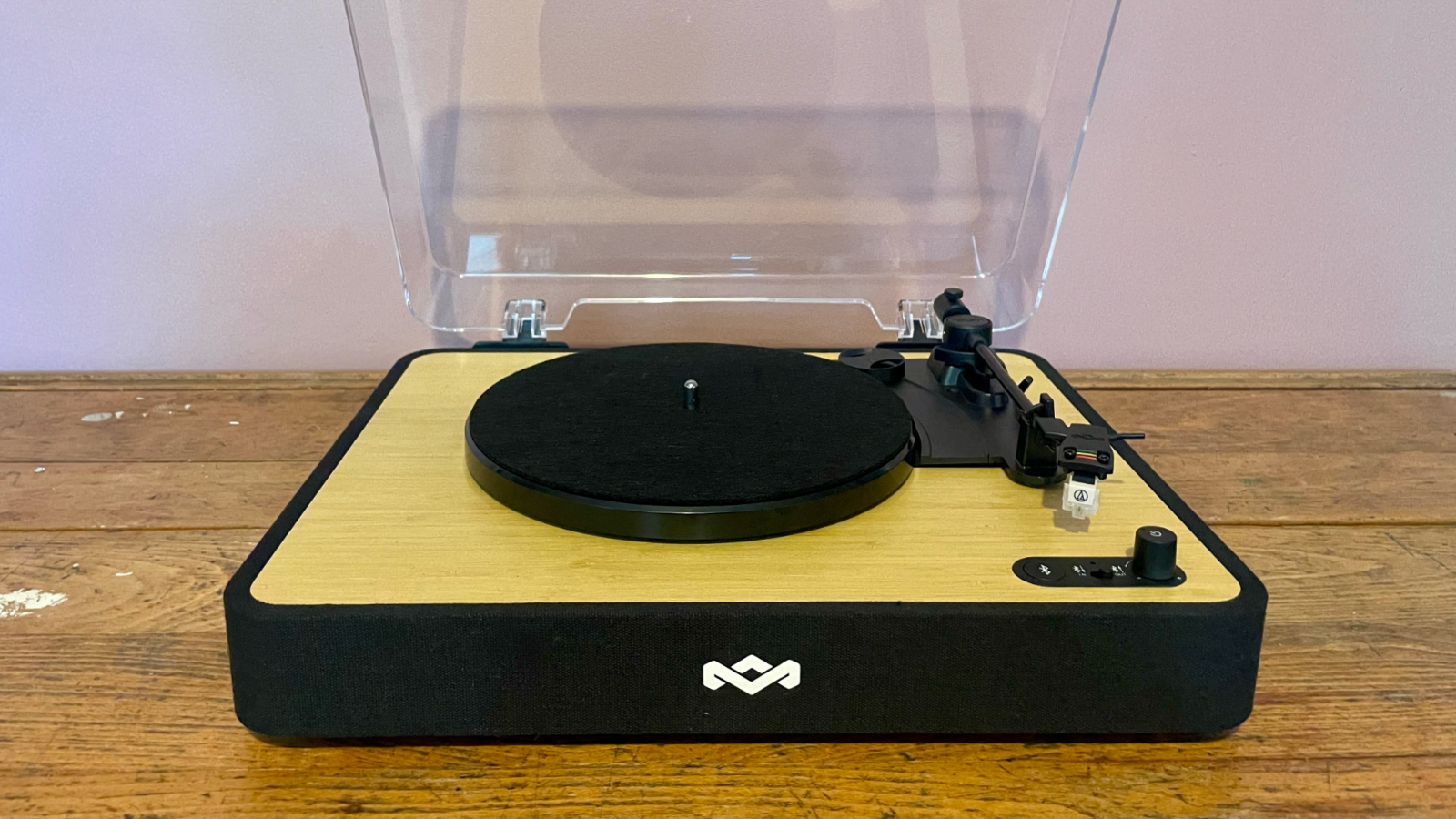
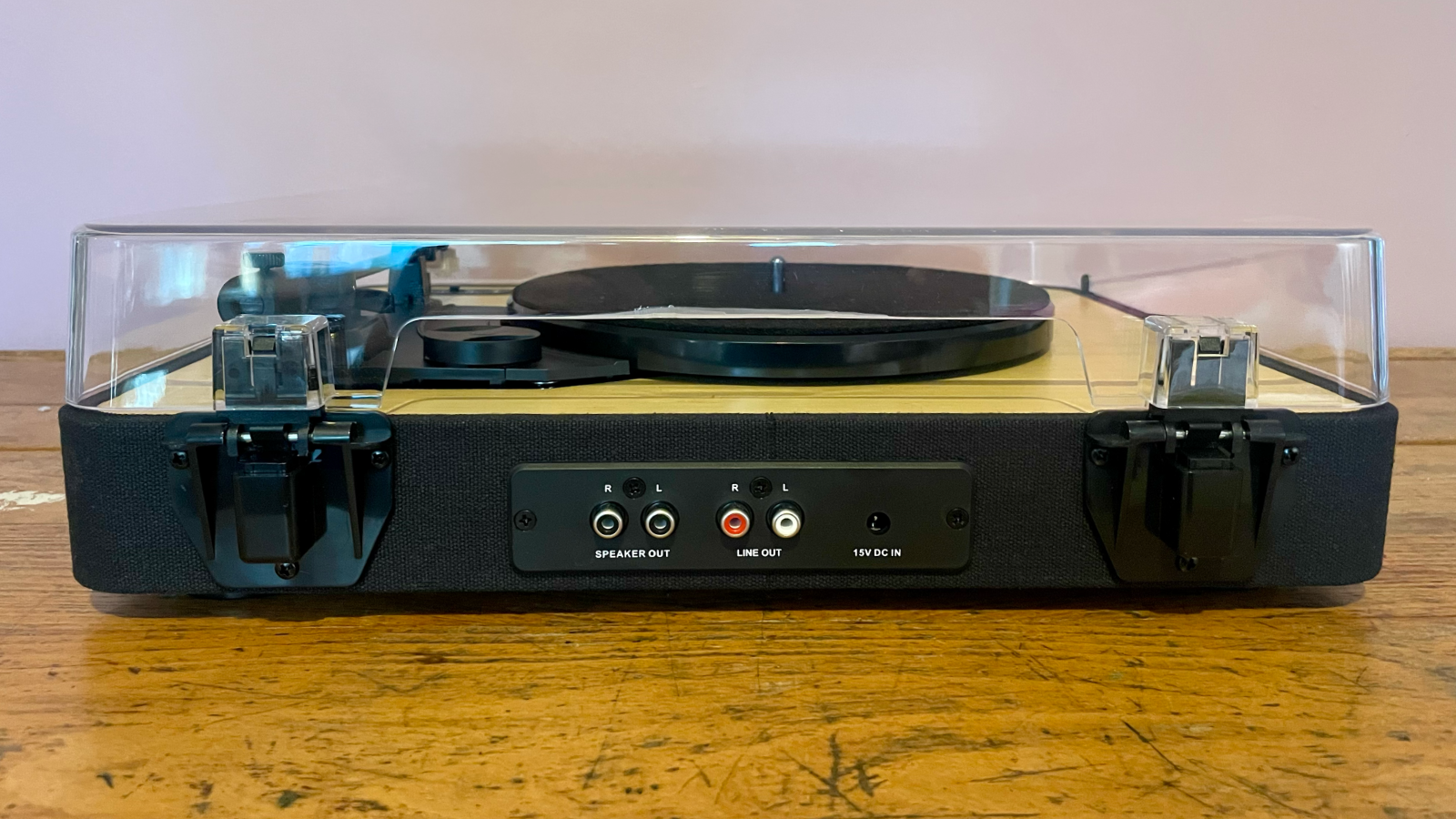
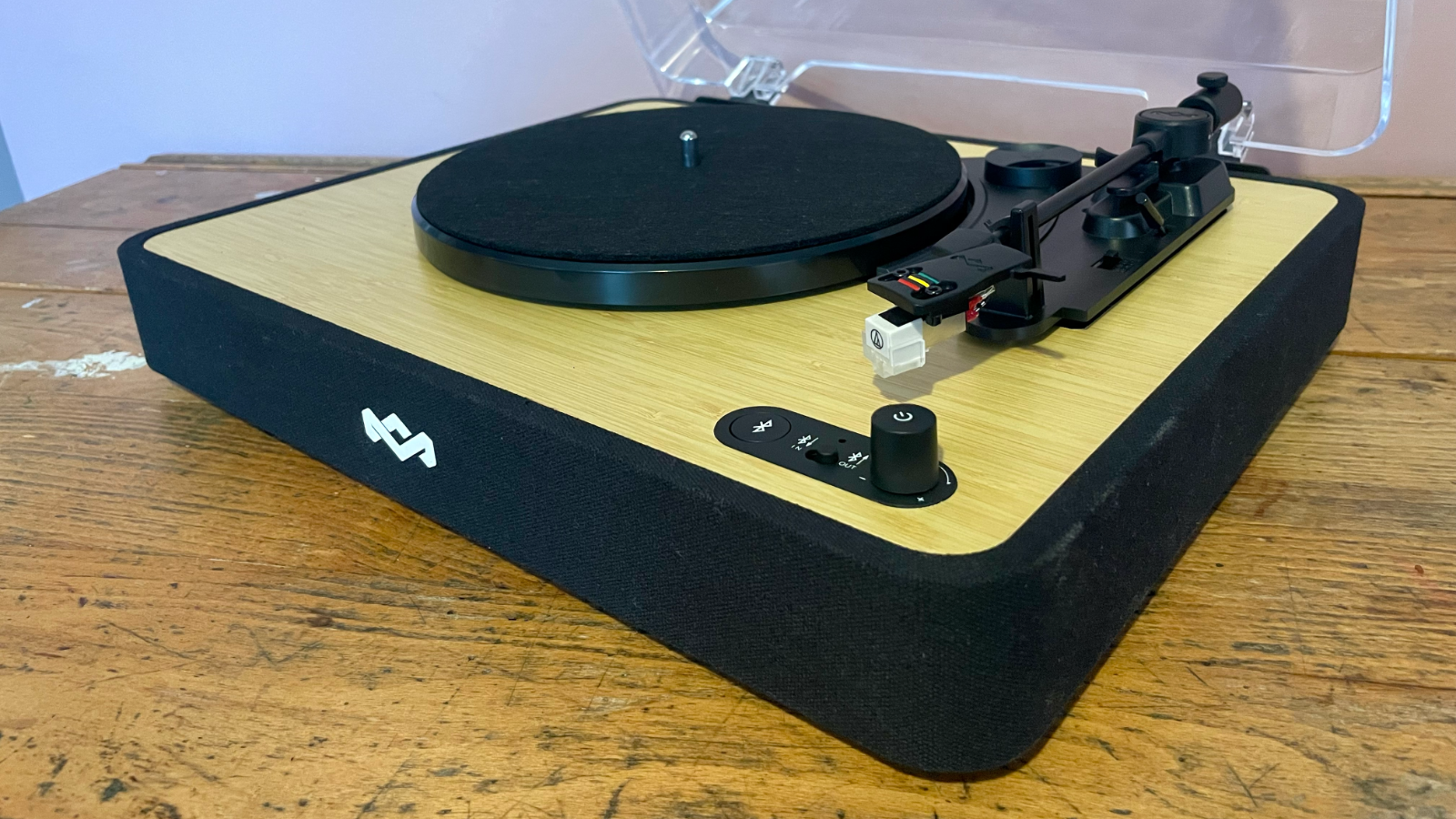
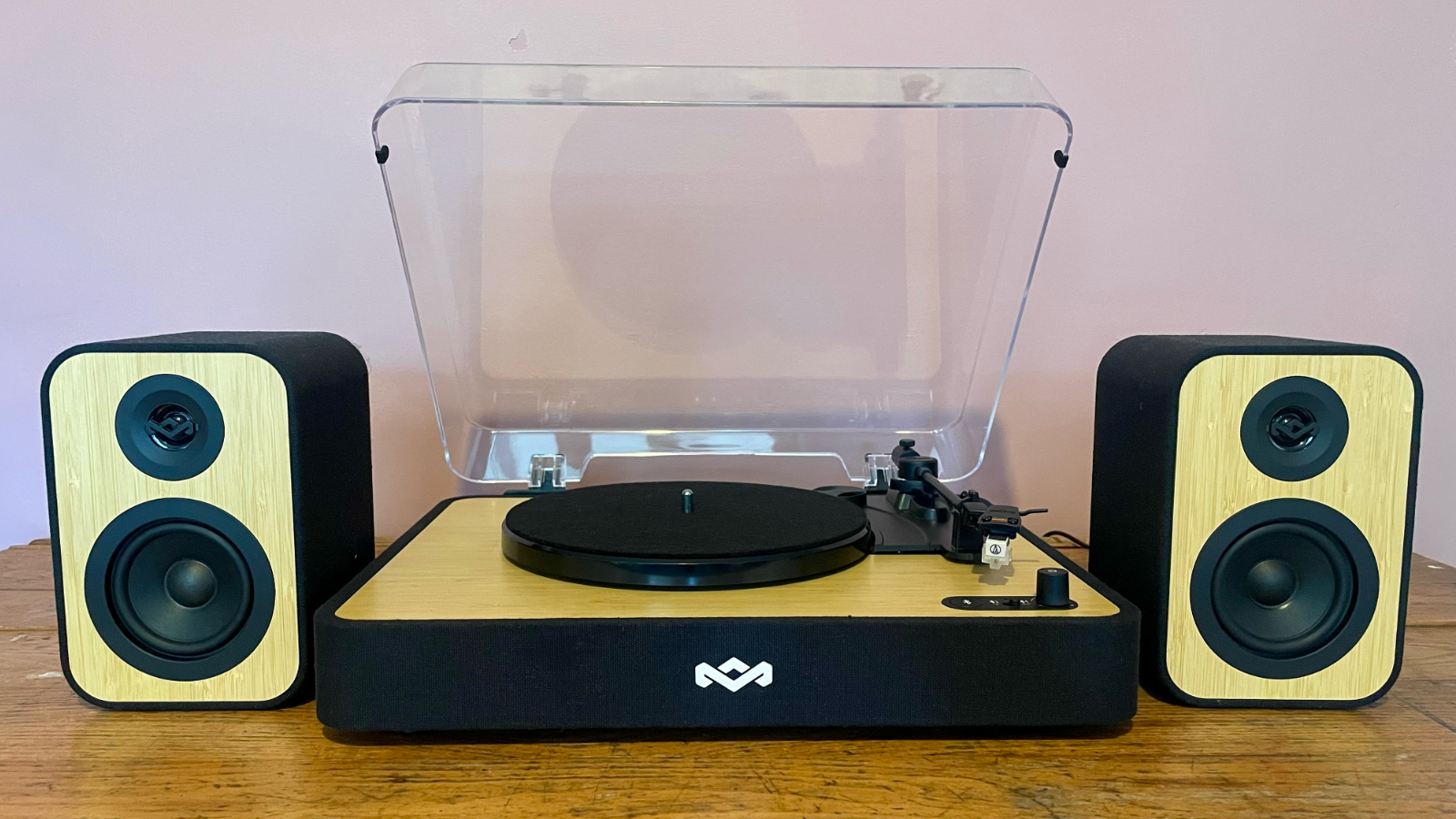
Specifications
Reasons to buy
Reasons to avoid
✅ You need something simple to use: As a plug-and-play deck that’s pre-calibrated out of the box, the Revolution makes it very easy to get into the groove.
✅ You like the option of wired or wireless: It's useful to have the flexibility of enjoying playback via wires or Bluetooth. Hook it up to House of Marley’s Uplift or Get Together speakers, or use your own.
❌ You're looking for the very best sound quality: The Revolution represents excellent value, because of the dynamic sound for the price. However, muddying mids and a hint of treble distortion mean the quality is far from perfect for audiophiles.
❌ You want a flexible setup: The Revolution is designed with simplicity and streamlining your vinyl experience in mind. You cannot adjust the tracking force or anti-skate, so if you prefer to tinker with your deck, you'll need to look elsewhere.
Look, it would be wrong to suggest that this plucky budget belt-driven deck can challenge the best: it cannot. But good starter deck that's easy to use and sounds decent without breaking the bank? The House of Marley Revolution is emphatically that, and with an added shot of sustainable style that makes it highly loveable – not to mention one of the best-value Bluetooth turntables we’ve tested.
The Revolution sets itself apart from your average budget turntable's plastic build – apart from the platter, which is plastic, but it works very well. In fact, there’s a reassuring weight to the build overall; the chosen (largely sustainable) materials lend it a quality feel which is impressive given the cost. The base is wrapped in recycled fabric and the distinctive bamboo plinth is a lovely thing to set down in your chosen listening spot.
It comes pre-calibrated out of the box, so setting it up is as simple as putting the felt mat on the platter and attaching the counterweight to the tonearm. You can push the Bluetooth button for wireless pairing, or wire it up the more traditional way; it’s all outrageously straightforward. Naturally, this plug-and-play approach won’t suit purists, but it makes for a stress-free feeling that’s ideal for first-timers.
The Revolution isn’t the kind of deck that needs to be paired with high-end separates from hi-fi's biggest names. For he picky listener, there’s also much to pick at – but bear in mind the price. Mids can come of a little muddy and you could hear some distortion in the treble on occasion. That said, the sound is more than zealous enough for casual listening, with a refreshing weight to the low end especially.
Read our full House of Marley Revolution review
The best fully automatic pick
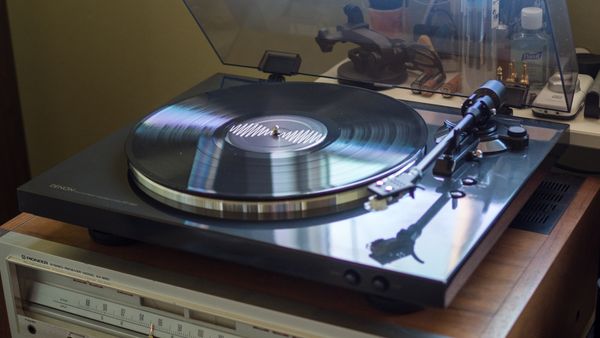
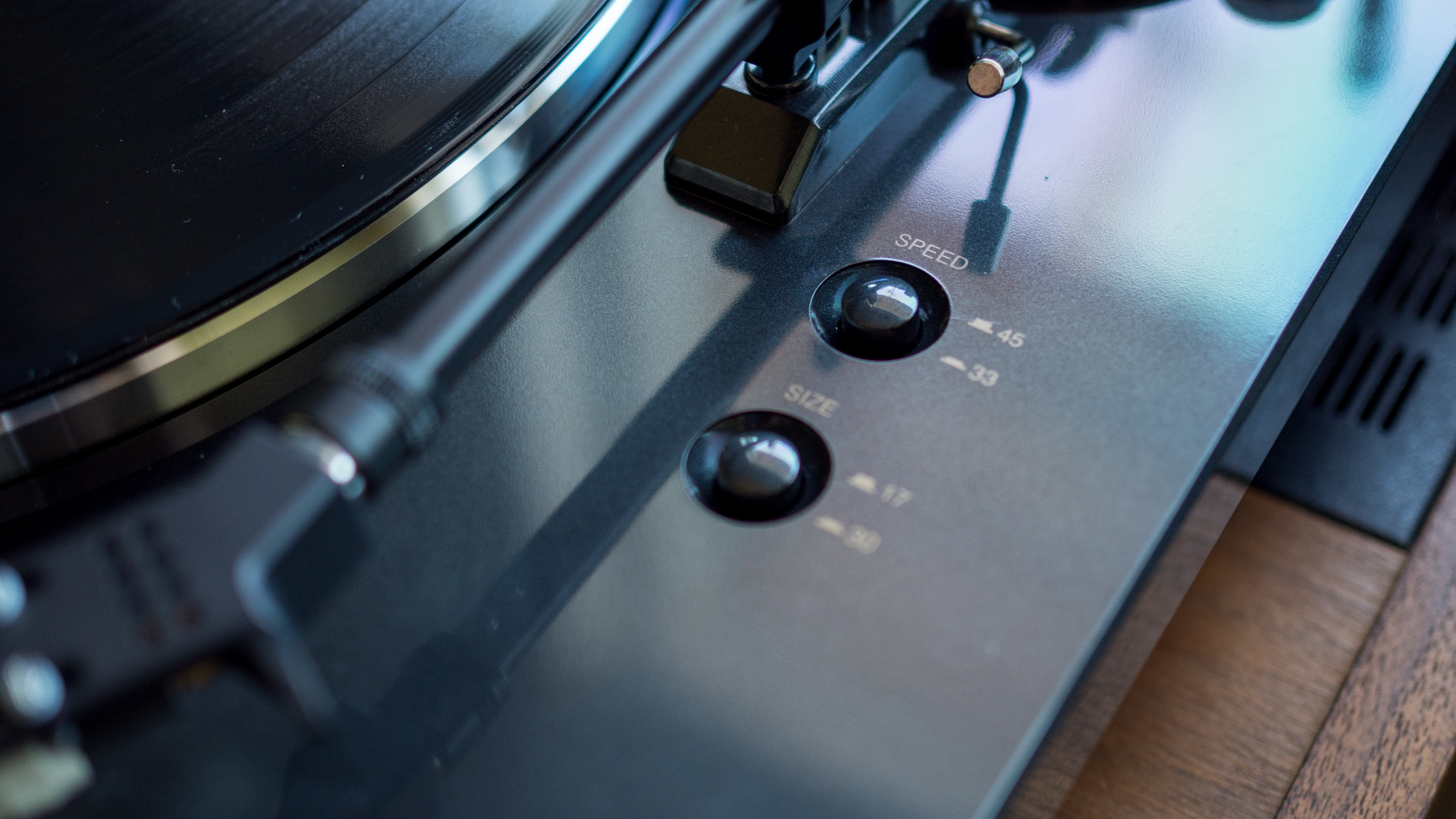
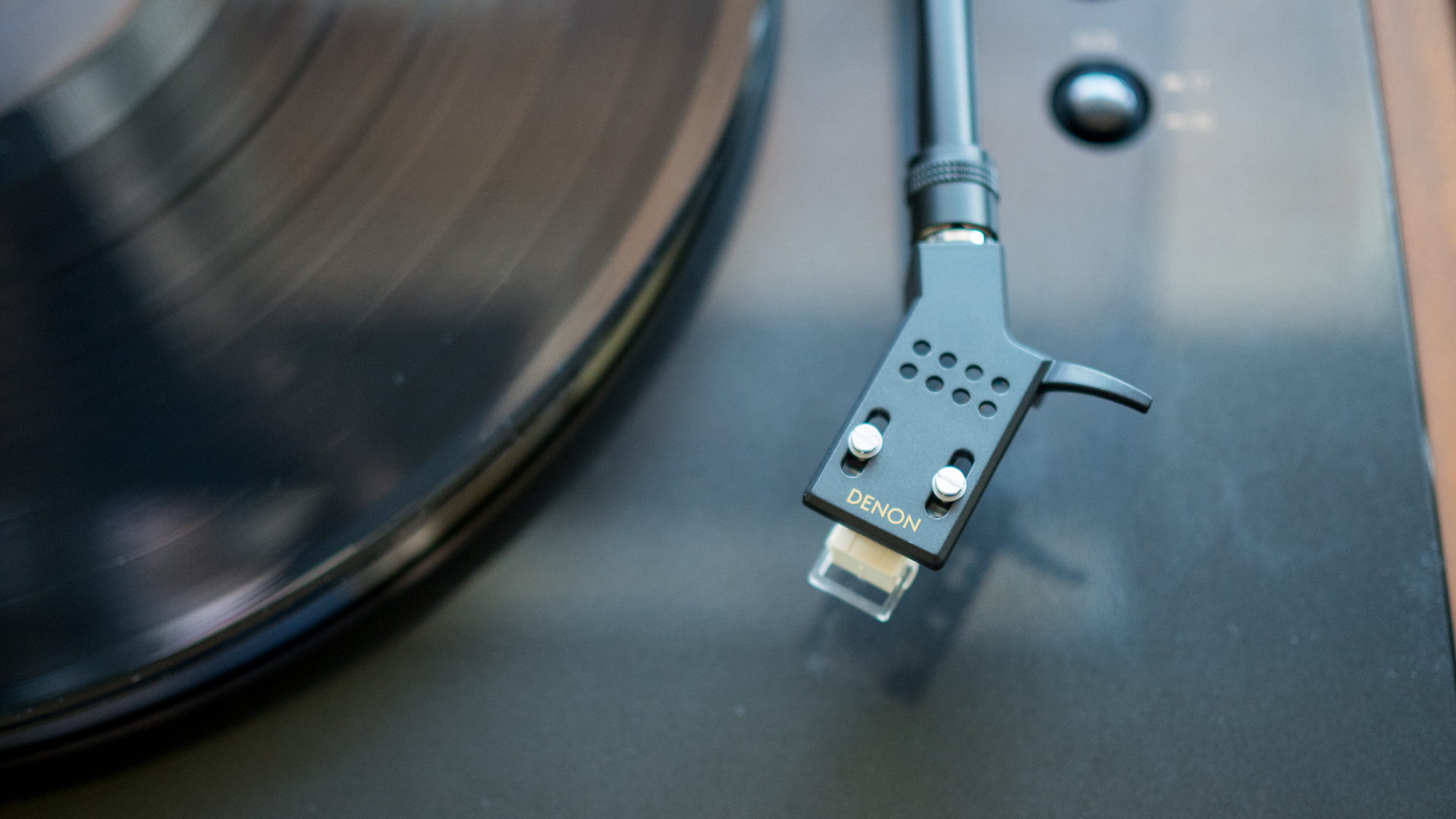

Specifications
Reasons to buy
Reasons to avoid
✅ You want a hands-off turntable: Being fully automatic means that it can start and stop spinning plates at the push of a button.
✅ Your new to vinyl: If you want to learn about queueing and digitizing your records (and aren't worried about premature needle wear), this is a great shout
❌ You want a premium looking design: The DP-300F is borderline generic and we found the button felt a little cheap during our testing.
❌ You want to digitize your records: If it matters to you, it would be a bit of shame to not be able to download your favorite vinyl.
The Denon DP-300F is a gorgeous turntable that sounds just as good as it looks. As we wrote in our review: "If all you want is to listen to your records and not have to worry about cueing, premature needle wear or digitizing your records, the Denon DP-300F should be at the top of your list."
The DP-300F's features get you listening to your vinyl records as soon as possible, instead of having to fiddle with complicated counter-weights, tonearm setups and manual cueing.
Granted, the included DSN-85 cartridge isn't winning any awards for precision and exacting accuracy, but nevertheless it manages to make your music sound airy and reasonably detailed, delivering good performance for the price. You’ll need to spend a lot more cash to hear much more detail.
While the DP-300F lacks the USB outputs of some of the best turntables listed here, it’s still a great starting turntable for anyone who doesn’t want to manually cue their albums or who has a habit of falling asleep while listening to music. The Denon’s automatic start/stop feature means your needle won’t be worn down at the end of the record as the arm immediately returns when an album is done.
Read our full Denon DP-300F review
Best deck for beginner enthusiasts
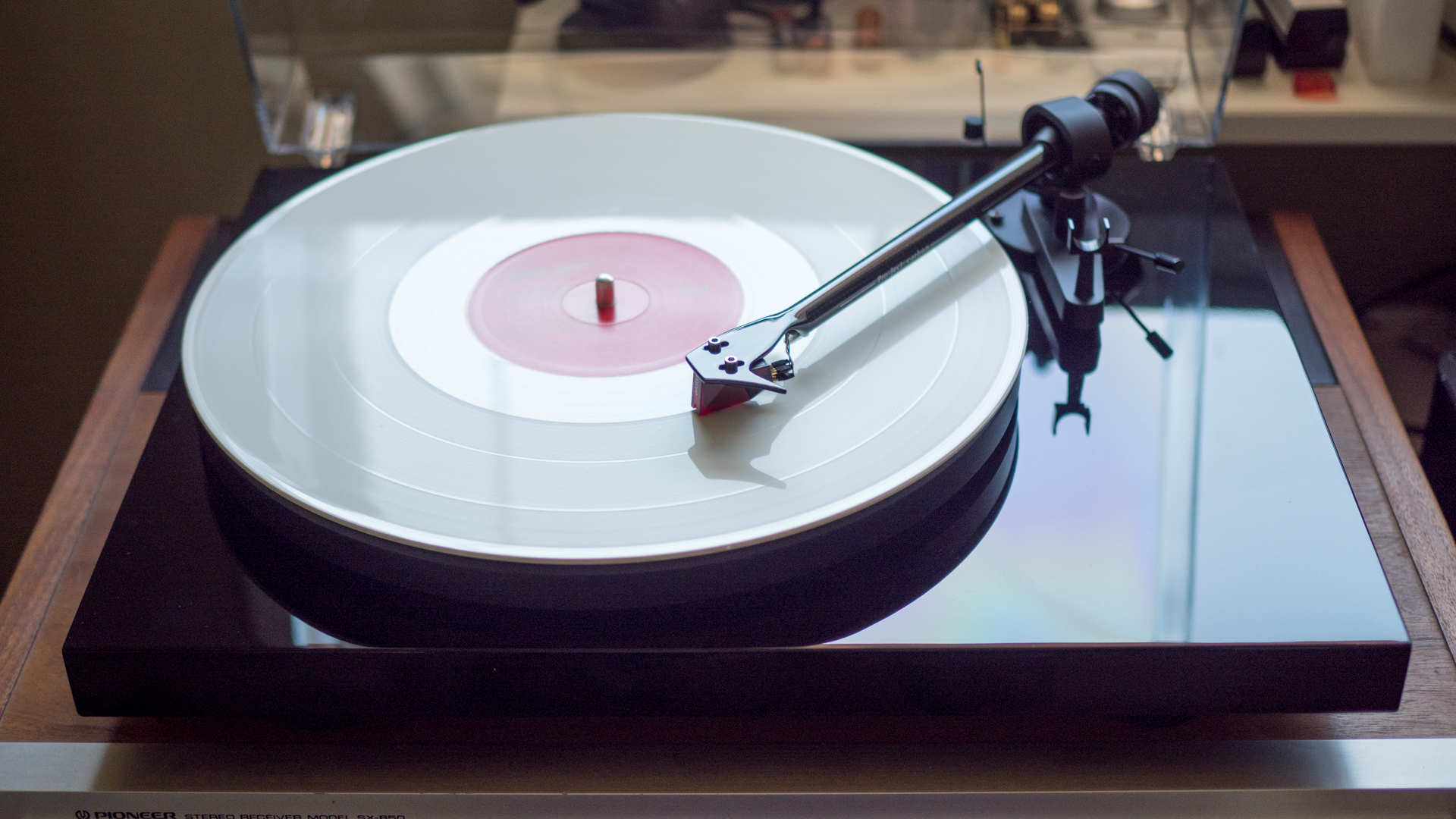
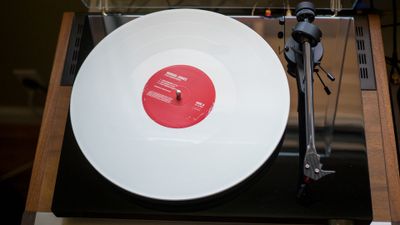
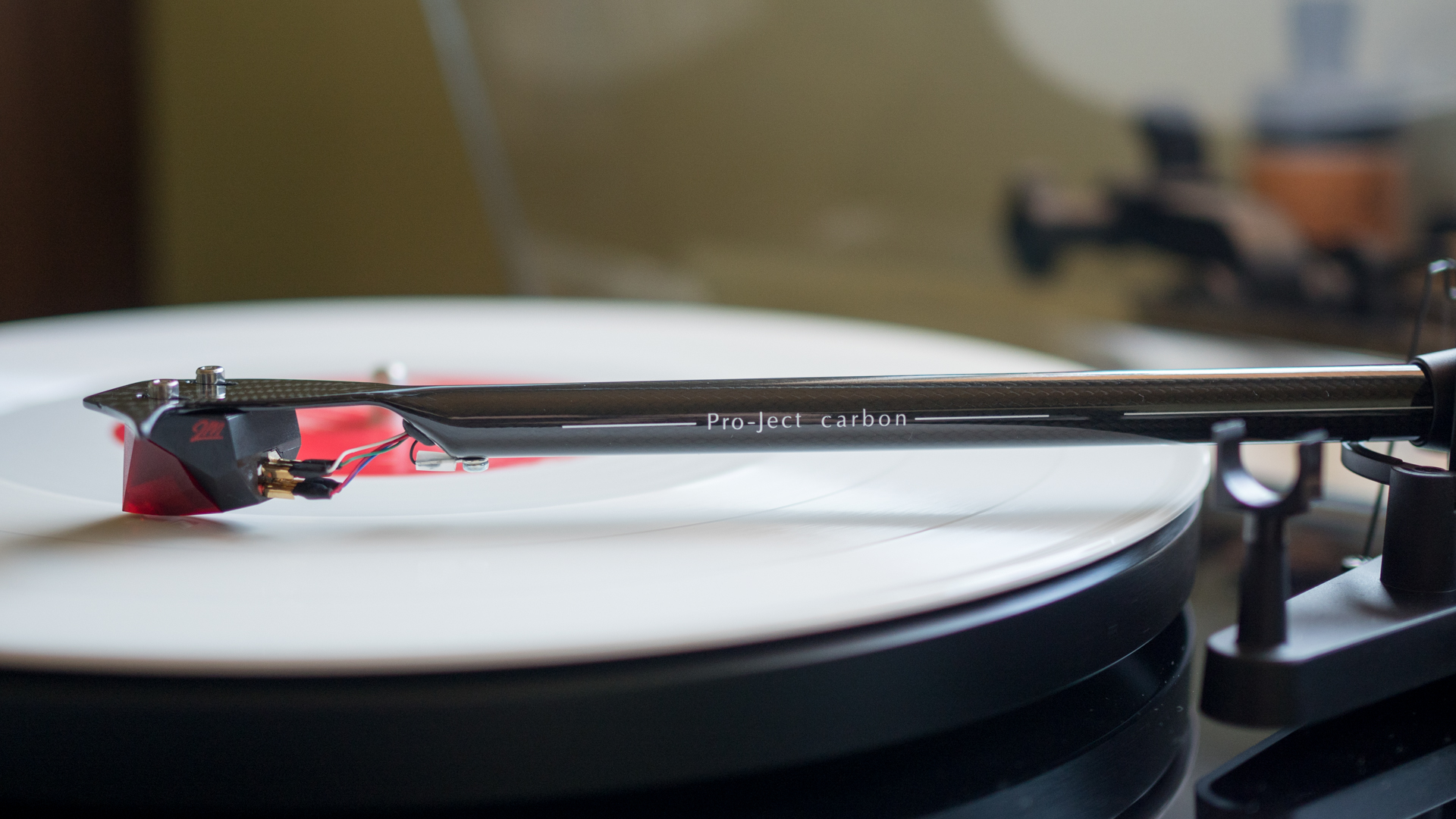
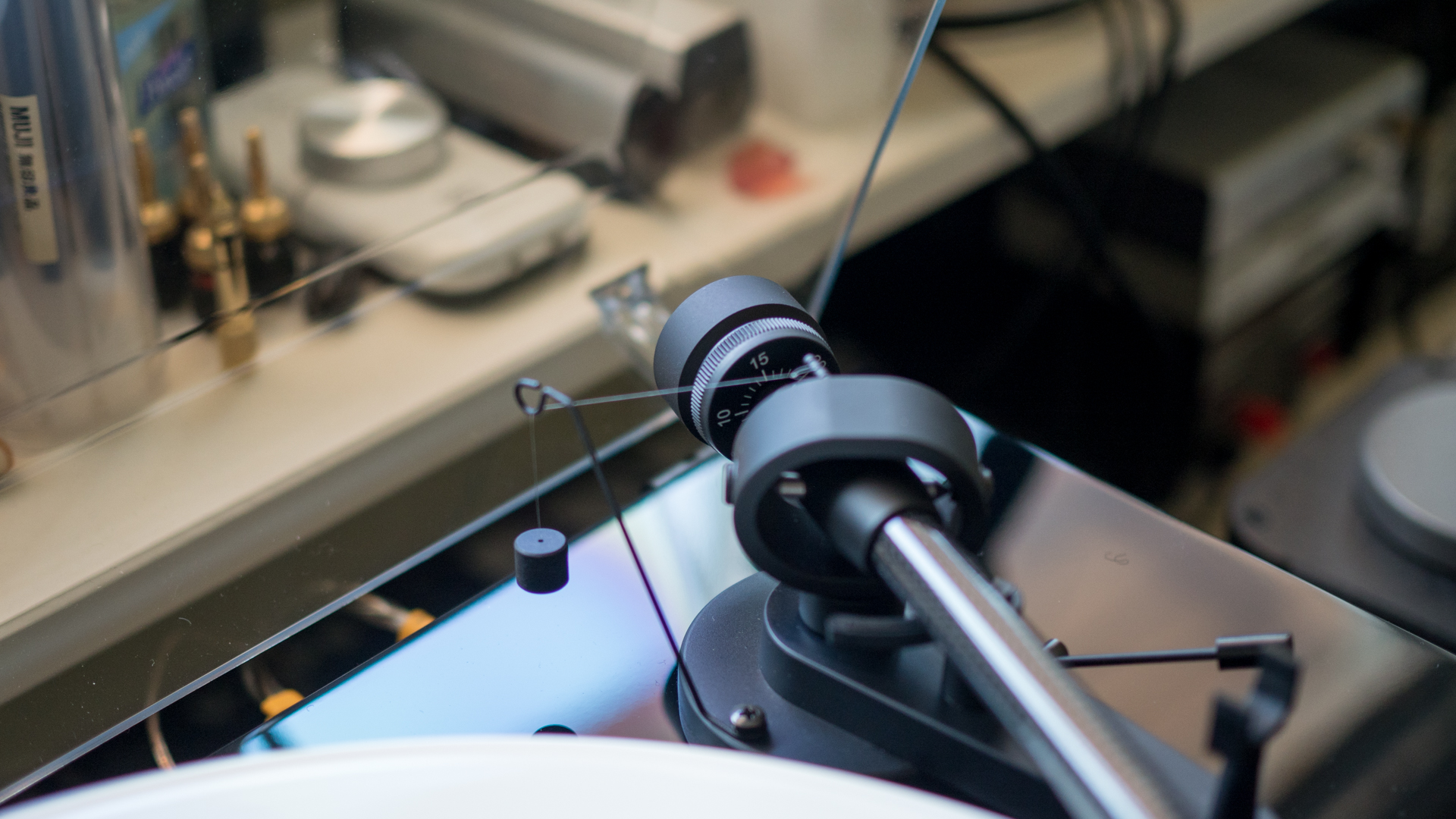
Specifications
Reasons to buy
Reasons to avoid
✅ You want good dampening against vibrations: Thanks to medium density fibreboard (MDF) and a rubber suspension system, you won't hear your music skip a beat from footsteps.
✅ You're after an easy setup: The Debut Carbon is simple and straightforward for beginners to set up, with easy to follow instructions.
❌ You don't want to manually change the speed: You'll have to move the belt between the upper and lower pulley if you want to do this, which is a slight annoyance.
❌ You want automated features: The Debut Carbon lacks conveniences with no auto starting and stopping, anti-skate dial or built-in phono preamp.
The Pro-Ject Debut Carbon is still one of the best entry-level hi-fi turntables you can buy, even though it has been usurped by the more recent model at the top of this list. While those looking to test the warm analog waters (rather than invest in vinyl for keeps) may be perturbed by the relatively high price here, we've tested it and we can tell you that it's actually an incredible bargain, for those who want it.
For the money, you get a very well made deck that’s damped properly and delivers fantastic sound quality. It also has a carbon fiber tonearm that's lightweight and stiff, a component usually reserved for turntables costing a lot more.
As we said in our review: "The Pro-Ject Debut Carbon is well built, beautifully designed and just sounds awesome. It’s not the most resolving turntable but you wouldn’t expect it to be at this price range. When looking at the Pro-Ject Debut Carbon as a package, it’s hard to think of another turntable in this price range that can top it."
The Pro-Ject Debut Carbon is one for the budding enthusiast committed to record collecting. It doesn’t feature niceties such as an auto-returning tonearm, buttons for changing speed or an included phono preamp and newbies may be further disappointed by the manual changing of the belt position to switch speeds, along with its lack of inbuilt preamp. For others, this will be hi-fi heaven.
Hot tip: if you like the Pro-Ject Debut range but want a subtler look, check out the Crosley C10, which features a chic wooden-look plinth combined with a Pro-Ject tonearm.
Read our full Pro-Ject Debut Carbon review
The best hi fi turntable for tinkerers
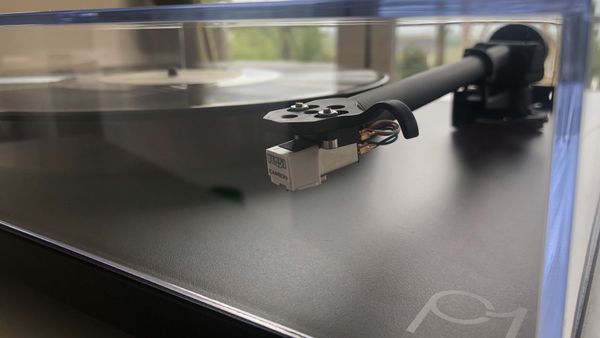
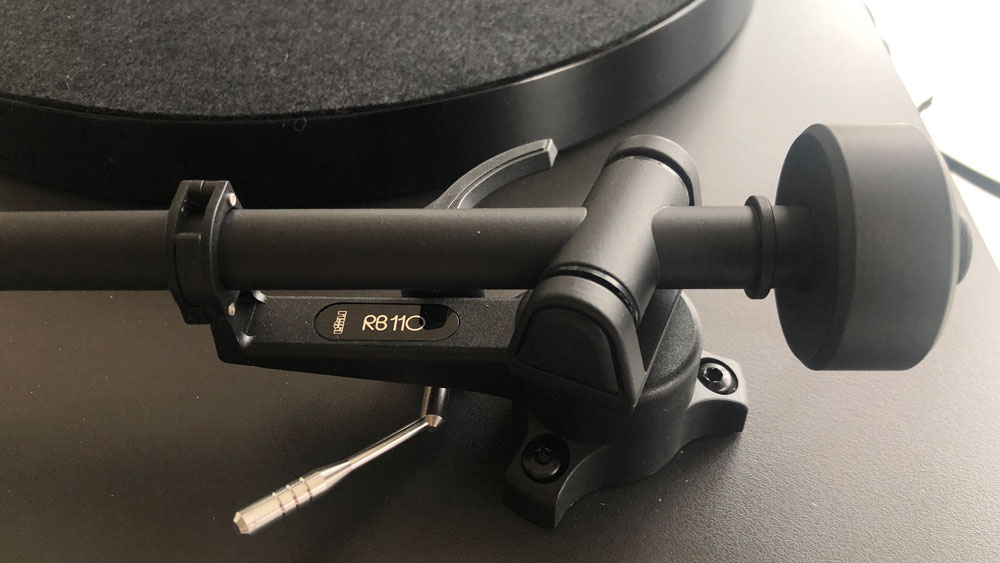
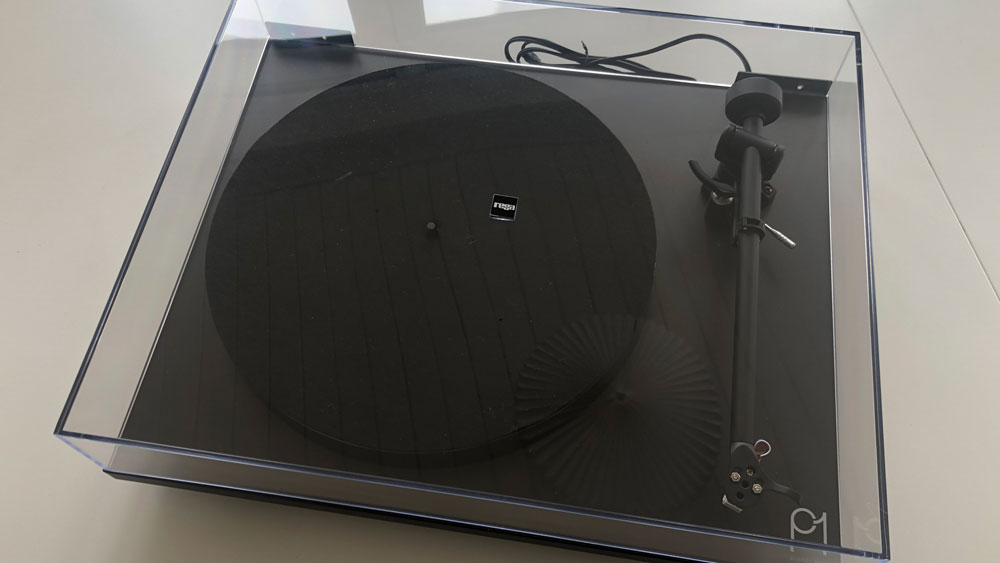
Specifications
Reasons to buy
Reasons to avoid
✅ You admire efficient engineering: It’s not luxurious (because Regas aren't), but the Planar PL1 is properly specified and built.
✅ You like to get ‘hands on’: Change the speed from 33.3 to 45rpm; see what we mean.
❌ You want some modernity: Some turntables have USB outputs and wireless connectivity. Not this one.
❌ You don’t have a proper shelf to put it on: Those feet will suppress some vibration, but they’re not miracle-workers. It needs a sturdy rack to call home.
There’s a lot of debate over whether the Rega Planar PL1 or the Pro-Ject Debut Carbon is the best entry-level hi-fi turntable. It’s a close match and although we've tested both, we don't think there's a clear winner. Each one provides an excellent starting place for an audiophile on a budget.
While the Rega may forgeo the fancy carbon tonearm of the Pro-Ject, the PL1 still sounds excellent and is well damped thanks to its phenolic resin platter. And for fledgling vinyl collectors the Rega is still an easy setup, though you’ll have to supply your own phono preamp. Want to embark on a life of tonearm adjustment, cartridge upgrades and maybe even vinyl subscription services? This is the deck for you.
In our testing, this record player sounded so good it seemed churlish to fault it. Vocals are revealing and you perceive the subtle textures of instruments within orchestral soundstages. The included Rega Carbon cartridge isn’t anything particularly special, but it's a very decent match for the deck. Given the choice between the Planar PL1 and the Debut Carbon we'd say that you can’t go wrong with either – and if that sounds like a cop-out, you'll simply have to read each review to make your choice.
Read our full Rega Planar PL1 review
The best for going pro
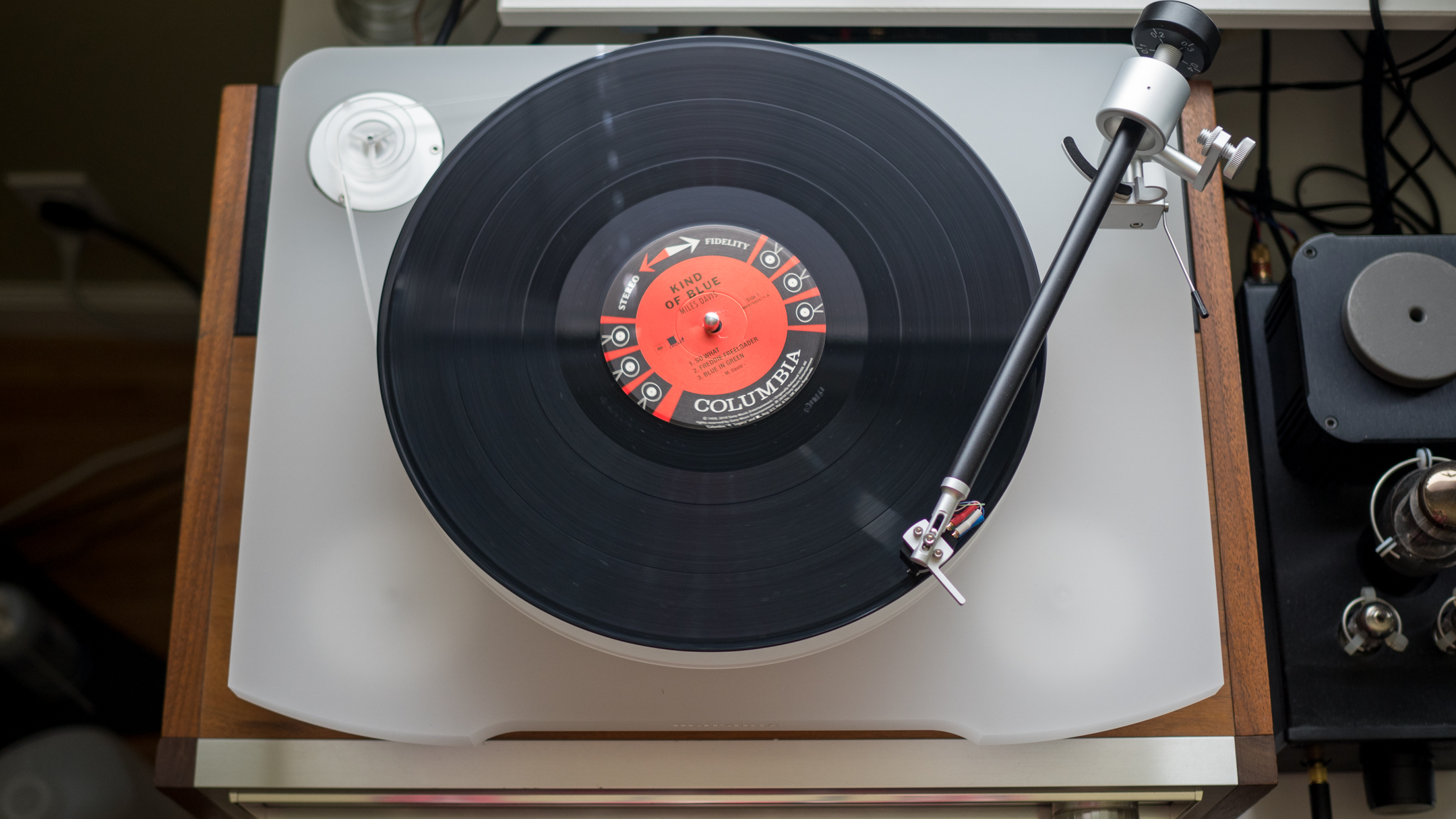
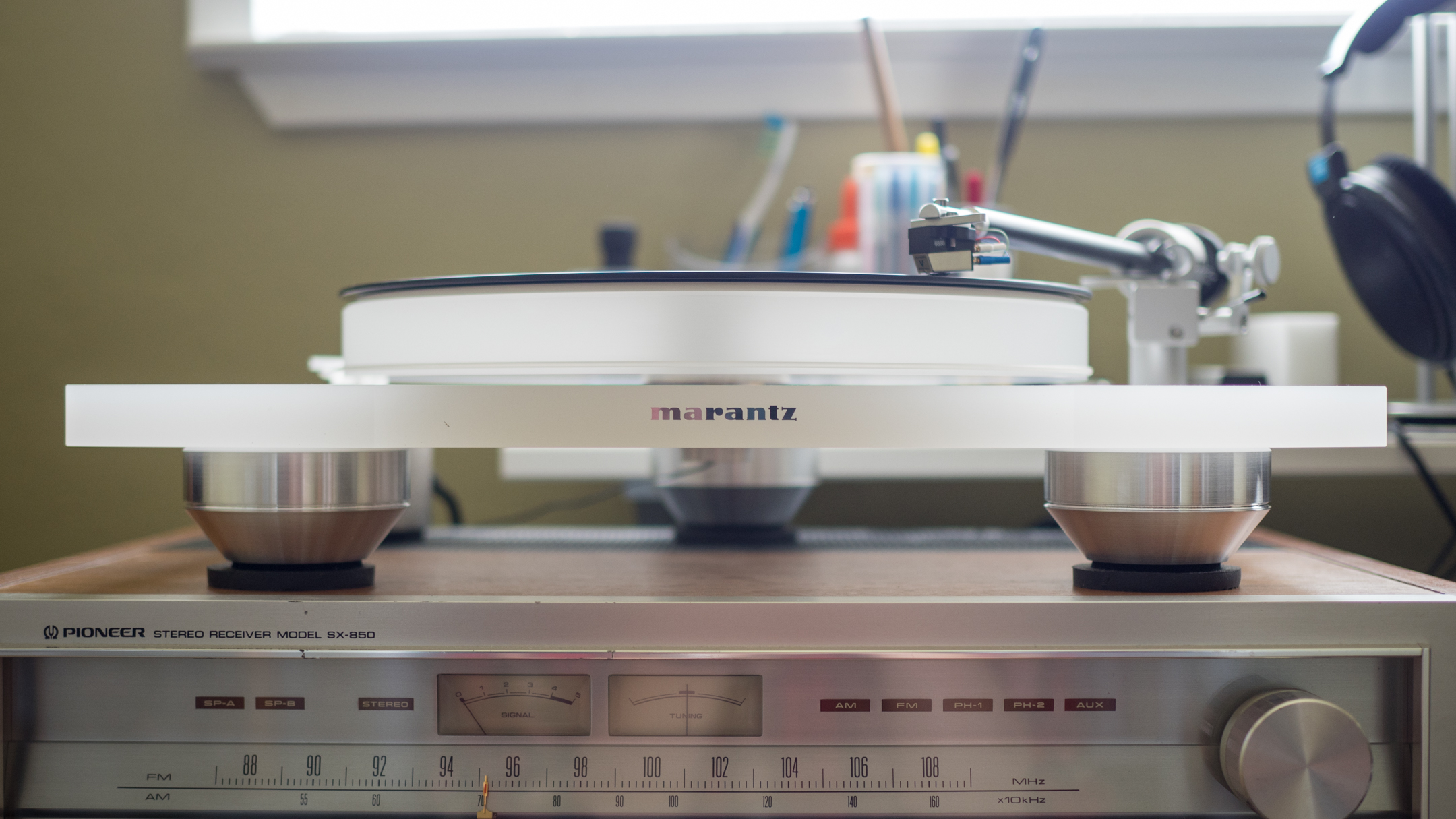
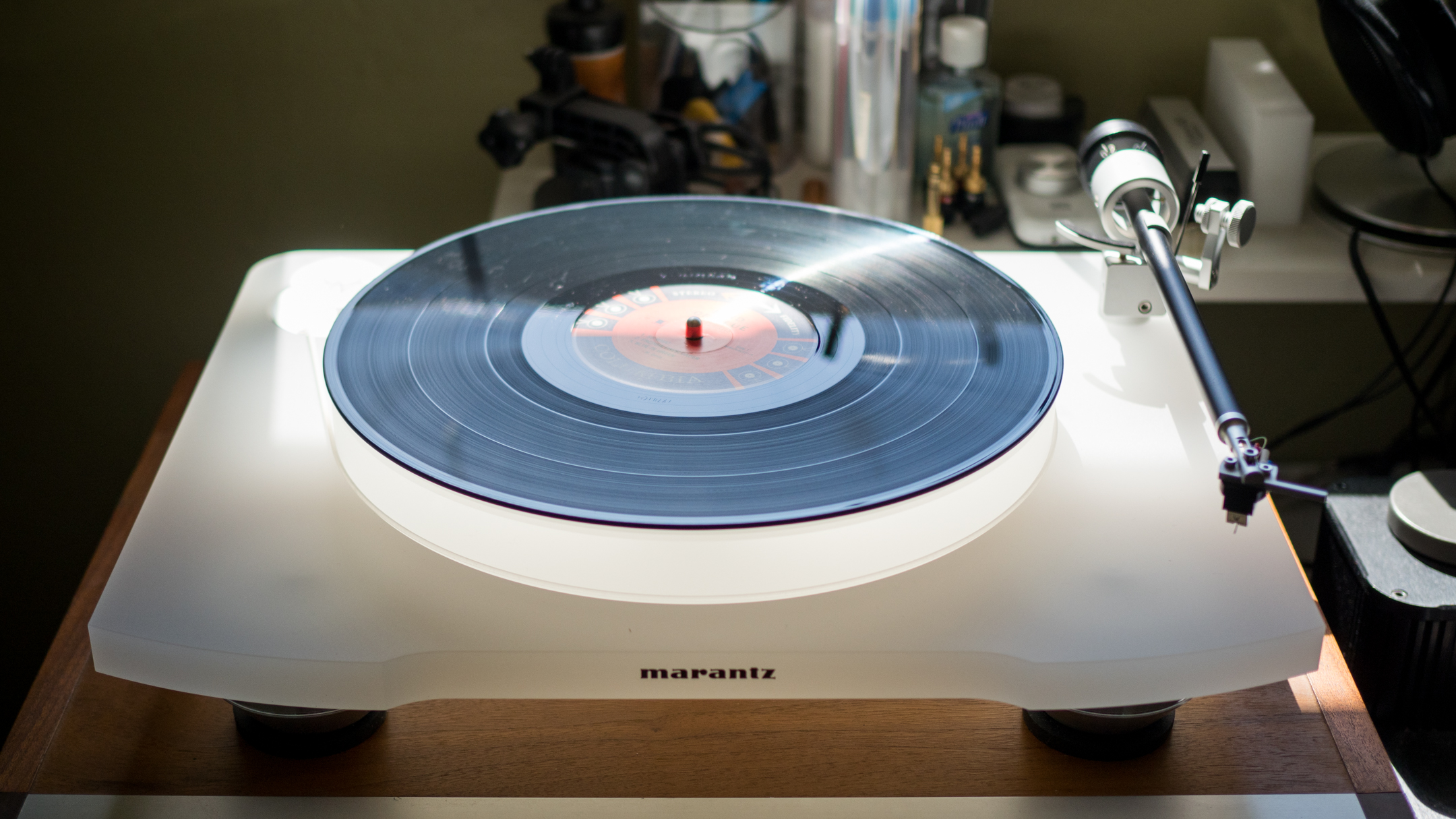
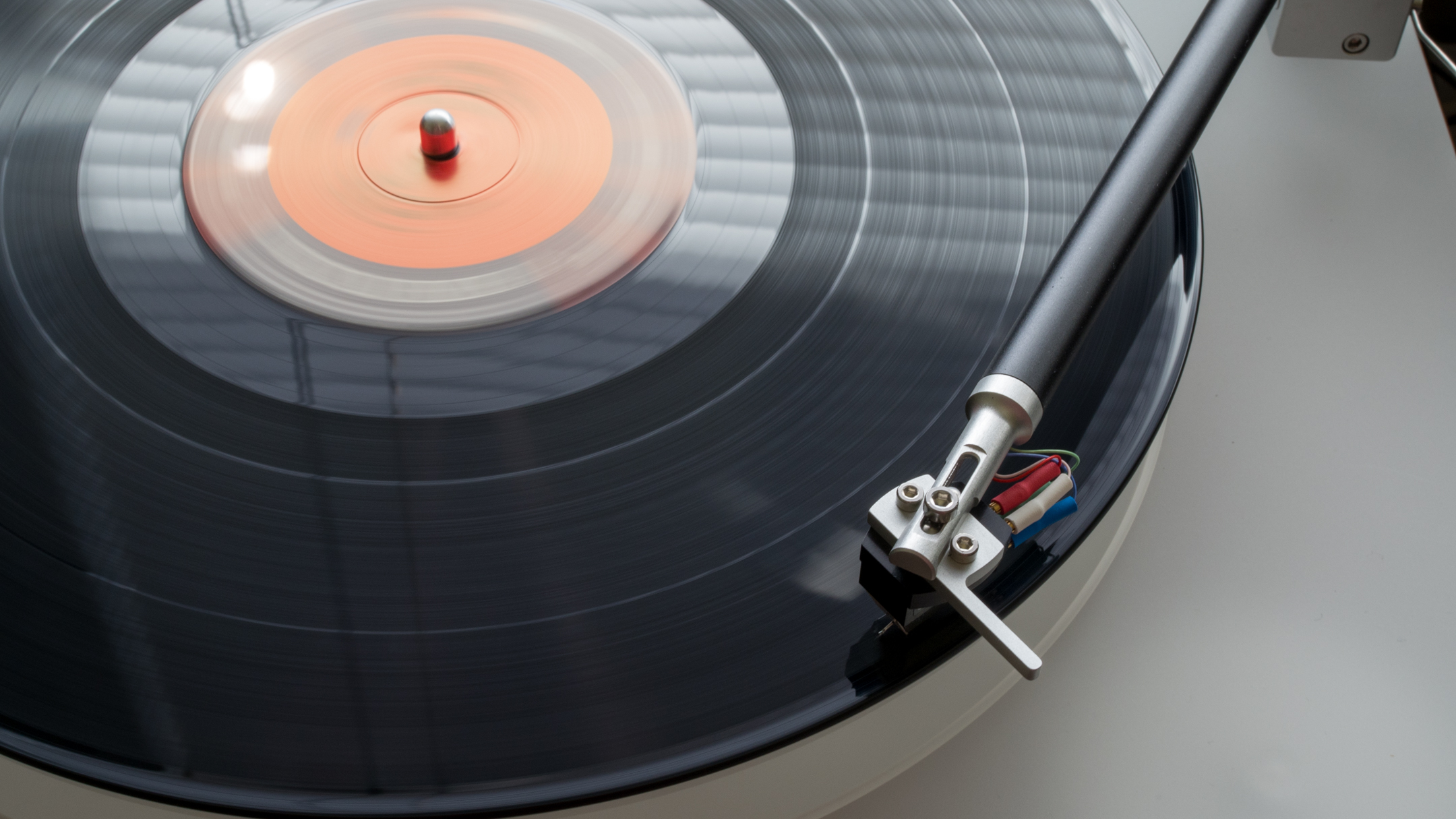
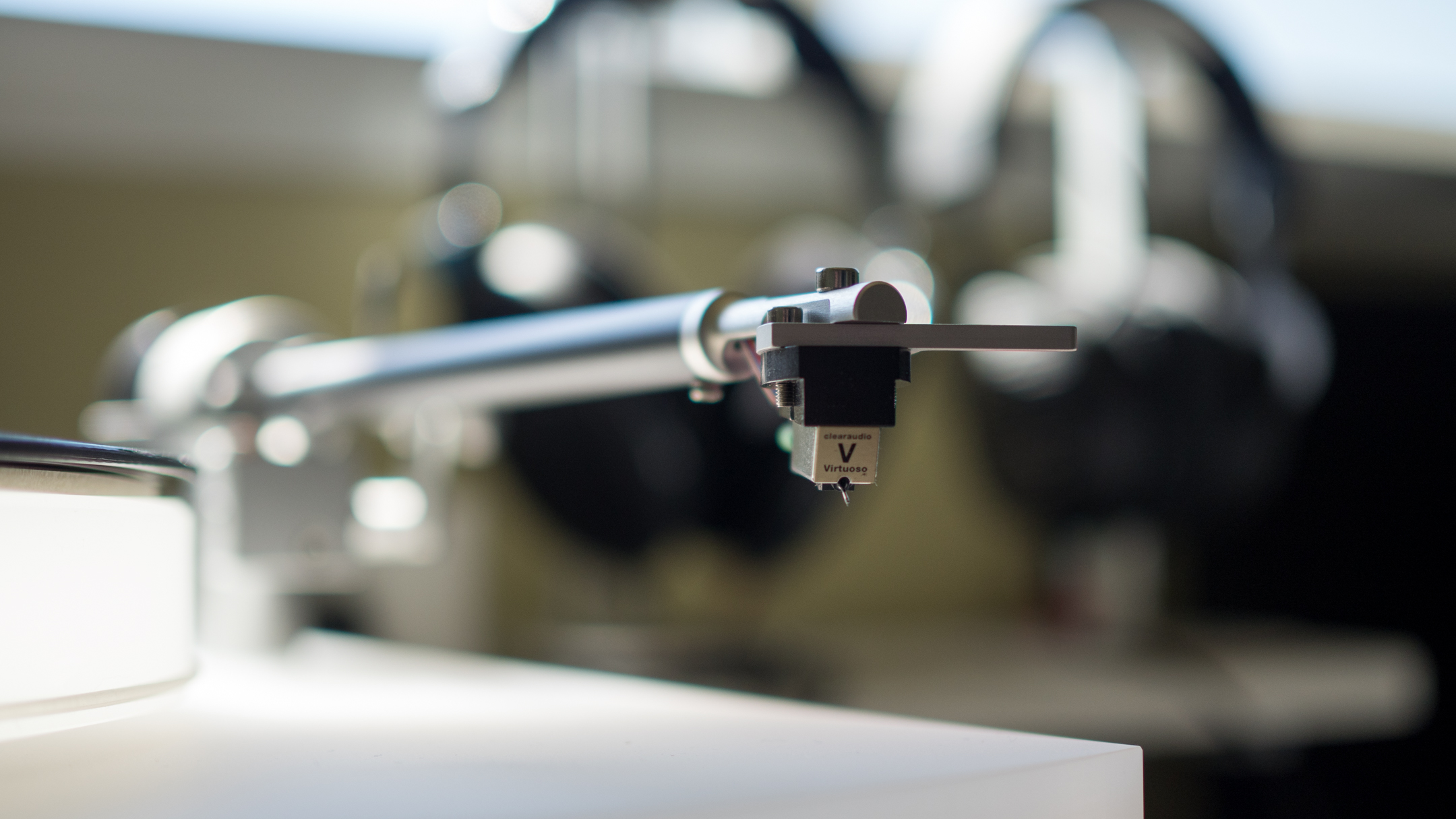
Specifications
Reasons to buy
Reasons to avoid
✅ You want the most incredible range and clarity: To th keen ear, the Marantz TT-15S1 is nautical miles above entry-level hi-fi turntables.
✅ You want to get the best value at an enthusiast level: It's not cheap, but considering its stunning design and premium audio performance, it's a steal.
❌ You want bass: Because the TT-15S1 presents such an exceptionally neutral presentation, bass lacks clout and impact, despite being deep and textured.
❌ You tend to play unmastered records: If a record is poorly mixed, you're going to hear every single bit of what isn't happening.
The Marantz TT-15S1 is relatively expensive, but it delivers excellent performance for the price – and considering the Clearaudio Virtuoso cartridge is included (which is around $1,000 when purchased separately) it's actually a great deal. You also get a premium tonearm and a winsome turntable. Yes, the price is definitely an investment, but it is not an unreasonable one.
What does the Marantz TT-15S1 get you over the competition? Attention to detail. During our testing, we were pleasantly surprised to find that just about every part of this turntable has been tweaked and optimised to be the best it possibly can be, for the price. The fit and finish are excellent and it's very pleasant to handle.
It is not a great option for vinyl newcomers; it requires more knowledge to set up properly than the entry-level turntables on this list (try the Audio-Technica model in at number two of this guide instead). But if you’re ready to take your record collecting and listening to the next level, the Marantz TT-15S1 is the perfect companion. In our review, we surmised: "Taken as a whole, the Marantz offers budding audiophiles the chance to chase higher fidelity without having to buy a turntable that costs as much as a car."
Read our full Marantz TT-15S1 review
The best for durability

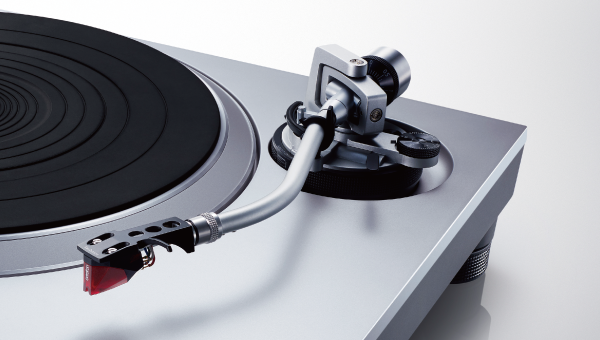
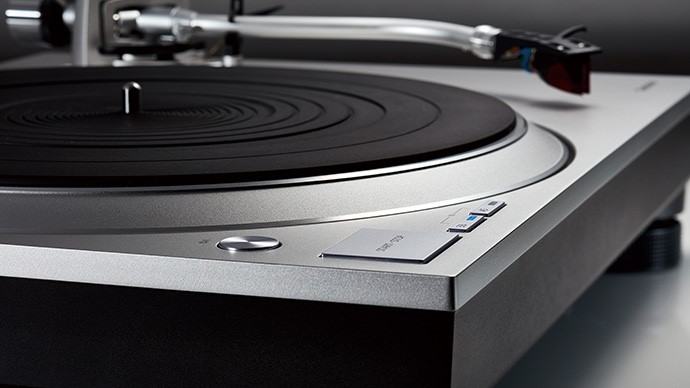
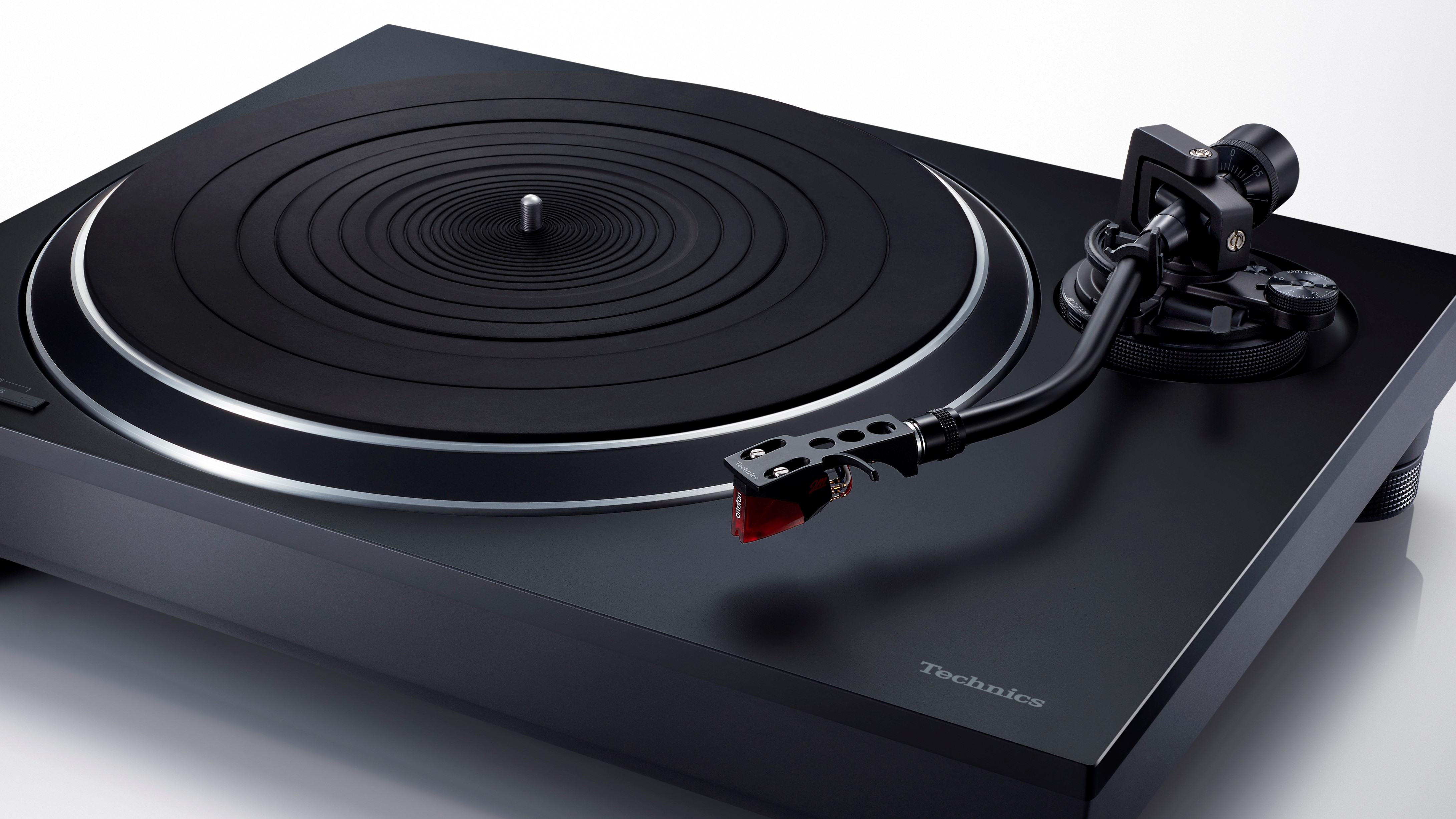
Specifications
Reasons to buy
Reasons to avoid
✅ You want "bomb-proof" build quality: With a hefty aluminum top-plate and platter, the SL-1500C could survive a medium-sized detention.
✅ You want an expansive soundstage: Recordings are given plenty of elbow-room with loads of depth and height, without lacking unity.
❌ You want the best value turntable: The SL-1500C is marginally expensive compared to rivals.
❌ You're looking for a subtle design: Technics has stuck with its DJ deck look and feel with the SL-1500C.
Say hello to this budget-friendly Technics SL. This SL-1500C will only set you back £899 / $999 / AU$2,499 (for reference, look to the Technics SL-1210g to see how much Technics decks usually go for). It may still not be the most affordable turntable on the market, but it's the first reborn Technics to really remind us of why we, and so many DJs, fell in love with the brand in the first place.
User-friendly and as painless as possible, the SL-1500C stands on four hefty rubberized feet with a lot of articulation. A switchable phono stage proves useful along with a switchable auto-stop feature – we've gone into great detail about these in our extensive review.
Sound-staging is really impressive here, with recordings given plenty of elbow room for individual instruments to make their presence felt at all times. There’s depth and height to the Technics’ stage as well as width, and the sound is consistently compelling.
In our review, we wrote: "This isn’t the most out-and-out accomplished turntable you can buy in purely sonic terms, but it’s not far off – and it’s more robustly made, better specified and has greater cachet than any price-comparable alternative. "
Read our full Technics SL-1500C review
The best all in one record player
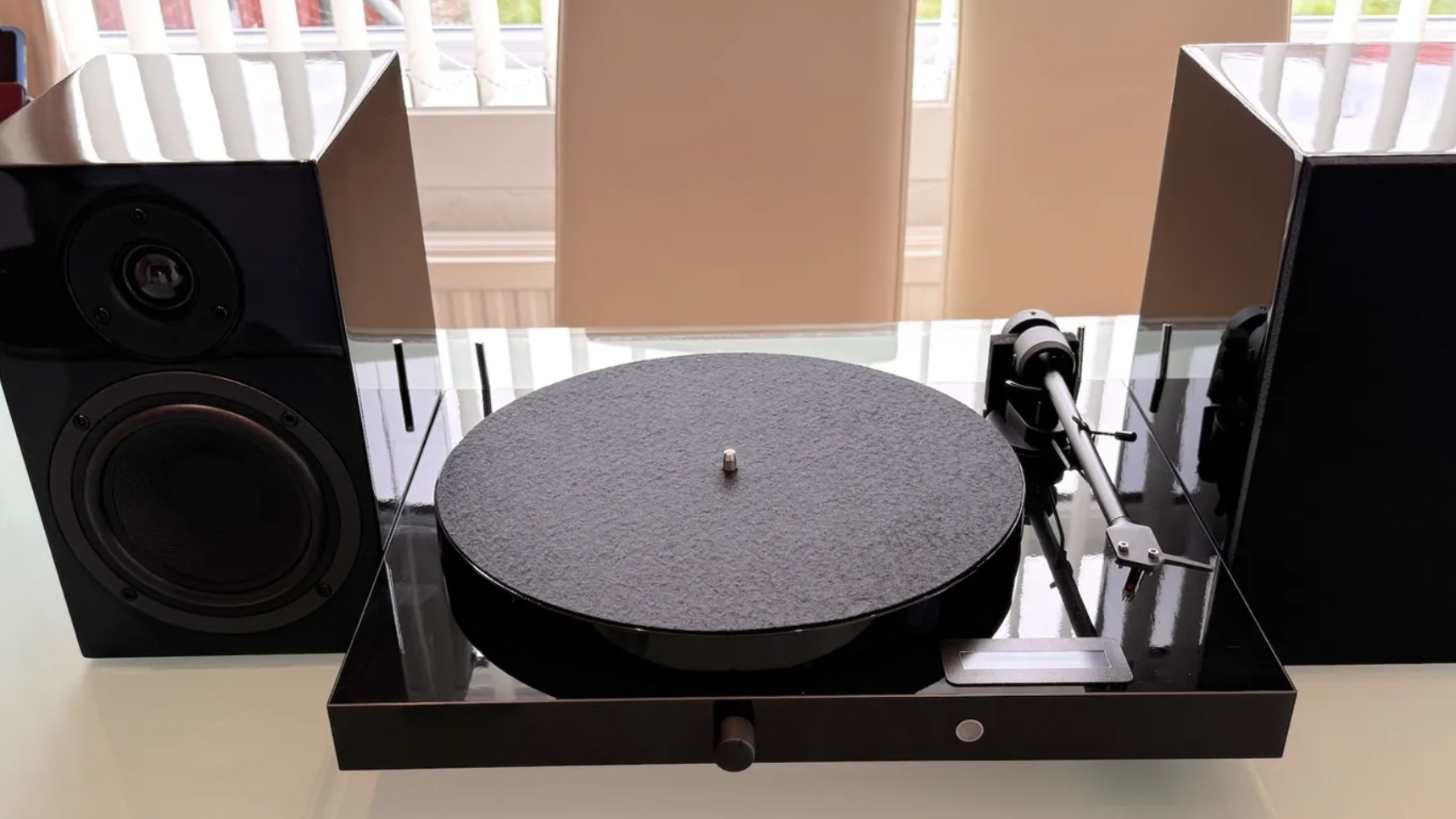
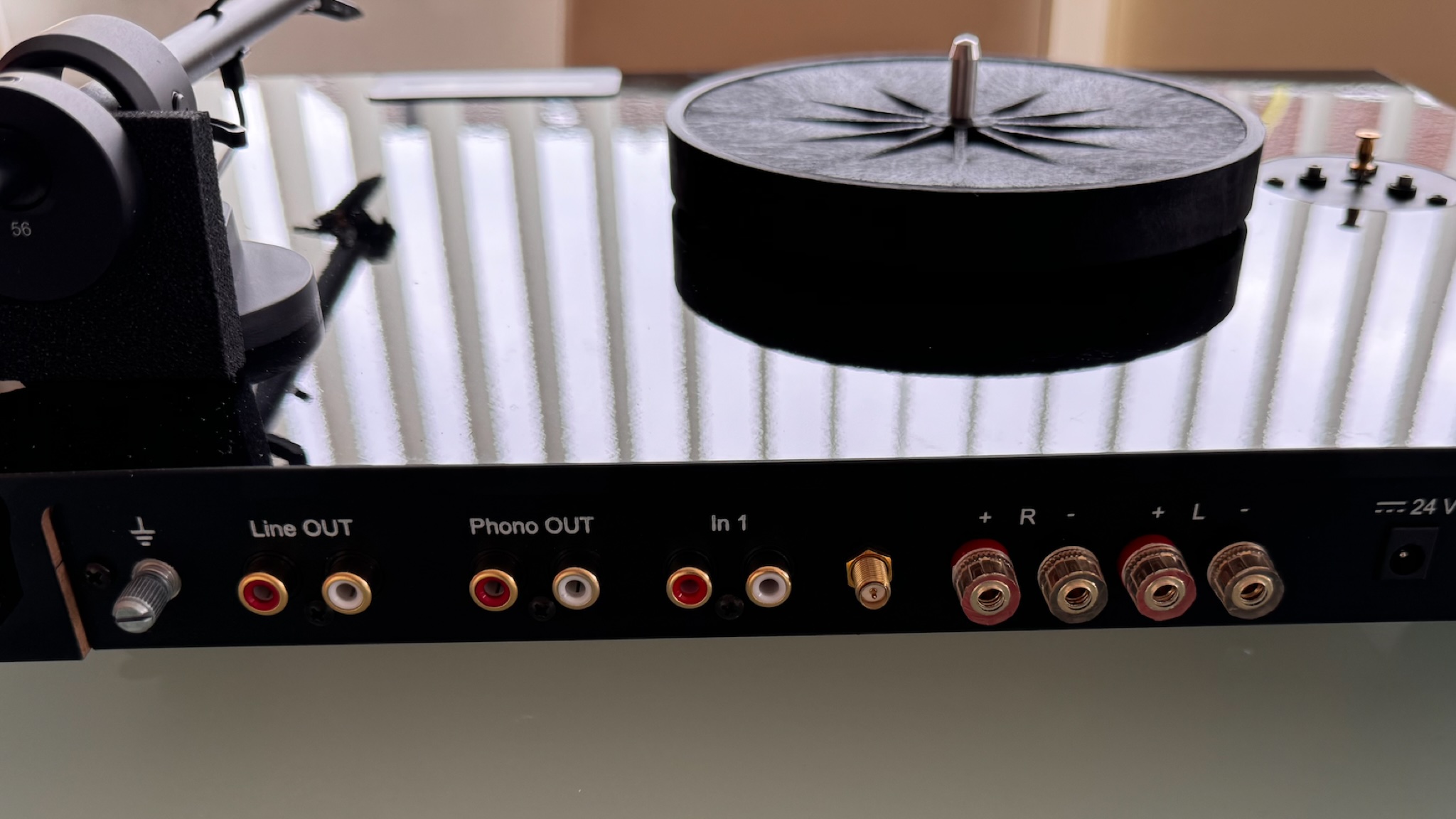
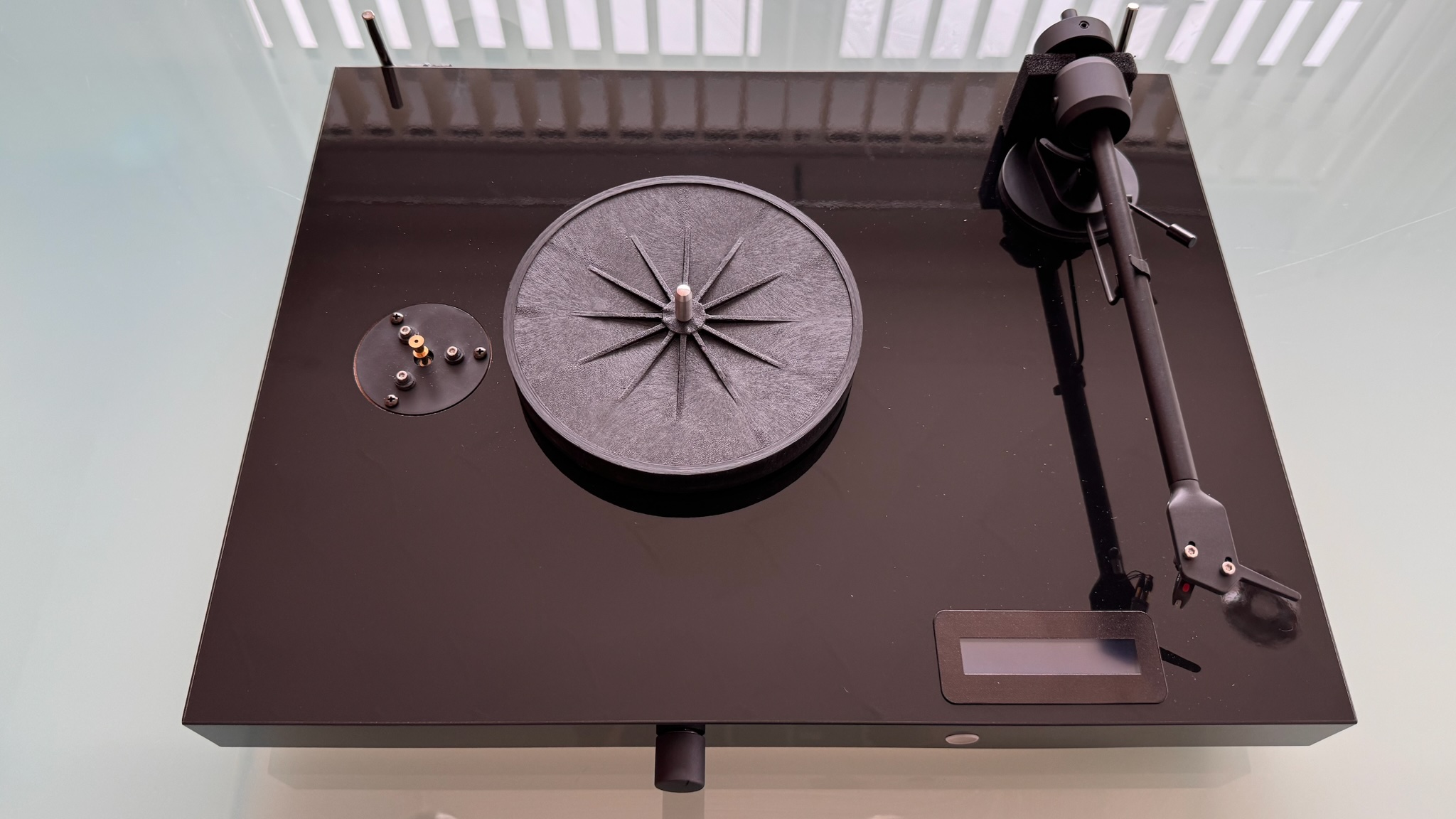
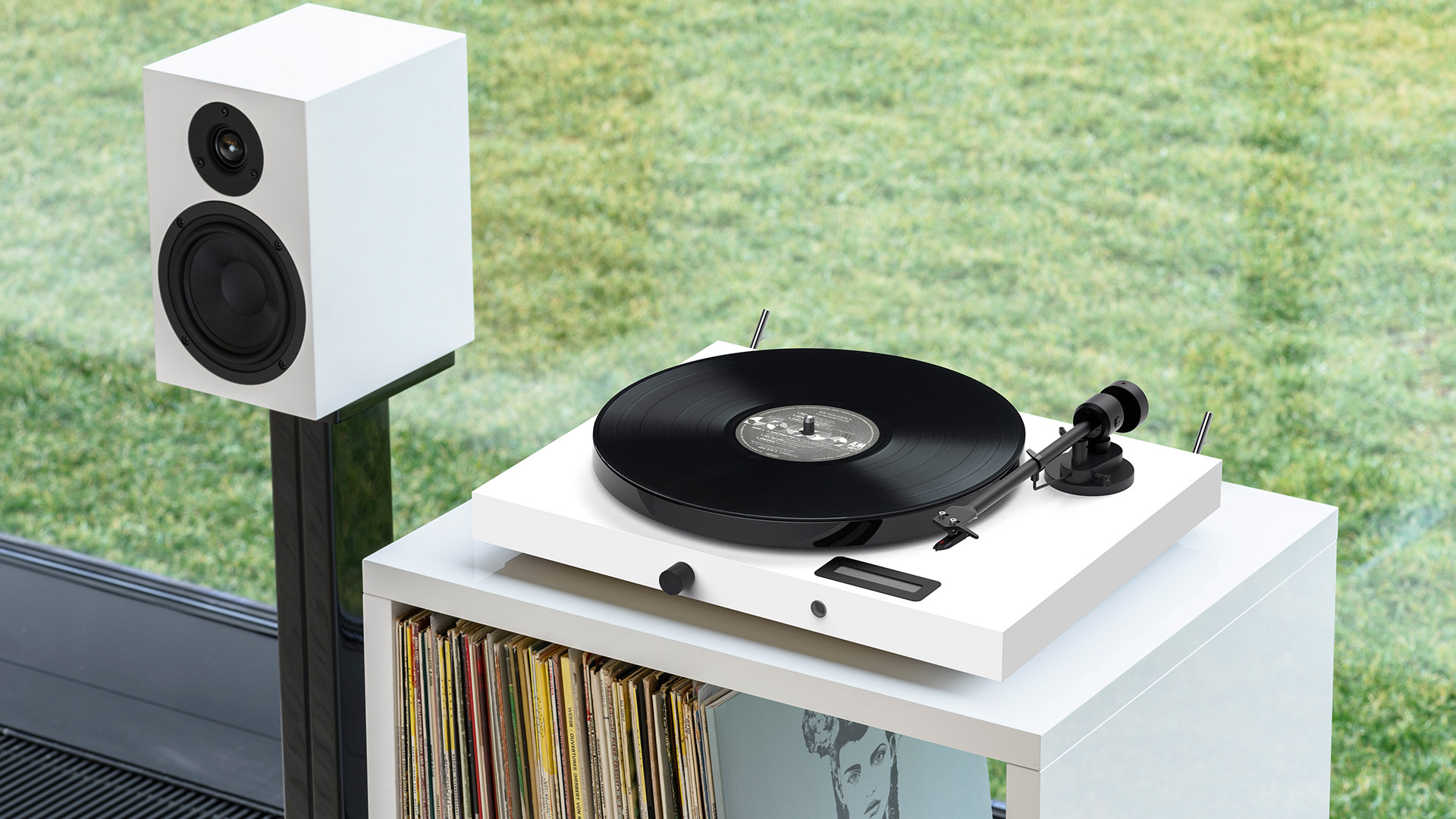
Specifications
Reasons to buy
Reasons to avoid
✅ You want an all-in-one device: Everything you need is here, except for speakers (and Pro-Ject does a well-priced bundle with them, if you like).
✅ You want a stylish pick: Pro-Ject's turntables always look great, even in this chunkier size.
❌ You already have a good amp: In this case, we recommend you opt for the regular E1 instead.
❌ You might upgrade: If you've already got your eyes on future upgrades, go for separates instead.
When most people want to buy their first turntable, they want an all-in-one option that's easy to get up and running, and doesn't require lots of additional separates. The problem is that all-in-one devices tend to cut corners, they're cheaper, and the audio doesn't match up to rivals. But the Pro-Ject Juke Box E1 is different. It's not cheaply made, it sounds great and it's got everything you need. It's built for convenience while maintaining quality, and that's why it's a great choice for anyone who's starting out with vinyl. And while it isn't super-cheap, it's very reasonably priced.
To pack everything in one, the Pro-Ject Juke Box E1 takes the familiar and stylist Pro-Ject Primary E1 turntable from the brand but then adds a built-in phono stage, amplification and Bluetooth receiver. All you need to add is speakers, though it's worth mentioning that you can buy a bundle from Pro-Ject that includes them for only $200/£200 more.
The Pro-Ject Juke Box E1 gave us an enjoyable listening during testing. In our review we even commented: "It's the sort of turntable that makes you smile involuntarily as you listen." This was largely down to its clear and detailed soundstage and pleasing b bass. The inclusion of the phono stage and amplification made a significant difference over the E1. We also wrote: "The amp is rated 2x50W at 4 ohms, and I was impressed by its performance compared to an affordable standalone option."
At £599 / $799 / AU$999 it may not be budget, but you'd need to spend the same or more to get a quality record player and separate amplifier of the same level of quality, so we think it's fair value given it sounds great and it's incredibly compact.
Read our full Pro-Ject Juke Box E1 review
Best for Bluetooth streaming
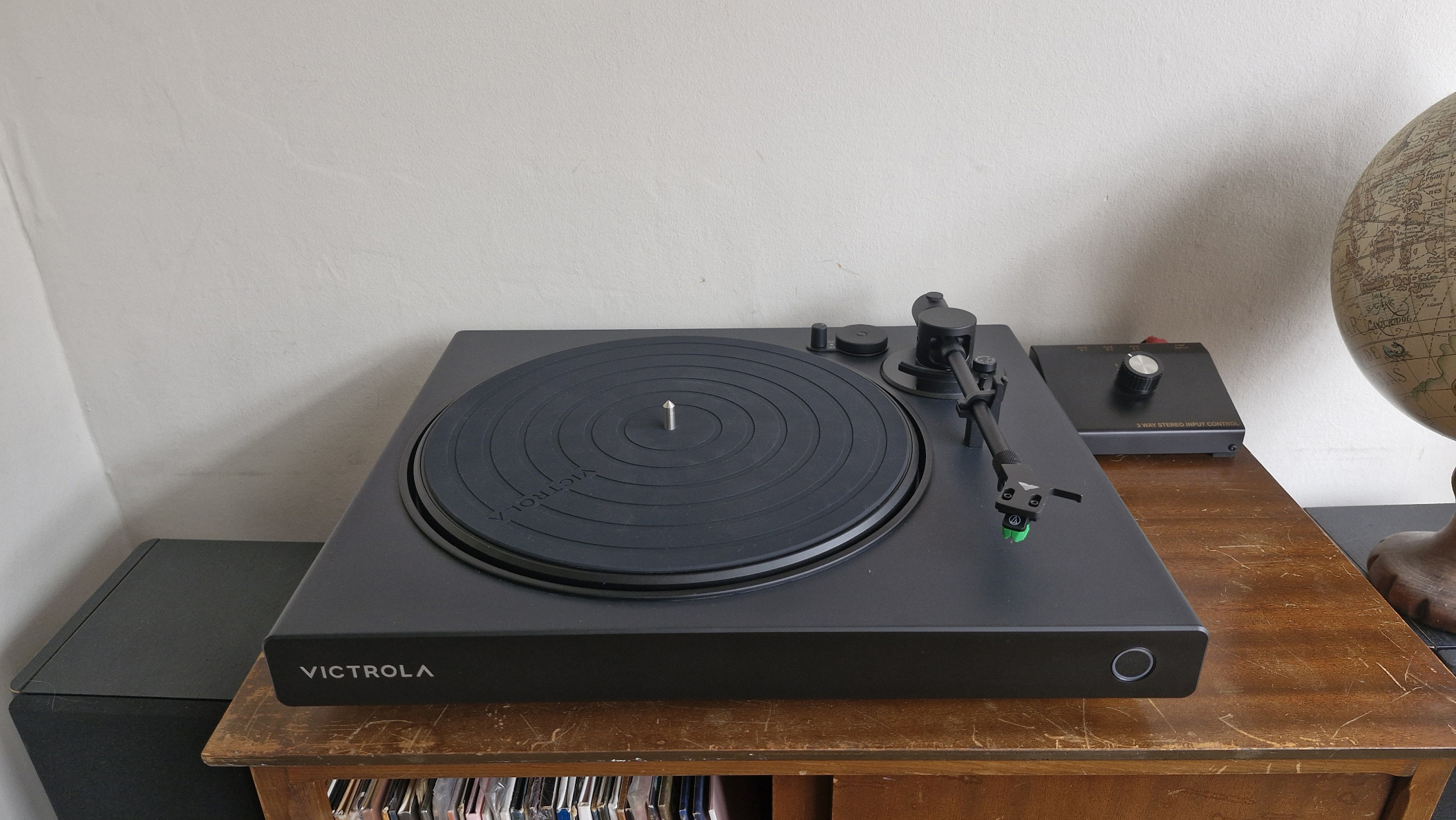
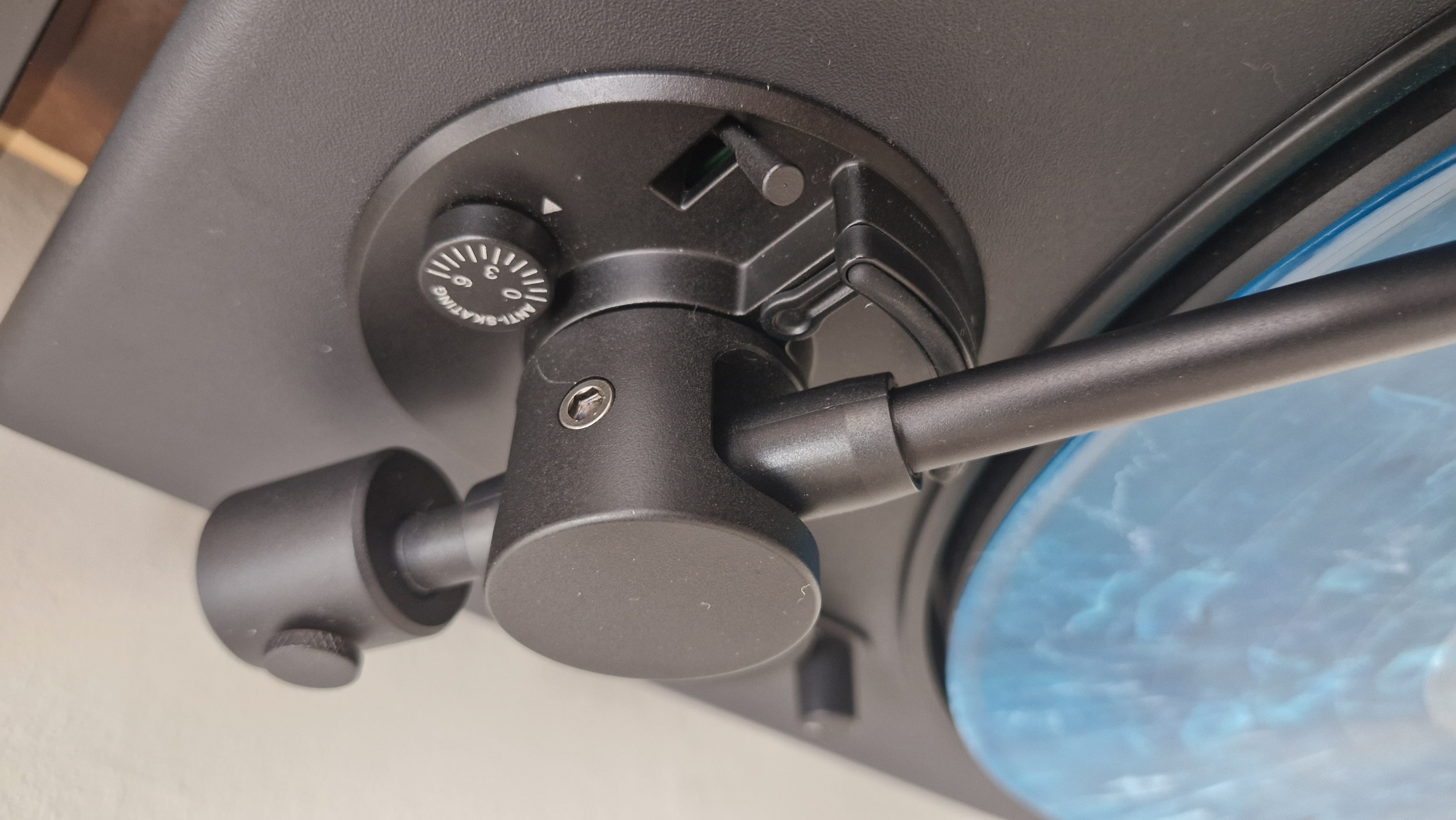
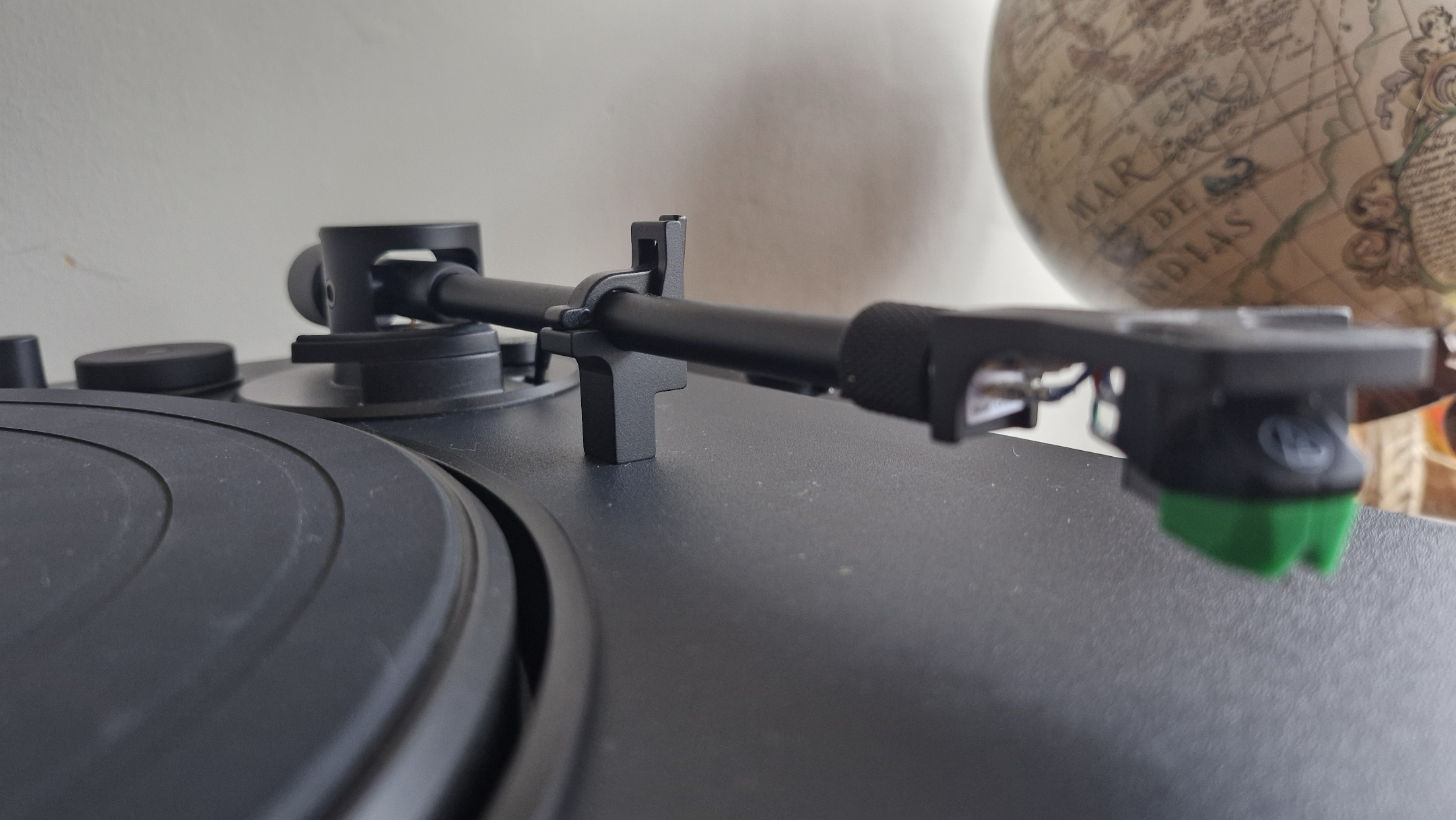
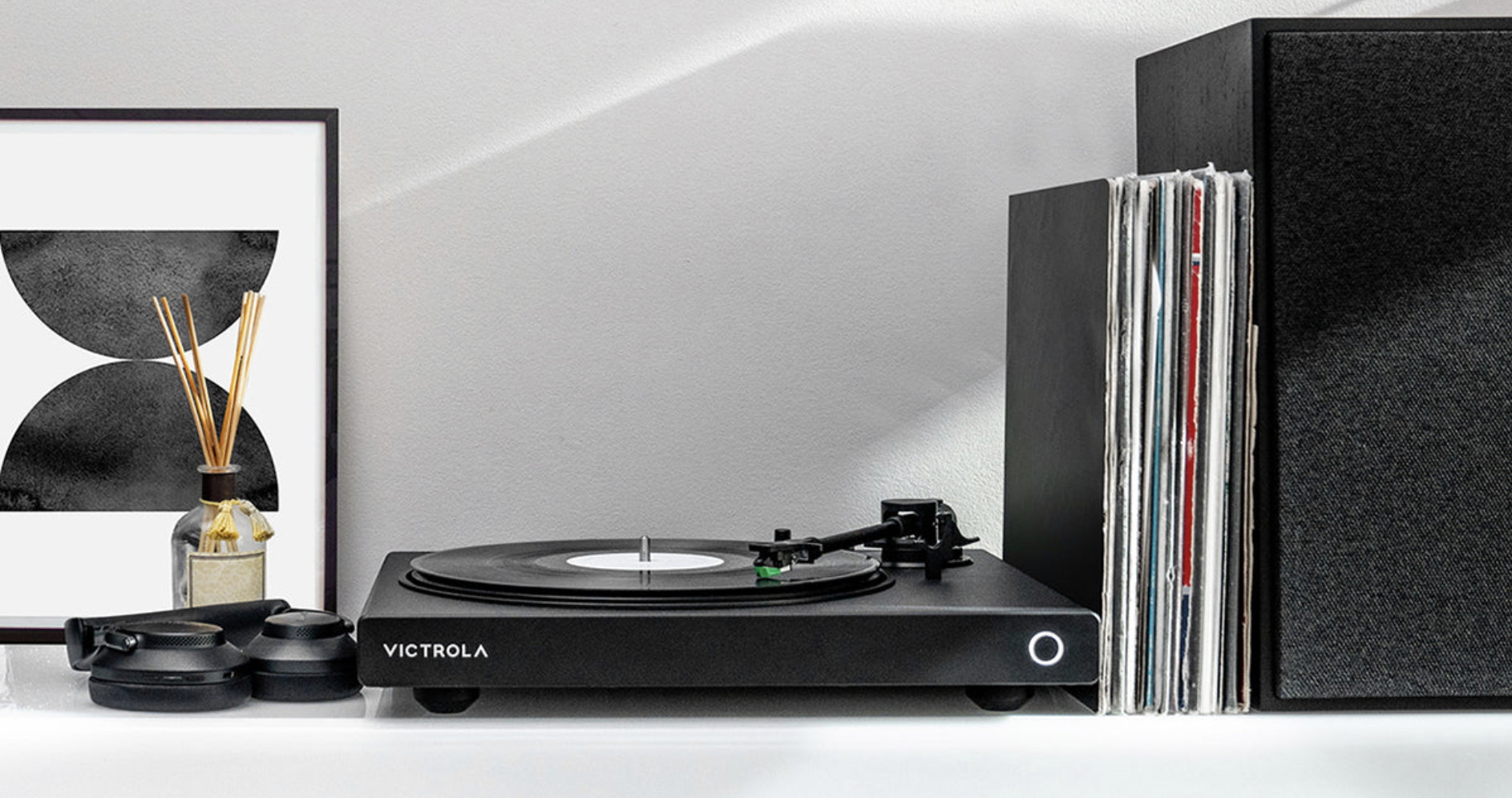
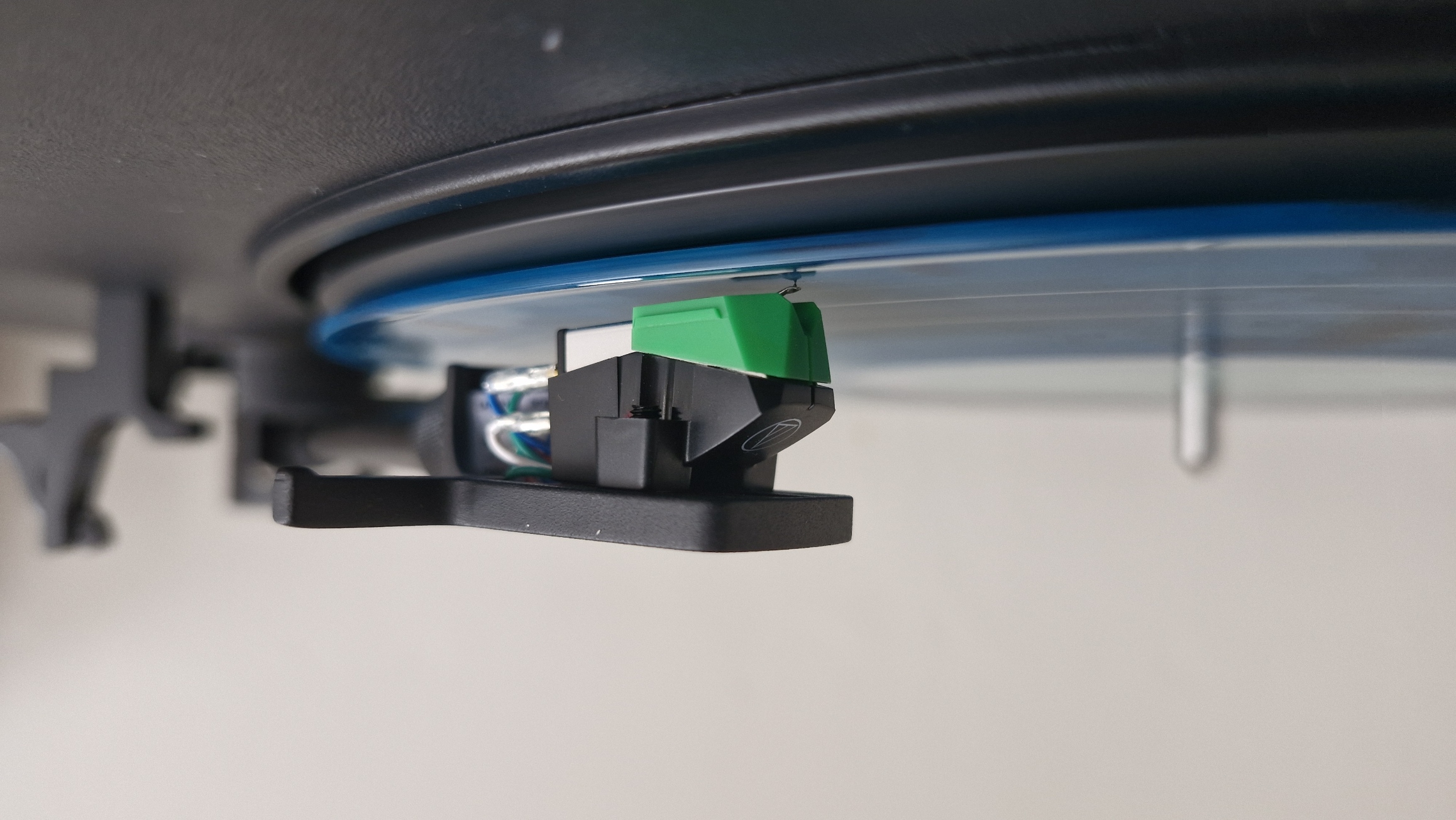
Specifications
Reasons to buy
Reasons to avoid
✅ You’re a tech minimalist: The Hi-Res Onyx is demure, but it is a smart machine on both its inside and out. Though low-profile, it also makes just enough of a statement to be an asset to your living space.
✅ You’re a headphone-wearer at home: The Hi-Res Onyx’s high-quality Bluetooth connectivity is a true bonus, if for no other reason than blasting your faves while dusting.
❌ You already have a pricey hi-fi system: Those with an existing hi-fi setup might not benefit from the Bluetooth-streaming function – and probably won't need the built-in preamp either.
❌ You want a long-term solution: Brilliant as the Hi-Res Onyx is for the price, there are equivalently priced, fuss-free manual turntables that may better suit you long term for general upgradeability.
For this just-above-entry-level money (and given the correct, thoughtful initial set-up), the Hi-Res Onyx is very, very impressive. From the relative capabilities of the built-in phono pre-amp to the relative quietude of the motor, on to the relatively smooth, reassuring record playback… Relative to anything in this price bracket, ‘impressive’ is the word (and ‘relative’ the follow-up word).
It also helps that it looks a bit swankier than most of its competitors. The built-in Bluetooth encoder lets you cast your vinyl audio on to any Bluetooth device of your choosing (it'll be speakers or headphones though). Its Qualcomm aptX Adaptive capabilities up the fidelity factor – hence the ‘Hi-Res’ moniker – making for the best wireless audio you’ll have heard in a while.
The main thing is that in addition to its fun Bluetooth-y twist, the Hi-Res Onyx performs admirably as a straight-up turntable too, with a proper Audio-Technica cartridge and a fine-enough phono preamp for ease of use. There's also a toggleable auto-stop to protect the condition of your stylus, plus counterweight and anti-skate mechanisms to let you dial your turntable in perfectly for the protection of your delicate records.
Read our full Victrola Hi-Res Onyx turntable review
Best for design
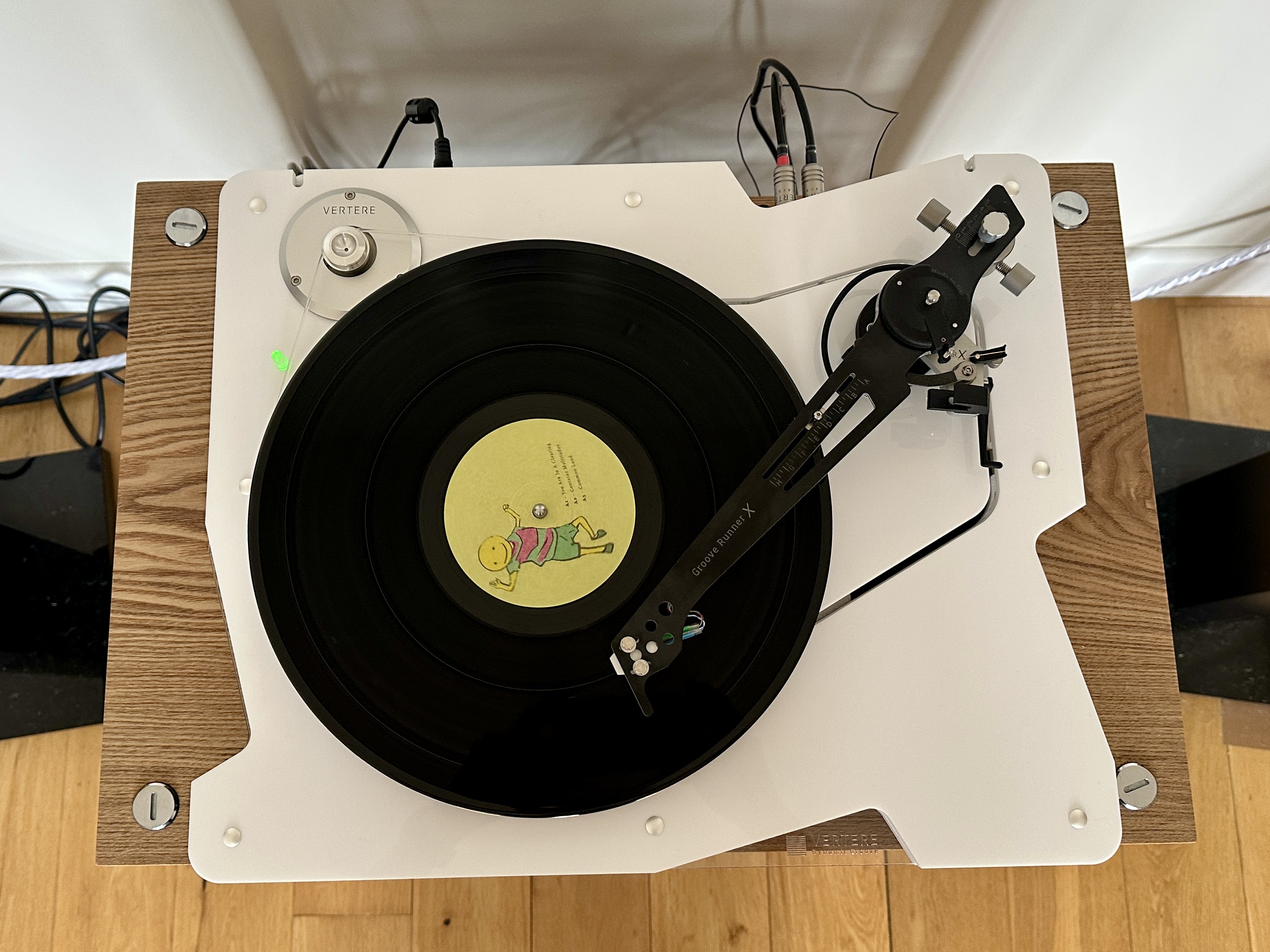
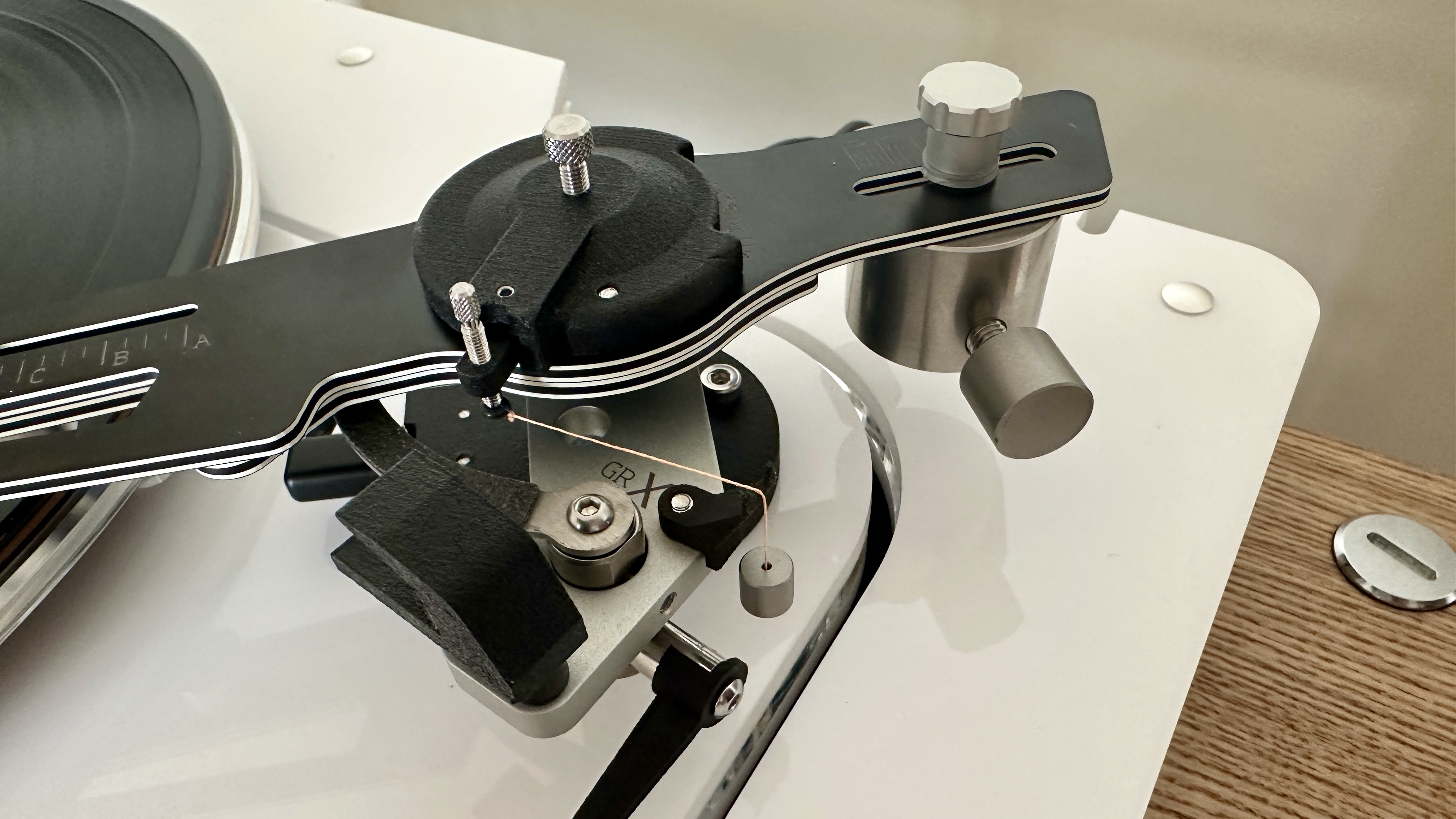
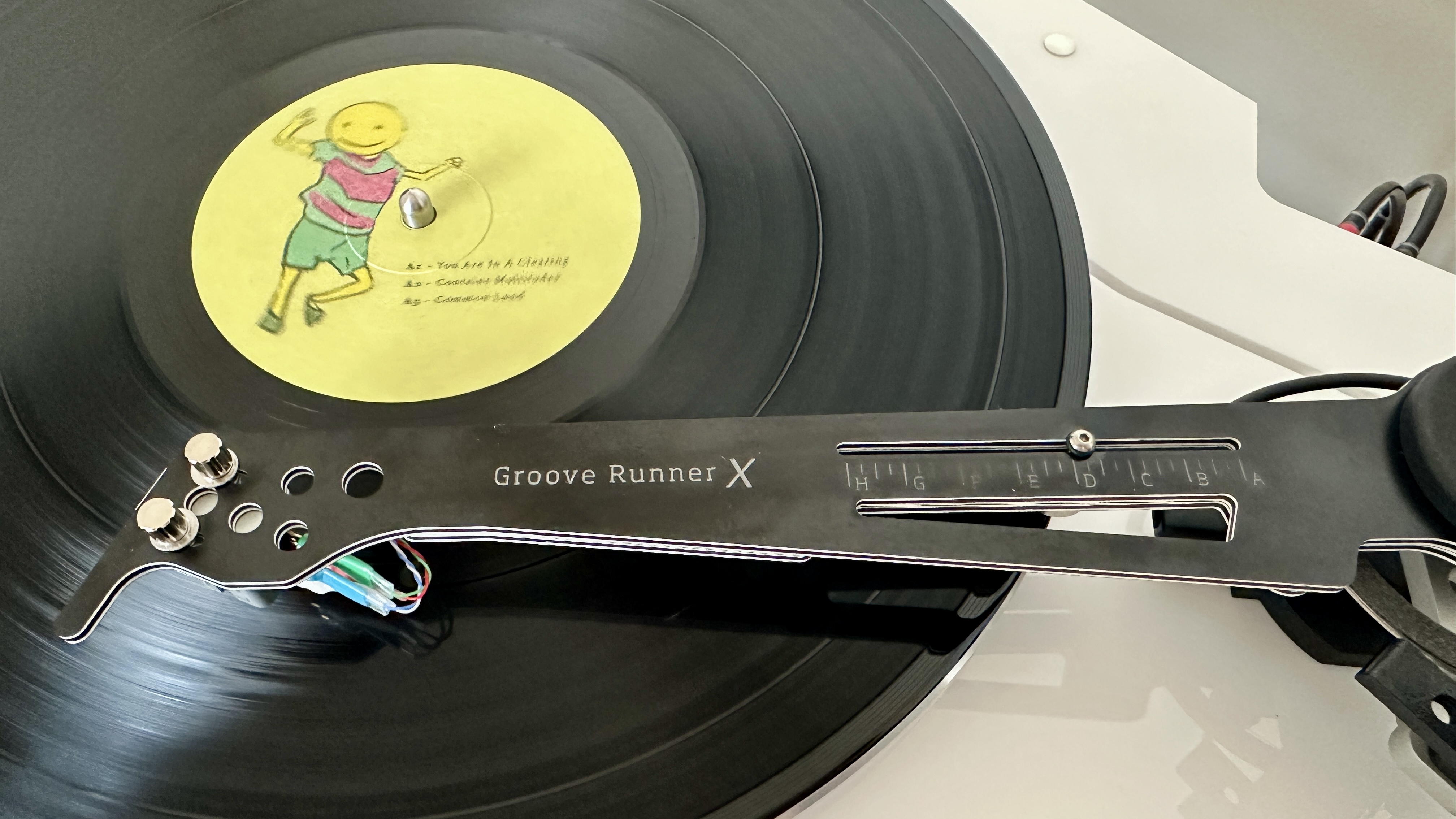
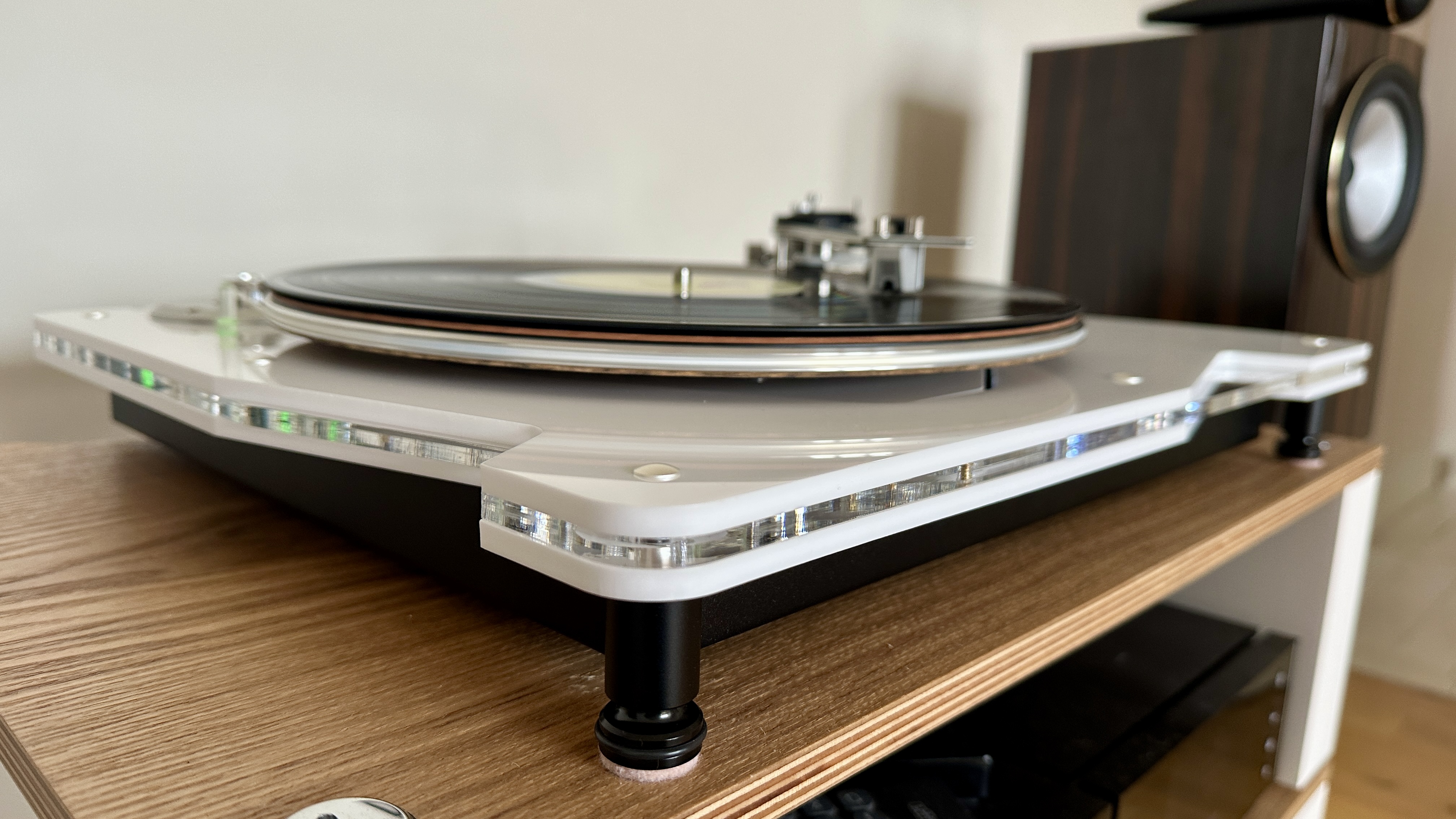
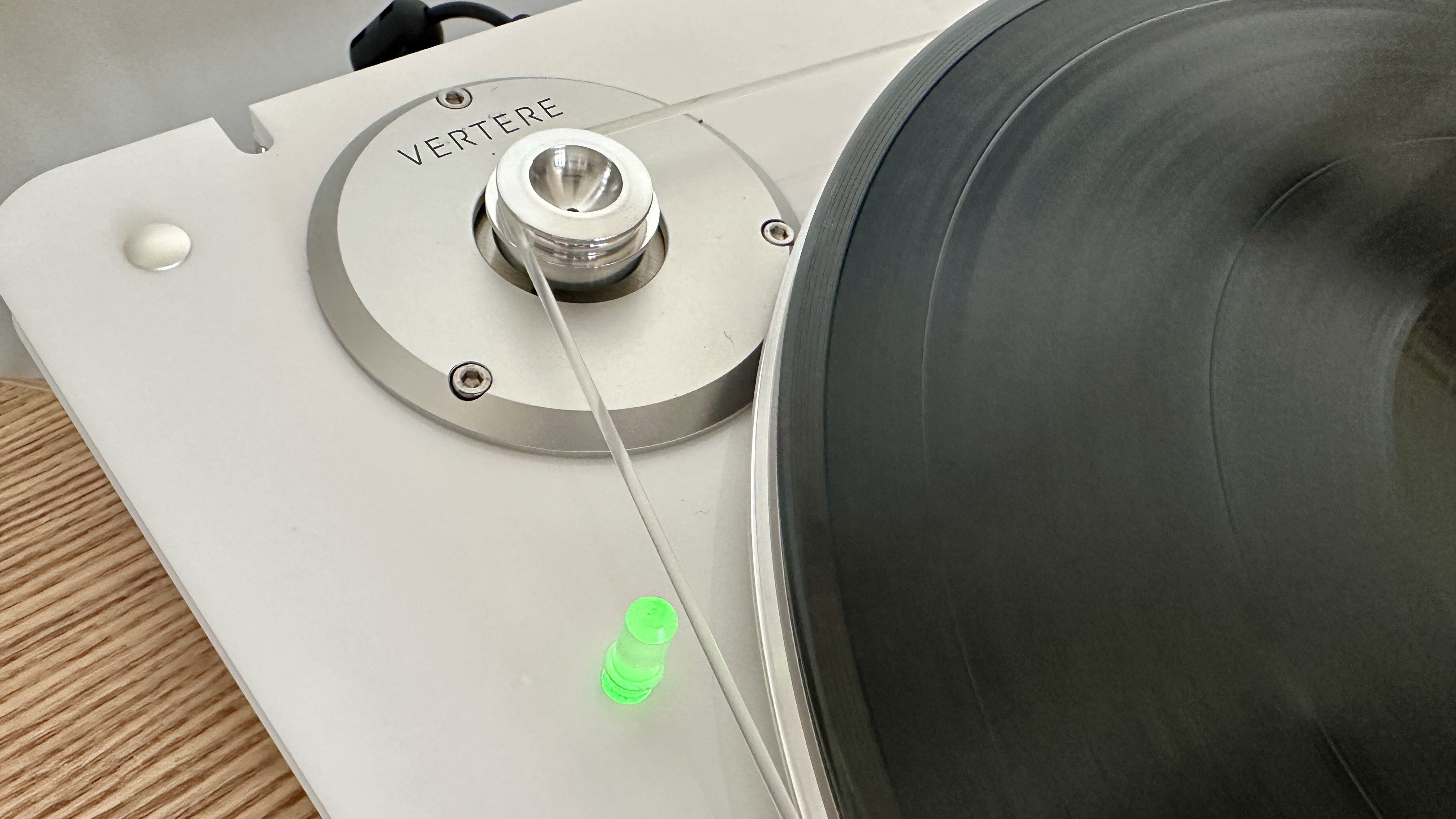
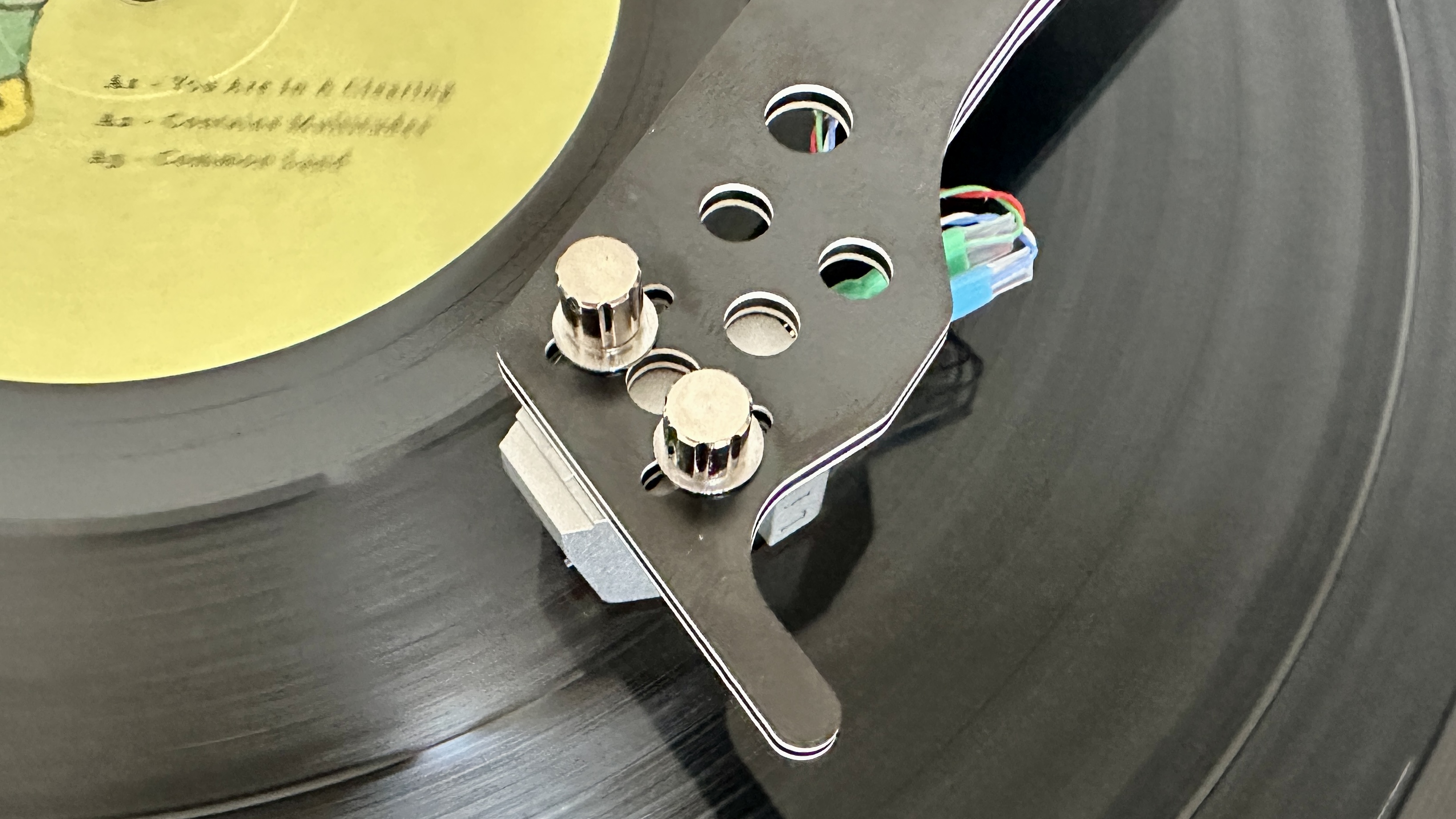
Specifications
Reasons to buy
Reasons to avoid
✅ You want a bold, stylish option: The best record players all tend to look good too, but this thoughtful and interesting design is truly unique.
✅ You want an easy straight-out-of-the-box set-up: No extras needed, it's highly-capable and yet pretty straightforward to get up-and-running.
❌ You want punch and energy: Look, it's got a lot going for it in the sound department, but it's not the most attacking listen in this list.
❌ You're willing to shop around: This is an excellent sound-per-pound pick, but there's a lot out there with similar specs at a similar price.
The Vertere DG X isn’t just a turntable, it’s a statement piece. It has a distinctive, futuristic plinth, which is best described as either beautiful or bonkers, depending on your tastes. But one thing’s for sure, this deck doesn’t blend in. Which means if you’re after something that sounds as unique as it looks, you’re in the right place.
This is a beautifully built, high-end turntable that takes a lot of the usual complexity out of a more premium vinyl setup. That's because it comes with its own dedicated power supply, high-quality cables, and even a dust cover. The cartridge is already fitted and fully adjusted, so you can spend more time listening and less time fiddling with alignments.
What really makes the Vertere DG X shine is its sound. It might not have the raw punch and attack of some similarly-priced rivals, but what it delivers instead is detail – and lots of it. This is a controlled, balanced, and exceptionally refined listen. It handles music with the kind of finesse and cohesion that makes it incredibly enjoyable and entertaining.
The Vertere DG X is a brilliant choice if you’re looking for a high-end experience without the complexity. It’s a complete, high-spec package with a serious focus on performance as well as usability. Sure, it won't blow your hair back with its force, but it'll surprise you with its detail and delivers style in spades.
Read our full Vertere DG X review
Other turntables to consider
We test dozens of decks every year at TechRadar and we don't mean to brag – we do love it, but it's just our job. We also mean to tell you that plenty of turntables we've tested do receive a full, in-depth review, but they don't make it into this buying guide.
Audio-Technica AT-LP60XBT: We may have taken this Audio-Technica turntable out of our guide, but it's still a solid option for most people. After all, it was only launched in 2019 and if you can find it a reduced price, it would be a great bargain. Read more about this great starter turntable in our Audio-Technica AT-LP60XBT review.
EAT C-DUR Concrete: This turntable sounds fantastic, but as you'll read in our EAT C-DUR Concrete review, it's also very expensive, needs a sturdy support, so won't suit every room, and is also oddly small-scale sonically.
Majority Moto 2.0: If you do want a cheap, one-box, does-it-all turntable, our Majority Moto 2.0 review is still worth a look. It combines a turntable, speakers, Bluetooth transmission/receiver and USB output in a single package and slaps a very low price-tag on it. Sadly, some of the key components were more than a little flimsy and did cause us too many problems to wholeheartedly recommend this inexpensive record player.
Rekkord Audio F300: There’s plenty to be said for ease of use where turntables are concerned. But as a glance at our Rekkord Audio F300 review proves, it’s not the be-all and end-all. This good-looking turntable features a fully automatic operation with a quality build and finish that promotes a relaxed sound, but it is a little short of sonic verve and punch – and it's also not particularly upgradeable.
Technics SL-1300G: We're currently working on a full review of the Technics SL-1300G ($2,999 / £2,799). We're discussing whether to include it here once the review is finalized (we take our time on this, because it is important to get it right; if you see a TechRadar verdict, know that it we did not arrive at it quickly).
Victrola Eastwood II: As you'll see in our Victrola Eastwood II review, we loved the plug-and-play design, surprisingly powerful built-in amp and novel two-way Bluetooth connectivity, but the build itself was a little lightweight and a shade off rock-solid – an issue which continued into the playback.
Victrola Stream Sapphire: In our Victrola Stream Sapphire review, you'll find that we were disappointed with Victrola's latest offering. This turntable simply feels too expensive and it's hard to say what that extra money actually buys here.
How to choose the best turntable
Finding the best record player for you can seem confusing, but there are some key details you need to consider when choosing your next turntable.
Fully fledged record player, or dedicated turntable?: This is the first major decision you'll need to make, and it largely depends on personal preference. Do you already have speakers? Are you looking for a plug-and-play setup, or do you want a system you can upgrade over time?
One of the most vital things to look for when you’re shopping for a new vinyl player is also how well damped it is. Damping is essentially the method by which manufacturers combat vibrations – whether internal or external. They do this through the use of different motor configurations, and through the use of various components.
Belt-drive or direct-drive?: Belt-driven turntables are going to be a lot quieter and offer higher fidelity than their direct drive brethren, as direct drive turntables have a motor that is directly connected to the platter. However, there are some great direct drive turntables out there, so don’t write them off just yet.
Extra features: The best turntables these days are packed with features, so you'll need to consider which are the most important to you.
If you’re just starting out, you probably don’t need to be fooling around with a complex turntable featuring an adjustable vertical tracking angle, anti-skate and azimuth. You may even want a turntable that connects to your portable speaker or headphones wirelessly over Bluetooth. Or one that has Sonos compatibility or Wi-Fi support.
Also worth considering is this: do you want to rip your vinyl to your digital library? If so, look for a turntable with a USB output and reliable software to get the job done.
Budget: Turntables can cost anything from $50 / £50 to well over $16,000 / £12,000, it's a good idea to have a top-end fee in mind before you start your search.
Style: Think about how your new record player will fit into your home, as well. Do you have the space for an external amplifier? If not, look for a turntable with a built-in preamp.
We know you'll probably still have questions. We get it, finding the best turntable isn't easy, especially if you're just starting out. That's why we've answered the main ones below – keep reading!
What should I look for in a beginner-friendly turntable?
If you're looking for a beginner-friendly turntable, keep it simple. An automatic turntable handles the needle for you, which reduces the risk of you scratching your records. But if you prefer manual control, you'll have more options.
Bluetooth connectivity makes setting up your record player easy, since it means you can stream wirelessly without an amp or any extra cables, to one of the best Bluetooth speakers. It's great for flexibility of positioning individual items if you don't have a lot of space, too. Otherwise, you'll need speakers and an amp (though this could be built into your speakers, or into the record player in some cases).
A built-in phono stage is essential for beginners. It amplifies the signal so that your records play properly through a speakers and dedicated amp. Without one of these, you'd need a separate preamp, adding yet more complexity. The vast majority of beginner turntables include this, so you can plug and play right away – but just make sure before you buy.
What does it mean for a turntable to have Bluetooth or wireless streaming?
A turntable that comes with Bluetooth or wireless streaming lets you play your records without cables. So instead of connecting to an amp or wired speakers, it sends audio wirelessly to Bluetooth speakers or headphones.
This makes setup easier – there's no need for extra gear and no tangle of wires – but it’s worth noting that Bluetooth compresses audio, which means you will lose some detail compared to a wired connection. Some turntables include other wireless streaming tech, over Wi-Fi, which can be much higher quality, but these will be more expensive (as will the speakers they work with).
However, it's worth nothing here that some record players have built-in speakers, and offer a Bluetooth connection so you that play music from your phone onto their built-in speakers. So if you're looking at buying a record player with built-in speakers and you want support for Bluetooth out to other speakers, make sure the connection works the way you want first!
Do I need to buy speakers for my turntable?
Aside from your new turntable, there are some other bits of kit you might want to invest in.
First off, you'll want to check out the best stereo speakers; after all, a turntable is only as good as your speakers you hook it up to. Or, you might want to look into the best over-ear headphones and wireless earbuds to go with your record player.
If you opt for a wireless record player, you might want to invest in a Bluetooth speaker, a wireless speaker, or connect it to your existing smart speaker.
If your deck of choice doesn't have built-in amplification or a phono stage and you want to connect it to passive speakers, you'll need to buy these too – check out our amplifier reviews for more information.
Are old turntables better than new ones?
The best-sounding turntable is one you enjoy listening to – and don't let anybody tell you any different! Some people prefer the rich, authentic quality of an older turntable. However, many of the newest turntables bring you that same sound, but with several new features and a more reliable experience.
Price comes into play here, as you might expect. If you have an older turntable but it's much more expensive and higher quality than a newer, cheaper model, you might prefer the older sound. You should also consider whether it's in need of some TLC. Older turntables might need repairing to sound as good as they once did.
Finally, what do you want to listen to? If you're looking for high-end audio that sounds exactly as intended, you might want to try a newer turntable. If you want a more gravelly sound and don't mind sacrificing some quality, use the old turntable you already have.
Ultimately, new turntables are more advanced than older turntables, but it all comes down to your preferences.
Are high-end turntables worth it?
If you're an audiophile that can notice the subtle differences and nuances of the devices you're playing music on, and if you have the budget, you'll benefit from a high-end turntable.
Premium turntables typically offer a more precise and natural sound, so your vinyl collection will come across better than ever – though you'll need to pair it with a phono stage, amp and speakers that are equally revealing, of course.
If you don't have as strong an ear for music or you simply don't need perfection, you'll be just as happy with a mid-range turntable. You also tend to need pretty hefty setups with large speakers to benefit fully from the qualities of high-end turntables, so if you're tight on space, you may also be better off saving your money.
How much should I spend on a turntable?
That really depends on you. A $99/£99 turntable will do a good job of playing vinyl, but the more you spend the more premium your experience is likely to be.
One of our current favourite mid-range turntable is the Rega Planar 1, which has a list price of £299 / $595 / AU$645. But while it's an undeniably great turntable, Rega has chosen to spend its money on the core components and high quality engineering rather than gee-whiz features or fancy materials. Its more expensive models follow that philosophy too, focusing on delivering the most pristine audio quality possible.
Sony's slightly cheaper PS-LX310BT comes in at £249 / $249 and adds Bluetooth to the mix – but what you gain in connectivity you lose (slightly) in visual appeal and in sound quality. It's not bad by any means, but if you're listening on high-end equipment you'll hear a difference.
As with most audio equipment, it comes down to what features matter most to you. If you already have high-end audio kit then it's worth spending that little bit more to get a really premium sound. But as our guide above demonstrates, you can get a really great turntable for a lot less than you might expect.
Is it worth buying an expensive turntable?
It all depends on your budget and your needs. Casual listeners might be happy with a mid-range or budget turntable. But those deeply invested in the vinyl experience or audiophiles who can appreciate subtle audio nuances might find that investing in a high-end turntable could significantly improve their listening experience.
If you have a small budget and can’t possibly consider an expensive turntable, there are more affordable options. Consider the Audio-Technica AT-LP60XBT in our guide above, which is great value for money. Granted, in our testing, we did say the materials the Audio-Technica AT-LP60XBT is made from feel a little cheap, and there could be more detail in the audio, but they’re not deal-breakers, and there does need to be a trade-off for that more affordable price tag.
Of course, expensive options, like our high-end pick, the Cambridge Audio Alva TT V2, are well worth the money. They have a premium build and a balanced and insightful sound quality.
With turntables, and most tech for that matter, you tend to get what you pay for. And when it comes to turntables, higher-priced options often offer superior audio quality. They boast better components like platters, cartridges, and tonearms, which effectively reduce vibrations and noise, thereby enhancing the clarity and detail of the sound.
But that doesn’t always have to be the case. You can find affordable and mid-range tech that can compete with much more expensive devices – you often just have to make a small sacrifice in one or two areas.
What's the difference between a record player and turntable?
Although the terms record player and turntable are often used interchangeably, they describe two distinct types of vinyl playback devices.
Turntables are the components within a larger audio system that spin the vinyl record – they're basically just a way of getting the recording off the wax. They require additional equipment – including a pre-amp, amplifier and speakers – to produce the sound you hear. People like turntables because they're usually highly customizable, allowing users to mix and match components like the stylus, cartridge, and tonearm to tailor the audio output to their preferences, which is further tailored to your tastes or budget by the other hi-fi components. This makes them a favorite among audiophiles who want high-quality sound and a way to upgrade parts over time.
Record players, on the other hand, are all-in-one units that include the turntable, amplifier and even speakers. This makes them more convenient and user-friendly, particularly for casual listeners or anyone living in a small home. While they offer ease of use and portability, record players generally do not match the audio quality of a good turntable setup. They also don't provide much customization, and it's not as easy to upgrade them.
Choosing between a turntable and a record player depends largely on your needs and preferences. If you prioritize sound quality and are keen to customize your audio setup, a turntable might be the better choice. If you prefer simplicity and want a compact option, a record player would better serve you. In this guide, we've chosen both turntables and record players to suit different needs.
What is the most reliable turntable?
For us, reliable means a turntable that's a fantastic all-rounder and good value for money. With that in mind, you can't go wrong with the Pro-Ject Debut Carbon Evo that sits at the top of our list of the best turntables, with an expansive, detailed sound and impressive specs.
If you're willing to spend a little more, then the Cambridge Audio Alva TT V2 is our high-end option. This futuristic, fantastic-looking turntable brings you a balanced and insightful sound, as well as modern connectivity options. In contrast, the Fluance RT81 is a mid-range option with no-frills but a great sound for the price.
But if by reliable you mean sheer toughness, then the Technics SL-1500C needs to under consideration, because it's built like musical tank.
What makes a high-quality turntable?
This largely depends what you're looking for – although of course, we have our opinions. We judge a high-quality turntable on the build, the different playback speeds that are on offer, the compatibility and how well-damped the deck is. It's also worth looking for extra features, like USB ports.
Beginners may want to find an easy-to-use turntable rather than a high-quality, picky one requiring calibration of the tonearm and such. We recommend looking for simple setups, built-in phono stages and wireless connectivity, like Bluetooth. Style matters too, so pick out a look you like as well as a solid and dependable design.
Does vinyl sound better?
It depends what you're comparing it to. But yes, vinyl sounds better than lossy and compressed MP3 files. Vinyl also tends to sound better than CDs because records are an end-to-end analog format.
Essentially, an actual, physical sound wave is always better than a digitised version of it that has been compressed for storage, then unpacked.
Are there any dangers with cheap turntables?
Obviously, cheap turntables aren't likely to sound as good as more expensive models – but they also pose a risk of damaging your records. Most cheap turntables use a ceramic cartridge instead of a magnetic cartridge, which means the needle is flexible and so will cause more wear to the record's grooves. In addition, cheap turntables often don't have counterweights in the arms, which means the needle isn't balancing delicately on the grooves, it's pushing into them – and then that combines with the inflexible needle. If the motor is rocky in quality and the turntable isn't well damped against outside vibrations, the record may wobble and apply even more undue pressure. And that goes double for turntables with built-in speakers, which will be adding their own vibrations to the body.
Not all cheap turntables are a disaster waiting to happen to your (not cheap!) vinyl – some will have made good decisions about putting the money into the parts that matter, and skipping other unnecessary features. But some definitely are, so be sure to buy based on the reviews of people with experience, and consider strong saving a little longer to get a step-up model if you can, because the jump in safety and quality from 'super-cheap' to 'inexpensive' is large, but the price isn't that different.
Does my turntable need a USB port?
You might have noticed that several mid-range or budget turntables include USB ports, which is obviously a relatively recent addition to the tech inside these machines. So, should you prioritize having this option on your next spinner? Well, we have a whole guide that digs into the question of whether your next turntable should have a USB port, but we'll summarize the key points here.
The point of the USB port is to be able to digitize your record collection. You can connect it to a computer, and use software to record what the player plays – complete with analogue imperfections. In some cases, there may be albums or tracks on records that never made it onto the best music streaming services, so you might want to preserve these digitally, and a USB port enables you to do that.
But that is essentially the only reason. You wouldn't use for direct music playback in any way, and they're not used for software updates that improve turntable performance or anything like that.
If you are looking for an affordable turntable with a USB port, read our Audio-Technica AT-LP120XBT-USB review – that's an excellent option for the price.
How we test the best turntables
Having tested countless record players over the years, we know that the best way to find out whether they live up to their specs is simply to open up our vinyl collection, set up the deck, calibrate the tonearm (if necessary) and get playing.
Setup: When it comes to beginner and budget-friendly turntables, we're looking for simple setups, built-in phono stages and wireless connectivity options such as Bluetooth (for listening to the vinyl spinning on the platter through your wireless headphones) alongside solid tracking.
Extra features: Naturally, when it comes to high-end audiophile record players, we look at the playback speeds offered, compatibility, how well-damped the deck is and extra features such as USB ports.
Build quality: Of course, a rock-solid, dependable build is also paramount here. We spend considerable time looking into the quality of the build. This means in terms of how the build impacts the performance – because sound is what matters the most – but also how to feels to use and how it'll look in your home. Style isn't everything, but if you're paying high-end prices and want something that looks just as high-end, aesthetics matter.
Performance: Audio quality is of paramount importance when it comes to selecting the best turntables. To earn a spot in this guide, a deck has to produce detail and clarity from your record stash while delivering that warm, rich analogue sound that good turntables are so well known for.
Value: Finally, are you getting your money's worth? Several of the best turntables in this guide are expensive, but considering the build, performance and build, they represent great value. Similarly, you'll find cheaper options here but that doesn't mean they're not great value in some respects, particularly for beginners who may need reliability but not necessarily premium specs and features.
The latest updates to this turntables guide
April 11, 2025
Refreshed the introduction and added a link to gives readers details about Record Store Day 2025. Added the Vertere DG X as our new 'best for design' pick, based on recent testing.
March 14, 2025
Rewrote the introduction and added information about the Technics SL-1200 watch. Alphabetized our 'also consider' section to make it easier for readers to scan, and added the EAT C-DUR Concrete here as another option. Restructured the 'how to choose' advice to focus on the key considerations.
February 17, 2025
Added more information for vinyl beginners to our 'How to choose' section.
January 16, 2025
Rewrote the introduction to keep things up to date and to mention that we're testing the Gadhouse Duke & Roy. Added image galleries to each entry to give readers a better look at the products we're recommending. Ensured all copy is up to date and doesn't reference old deals or outdated advice.
December 20, 2024
Added the new House of Marley Revolution as our best super-budget beginner pick. Refreshed the intro to add clarity on different models and newer tech.
November 27, 2024
Added a section about Black Friday turntable deals and suggestions.
See more updates
November 1, 2024
Rewrote the introduction. Added the Audio-Technica AT-LP70XBT as our 'best budget pick' , removing the older Audio-Technica AT-LP60XBT. Updated our 'also consider' section to include some new alternatives, including the Victrola Stream Sapphire. Itemized our 'how we test' explainer to make it easier for readers to see what we're looking for when we're reviewing the best turntables.
September 3, 2024
Added the Victrola Hi-Res Onyx as 'best for Bluetooth streaming'. Listed the Victrola Eastwood II, Majority Moto 2.0 and Rekkord Audio F300 to a new 'Also consider' section, which details products we've tested but don't recommend as a 'best for' model in this guide – and why.
August 5, 2024
Swapped the Lenco LS-410WA for the Pro-Ject Juke Box E1 as our new 'best all-in-one' option. It requires speakers adding, but that's it – and it sounds like a high-quality hi-fi system.
July 31, 2024
Swapped the Lenco LS-410WA for the Pro-Ject Juke Box E1 as our new 'best all-in-one' option. Granted, you do need to buy extra speakers but it's nearly all-in-one, and it's a great-sounding, well-priced, compact pick.
July 5, 2024
Added a section explaining the use of USB ports in turntables.
June 7, 2024
Checked all products. Added information about the difference between turntables and record players.
May 10, 2024
Added information about the potential risks of cheaper turntables damaging vinyl.
March 28, 2024
Removed Clearaudio Concept because it's been discontinued.
January 22, 2024
Updated copy and content to reflect new turntables.
November 10, 2023
Checked all recommendations, and updated some descriptions and FAQs to aid clarity. Added notes about Black Friday deals.
October 2, 2023
Checked products against current prices and reviews, and updated some buying advice.
September 14, 2023
Added buy it if, don't buy it if boxouts to each individual product write-up, and checked product rankings against latest reviews.
August 9, 2023
Updated the format of this guide to feature quick links at the top, refreshed prices within the copy to reflect the market.
July 19, 2023
Changed images to our own hands-on pictures. Reordered products to reflect the latest prices.
June 13, 2023
Checked all products against our latest reviews and ratings.
Get daily insight, inspiration and deals in your inbox
Sign up for breaking news, reviews, opinion, top tech deals, and more.

Becky became Audio Editor at TechRadar in 2024, but joined the team in 2022 as Senior Staff Writer, focusing on all things hi-fi. Before this, she spent three years at What Hi-Fi? testing and reviewing everything from wallet-friendly wireless earbuds to huge high-end sound systems. Prior to gaining her MA in Journalism in 2018, Becky freelanced as an arts critic alongside a 22-year career as a professional dancer and aerialist – any love of dance starts with a love of music. Becky has previously contributed to Stuff, FourFourTwo and The Stage. When not writing, she can still be found throwing shapes in a dance studio, these days with varying degrees of success.